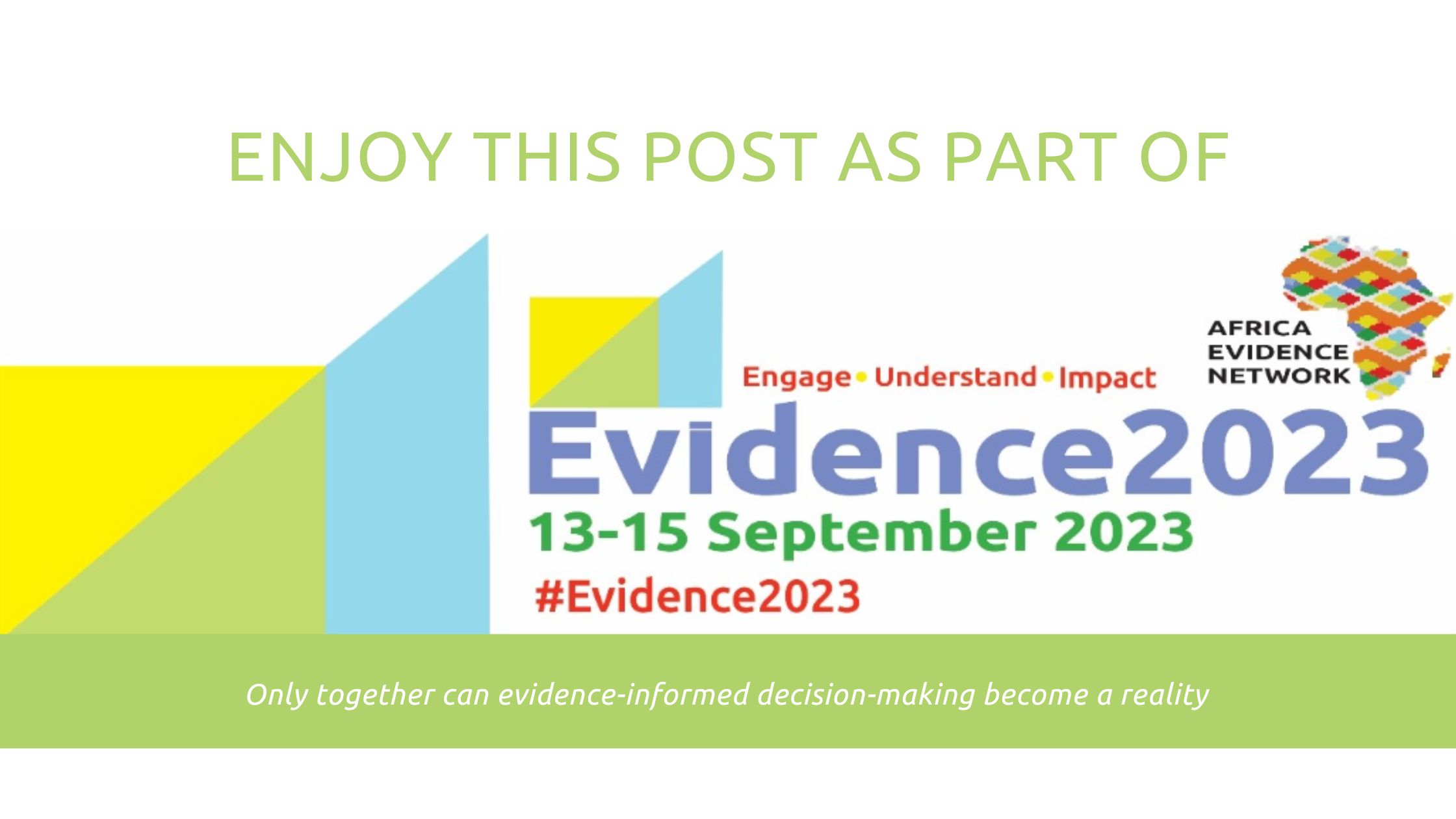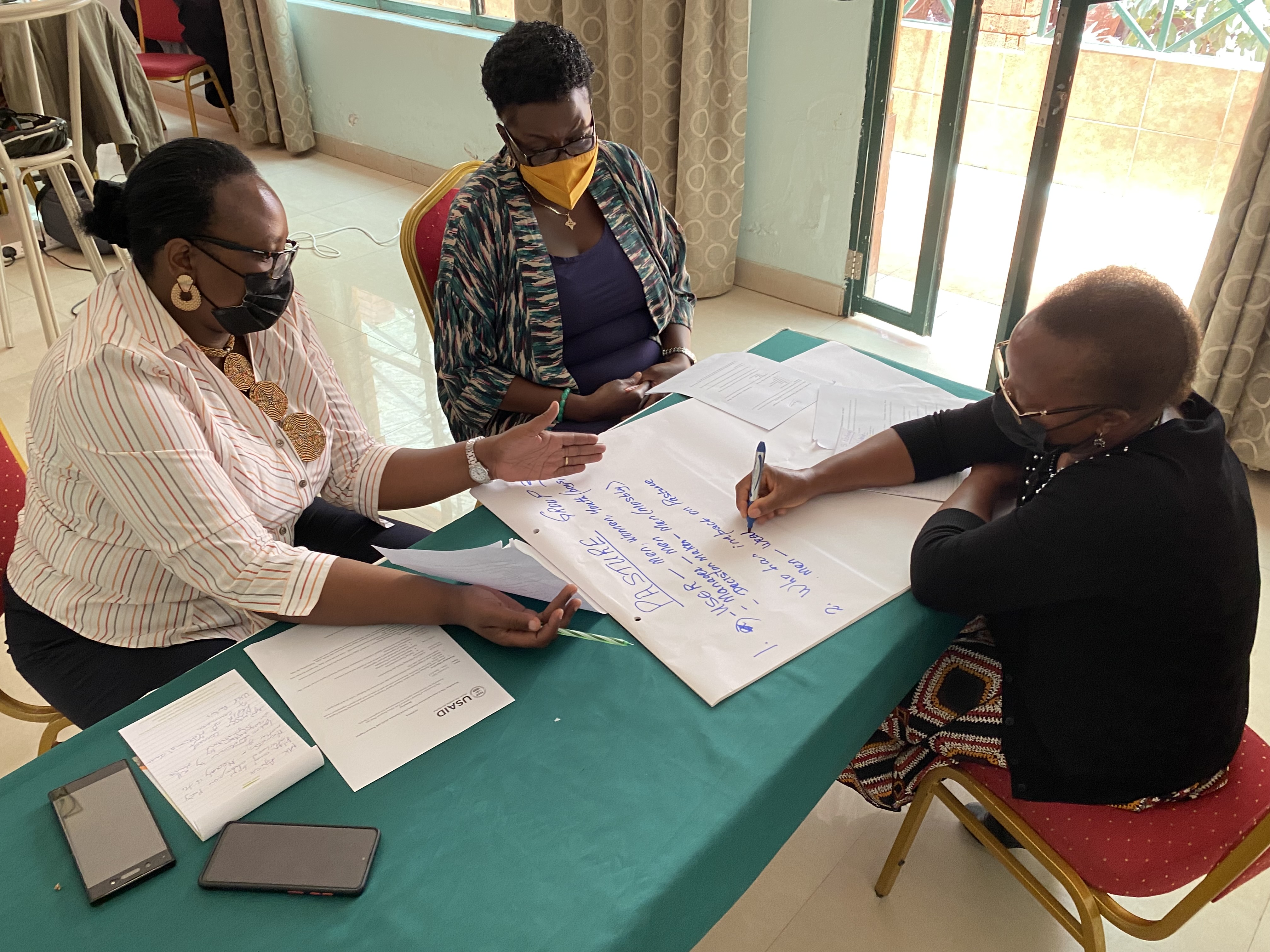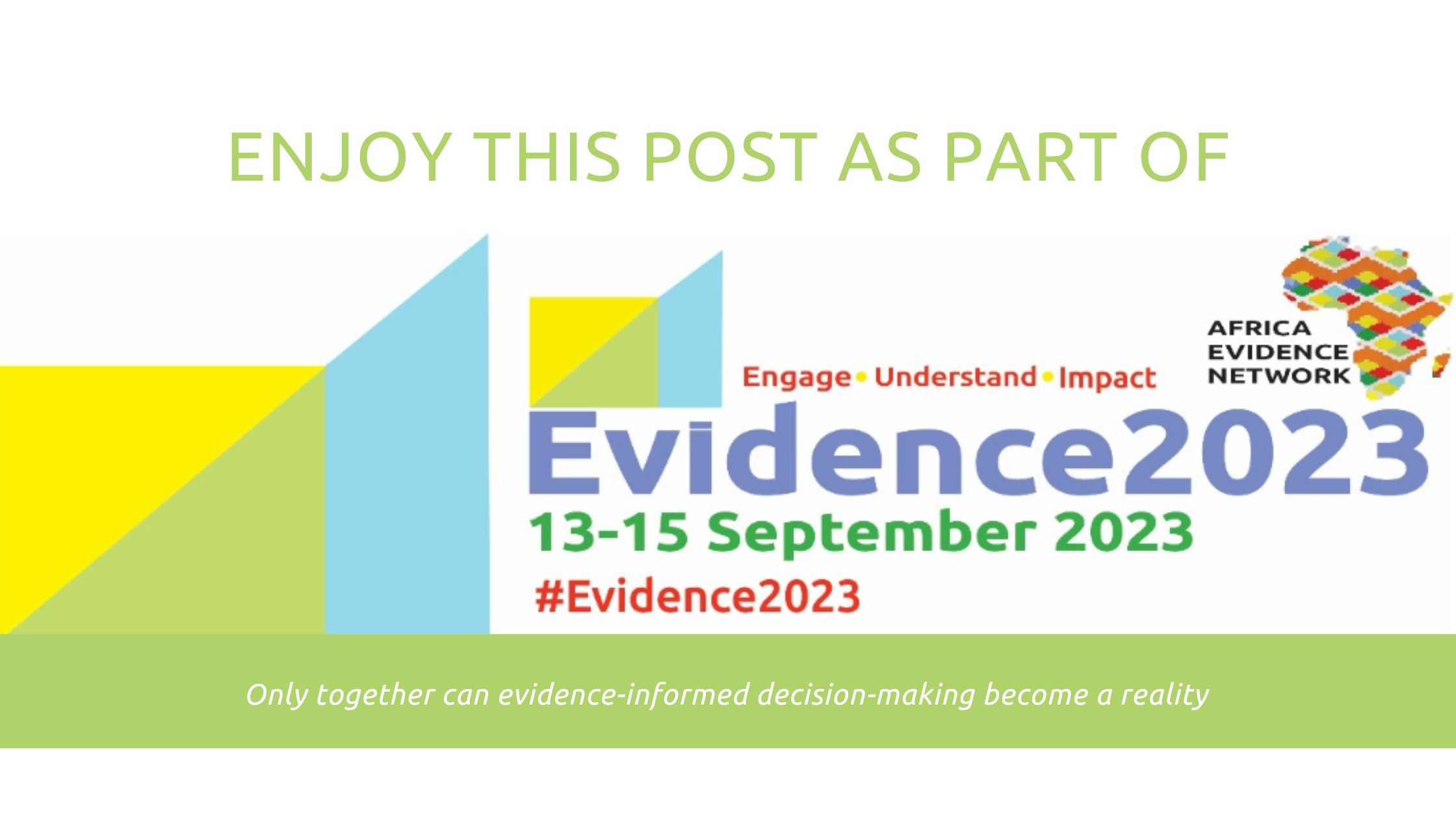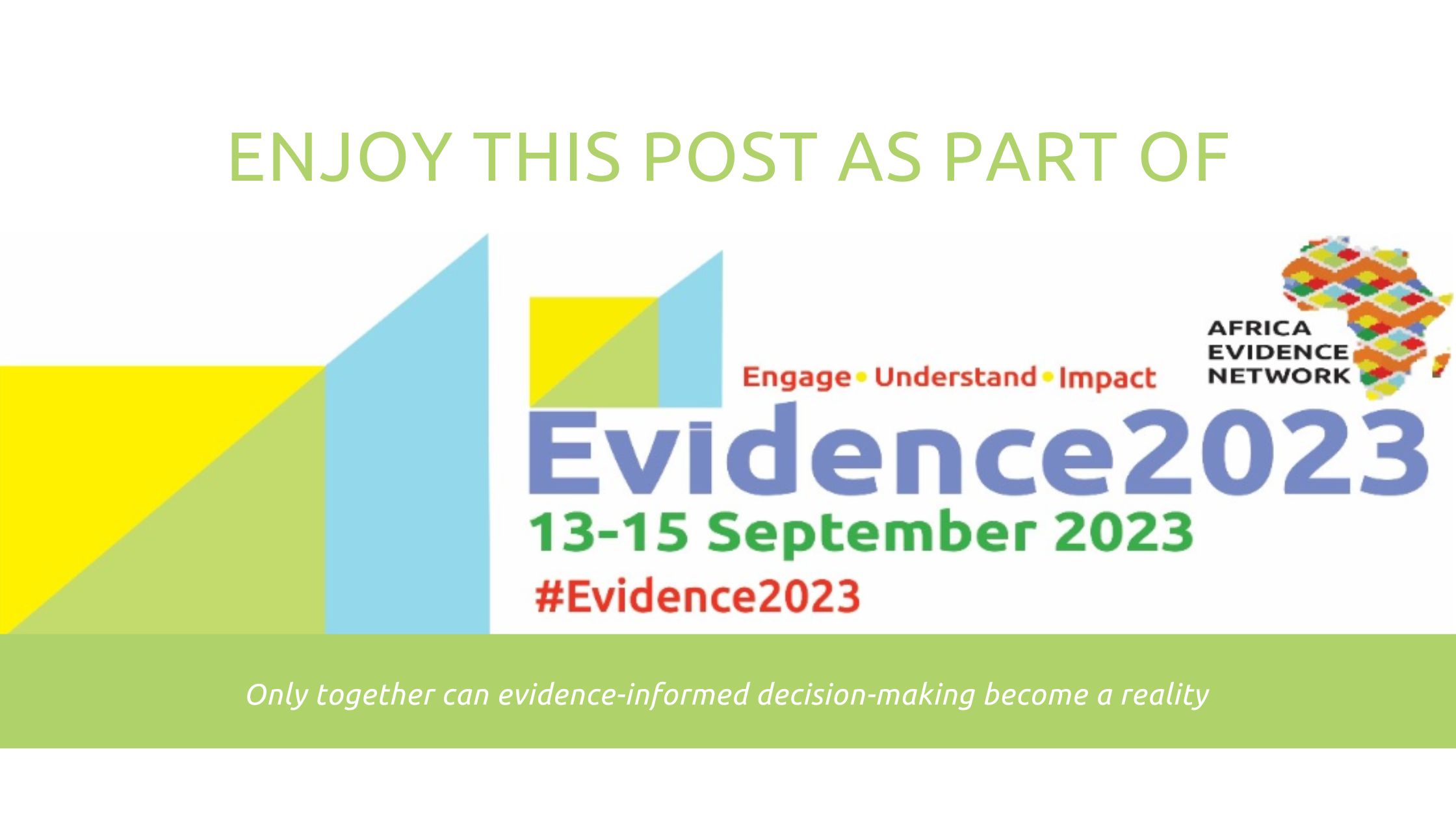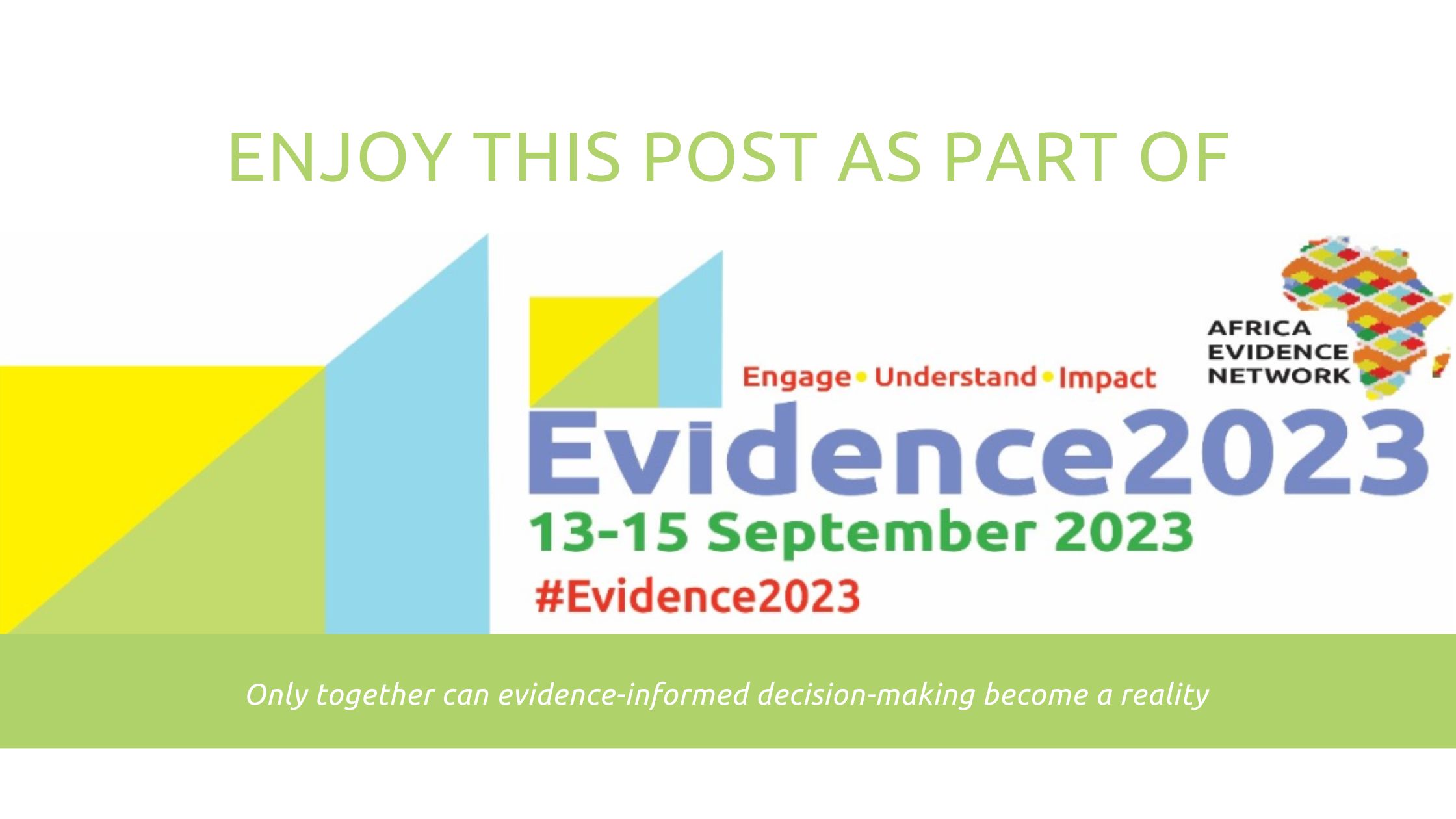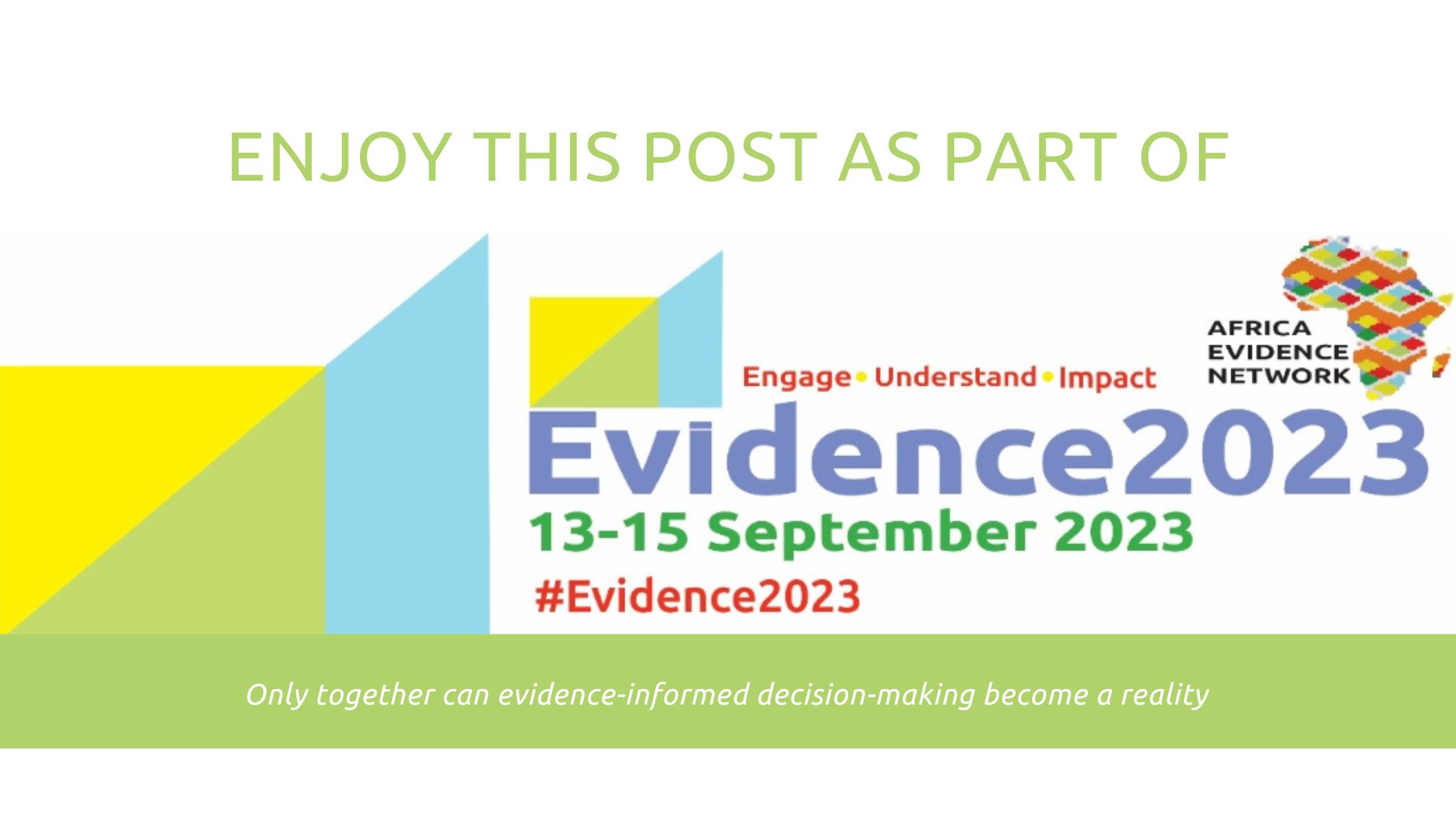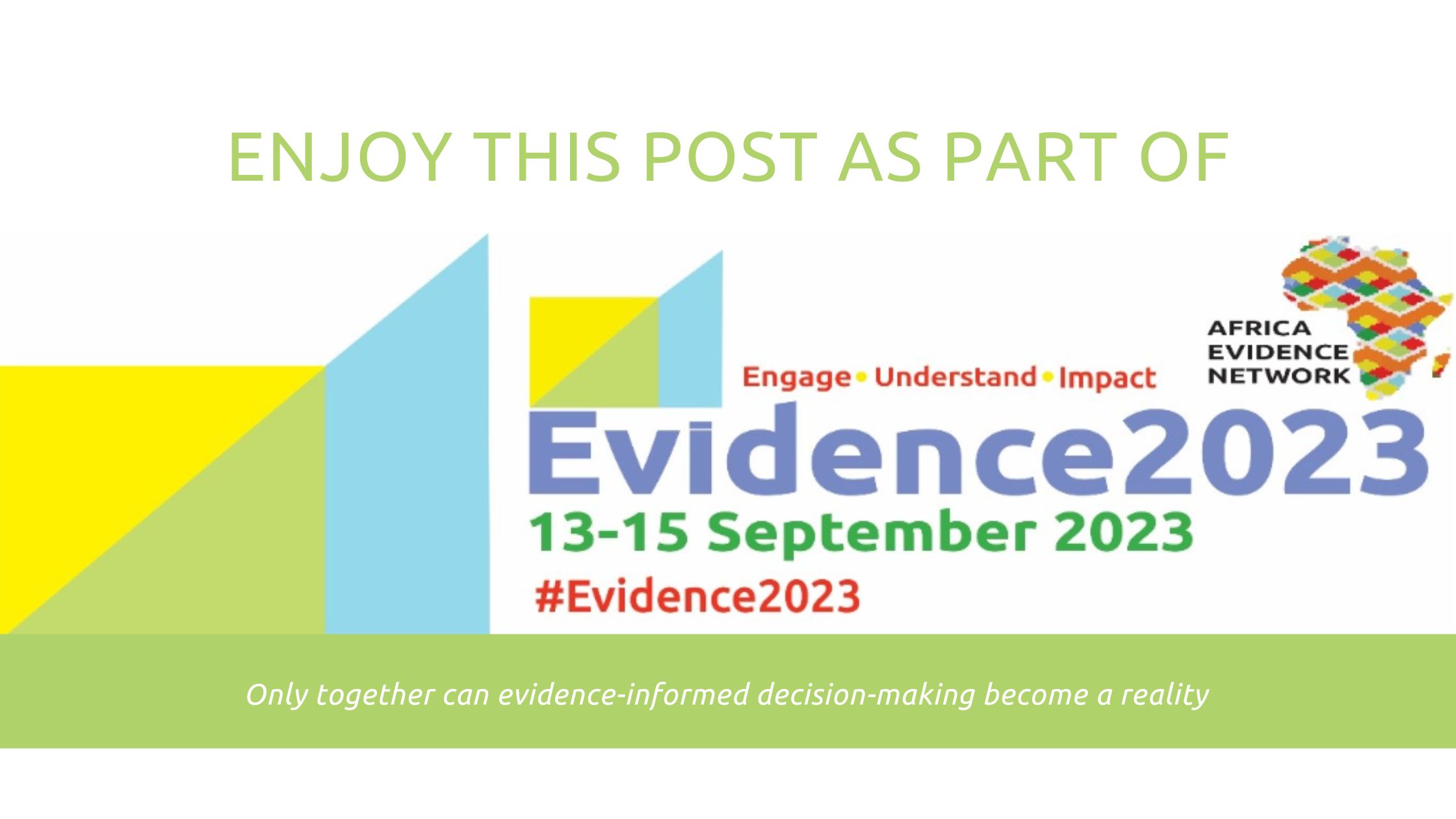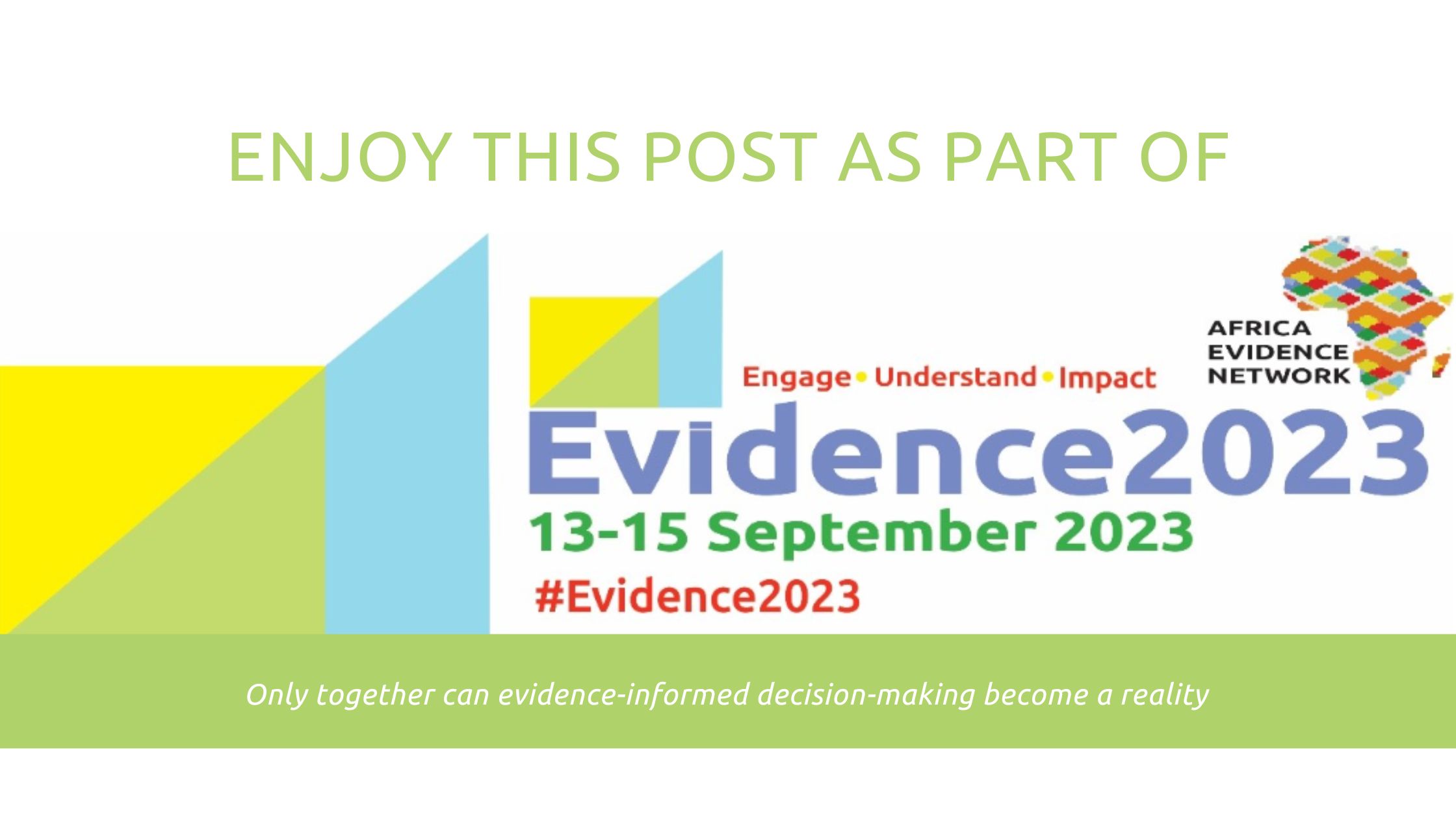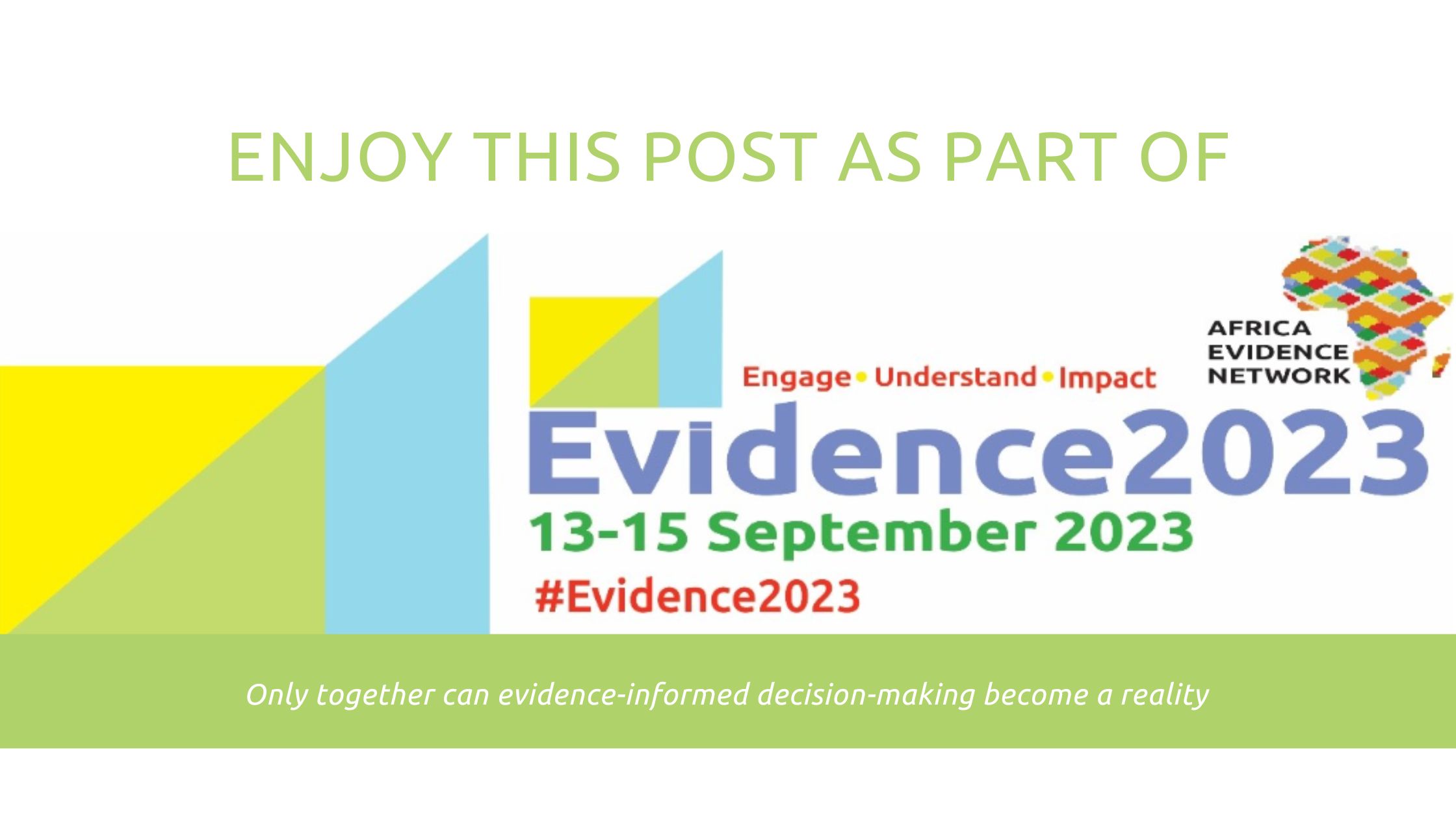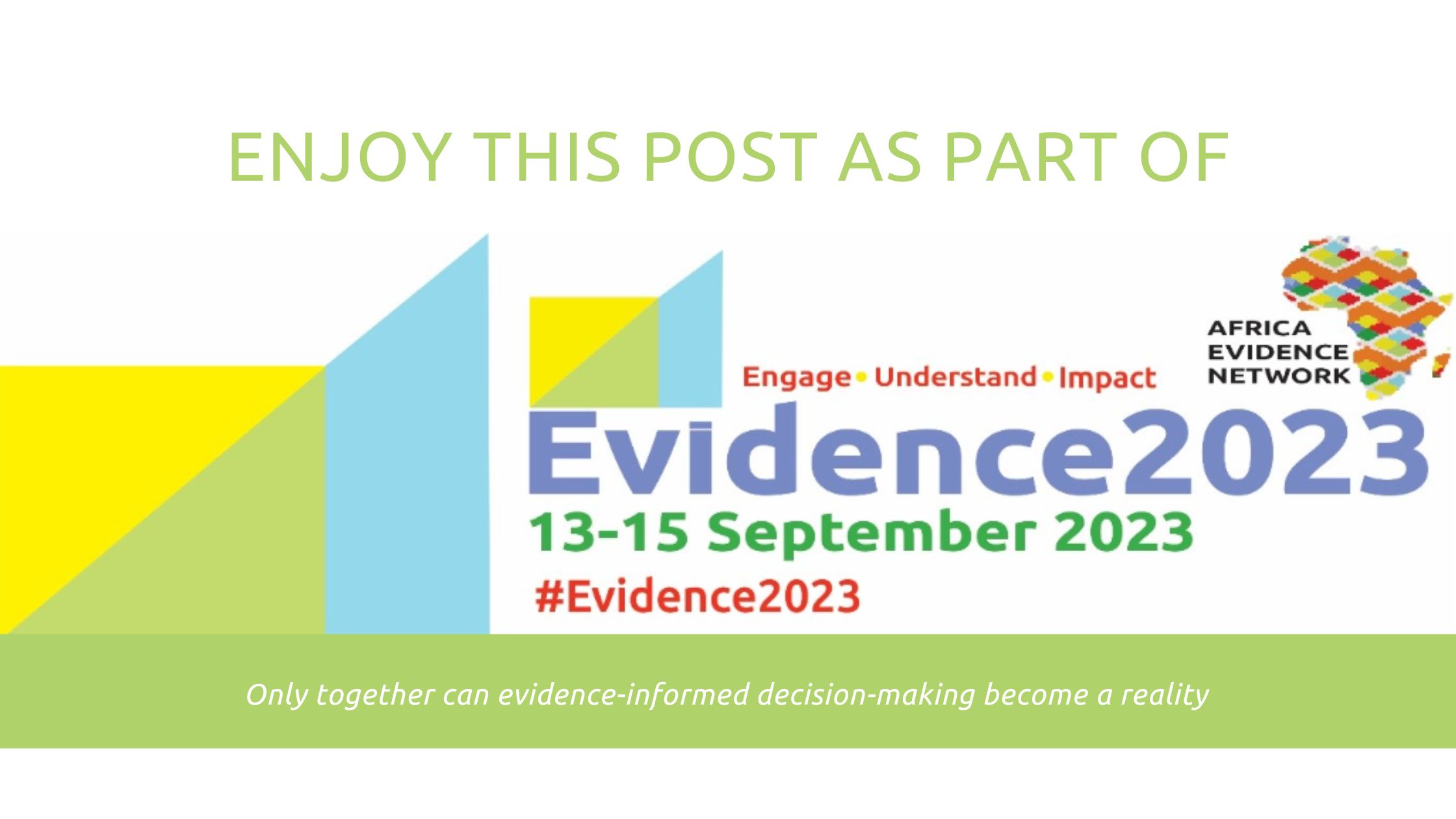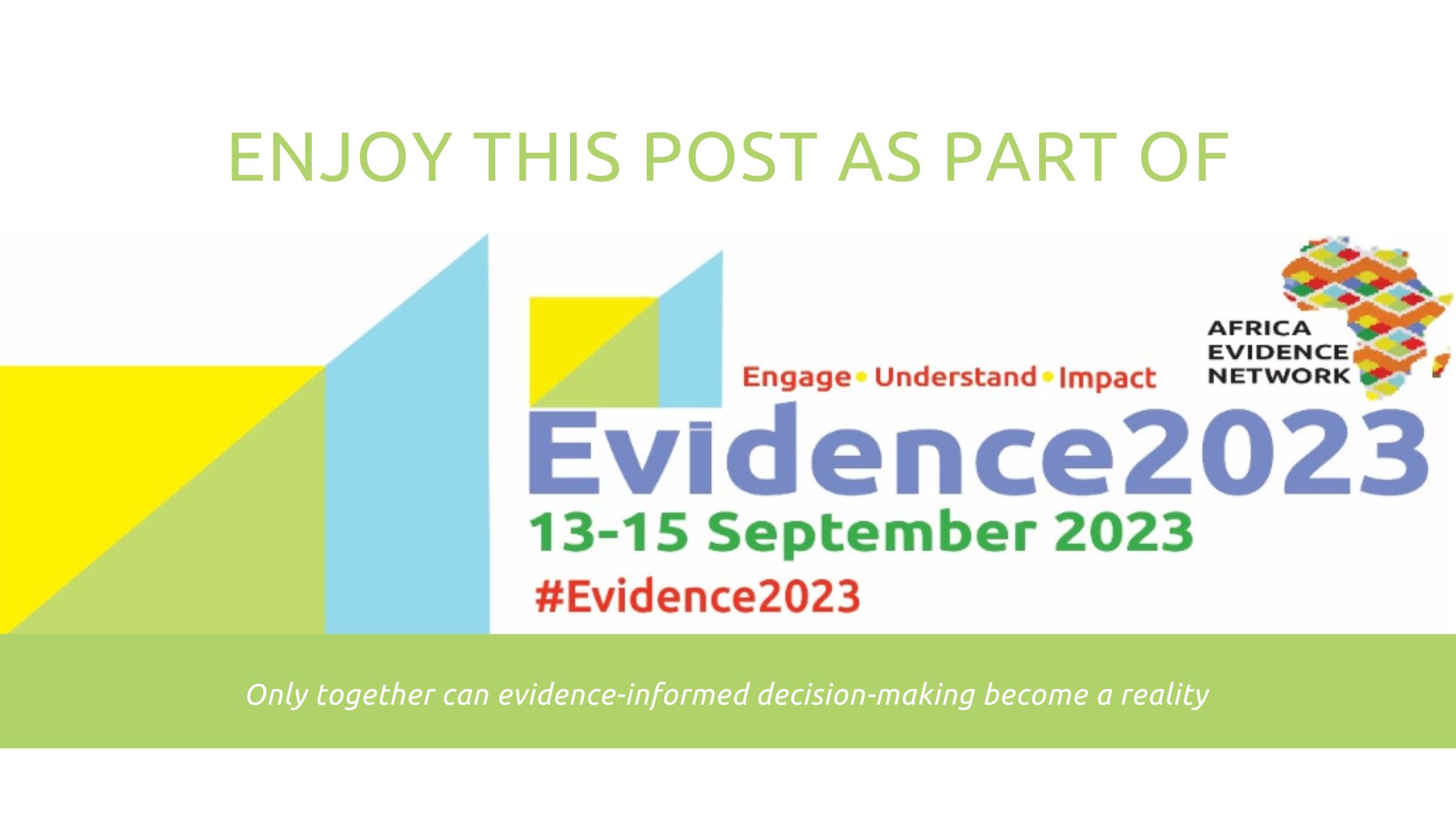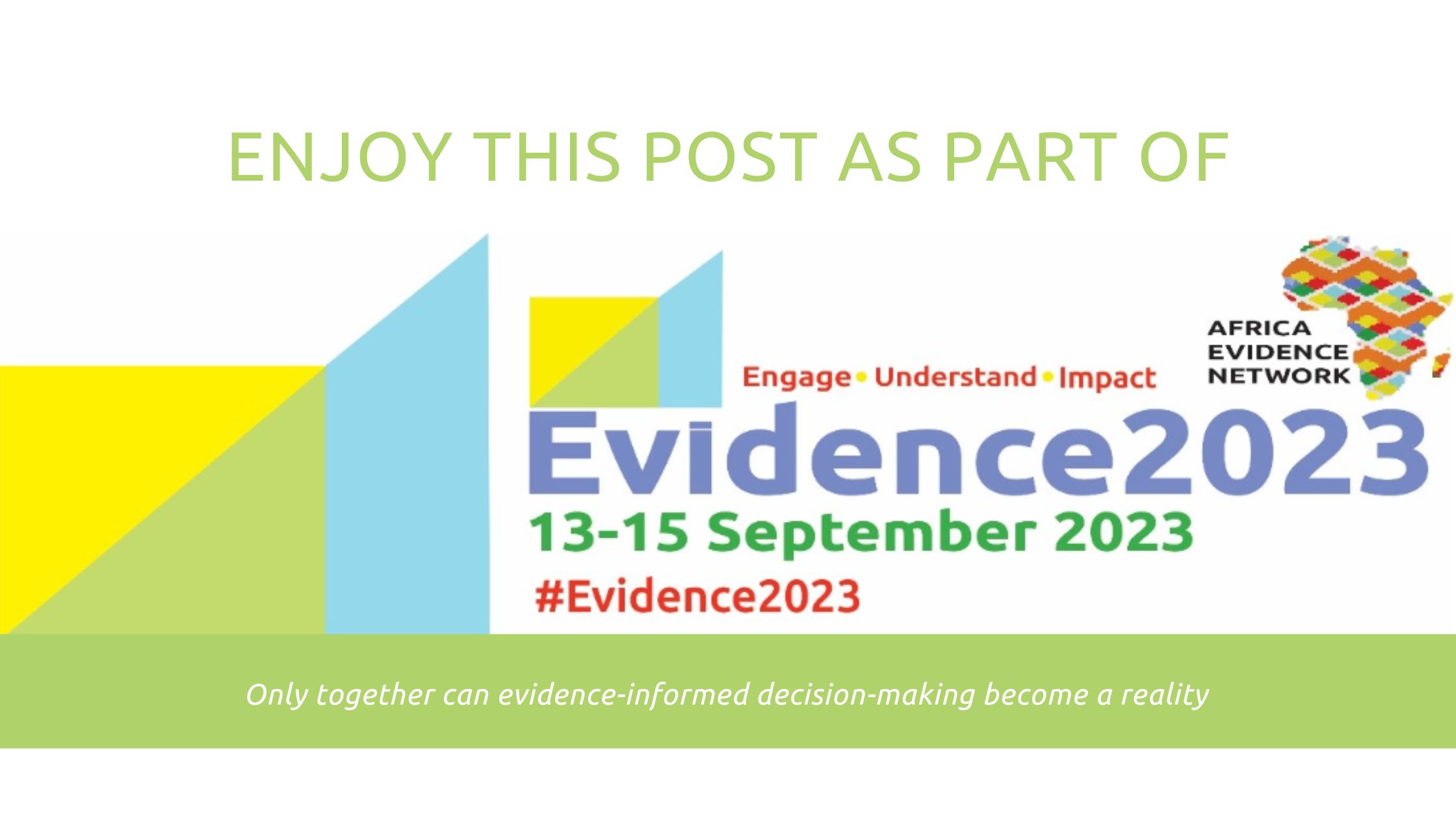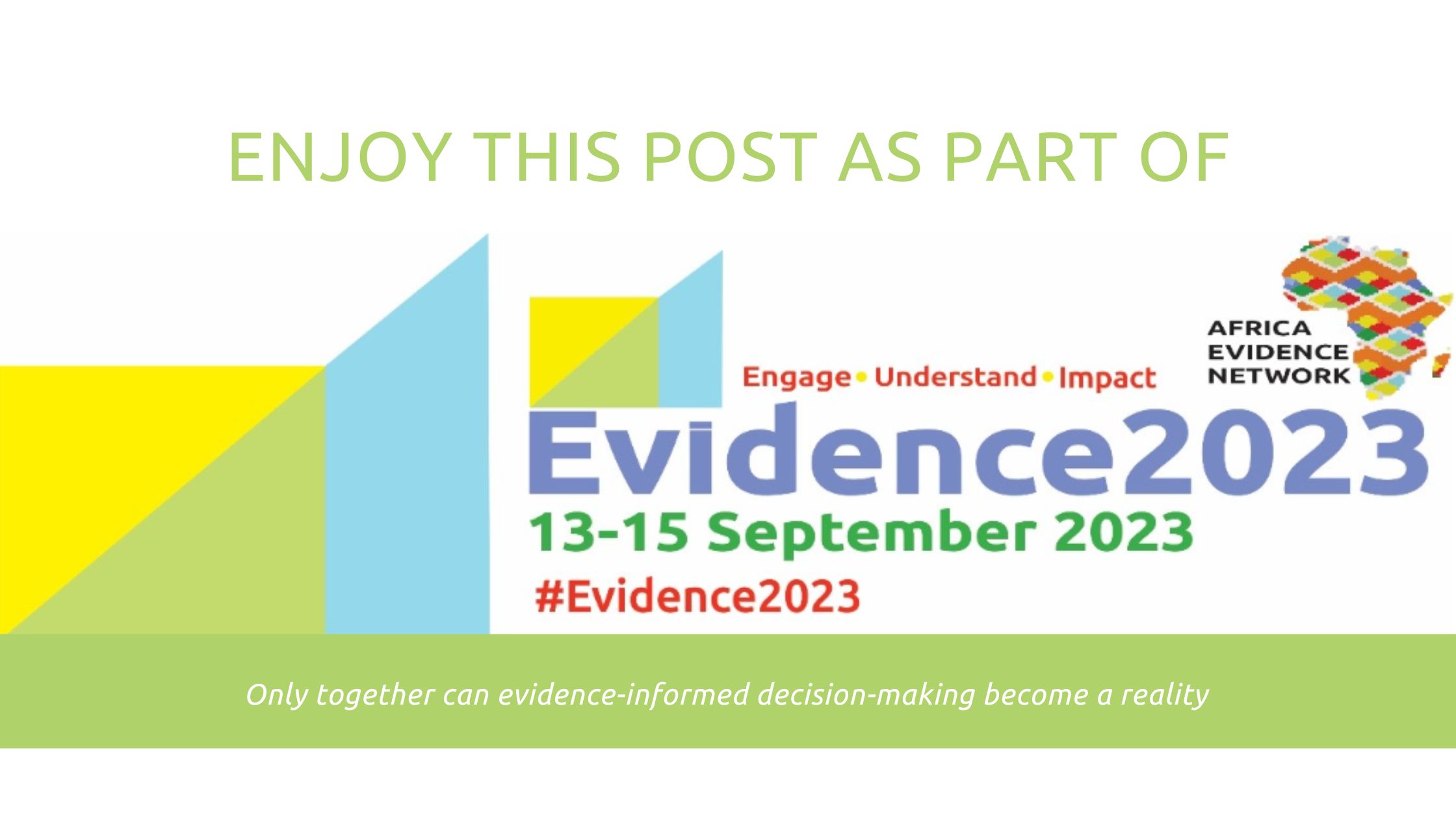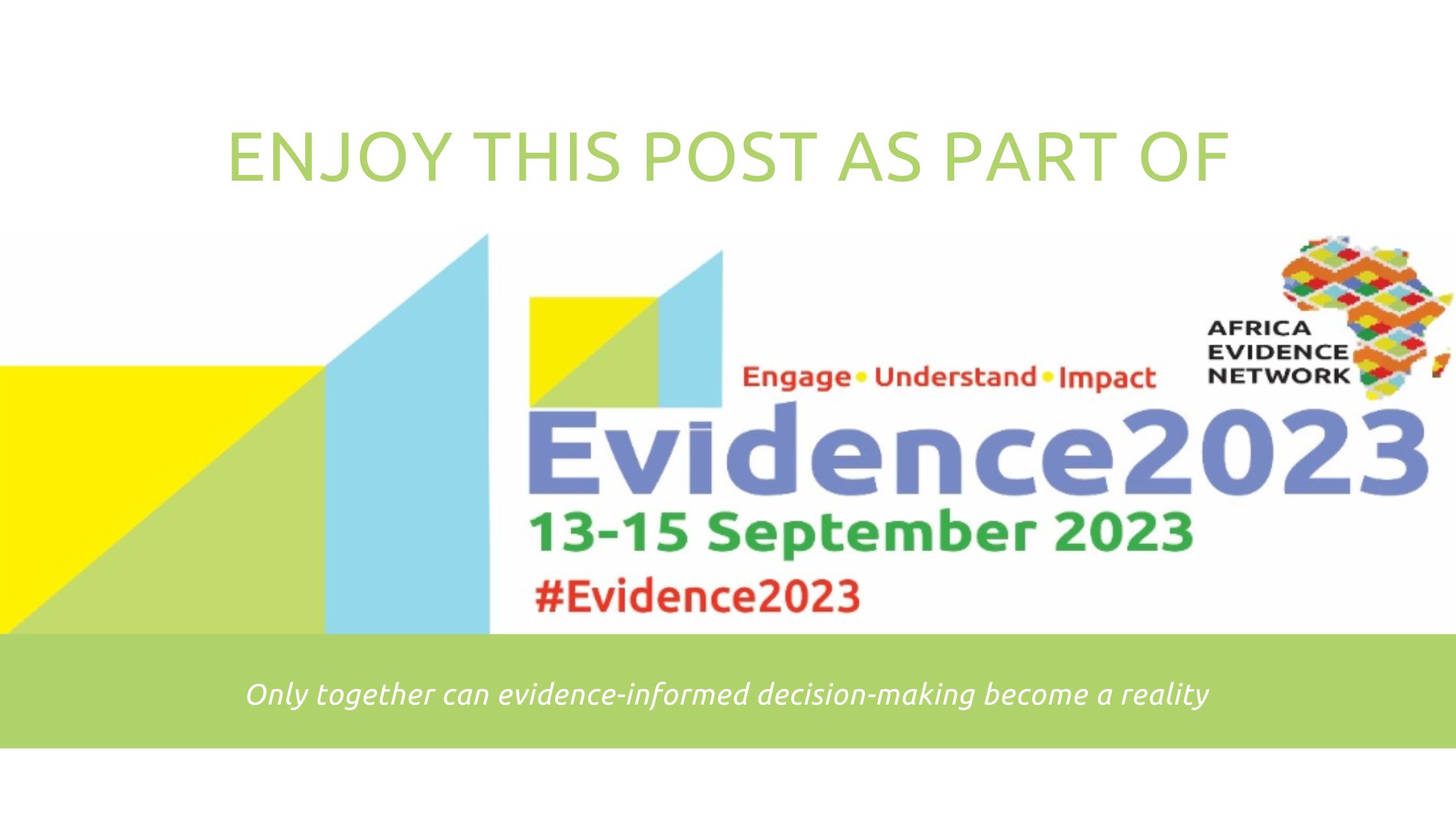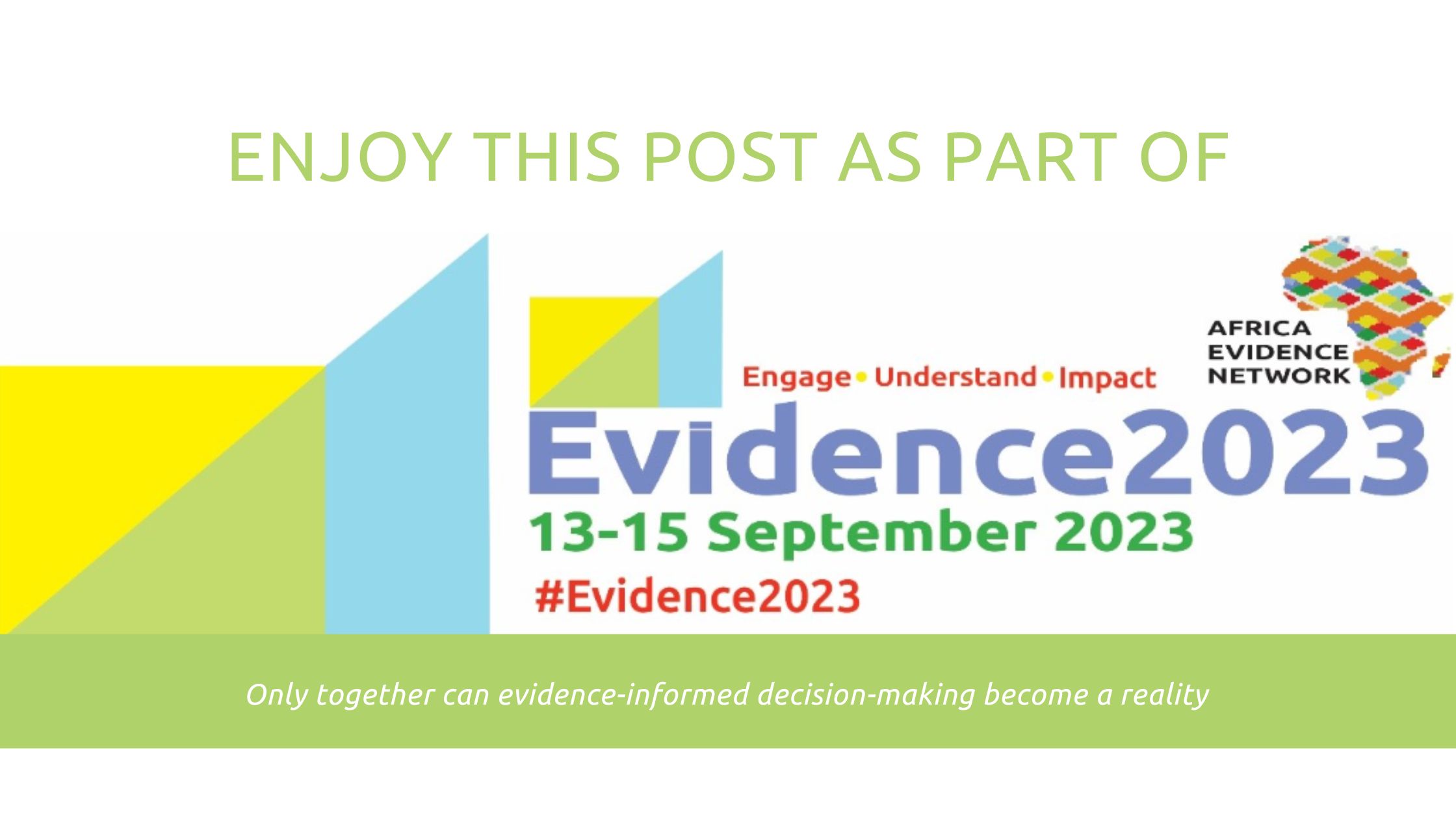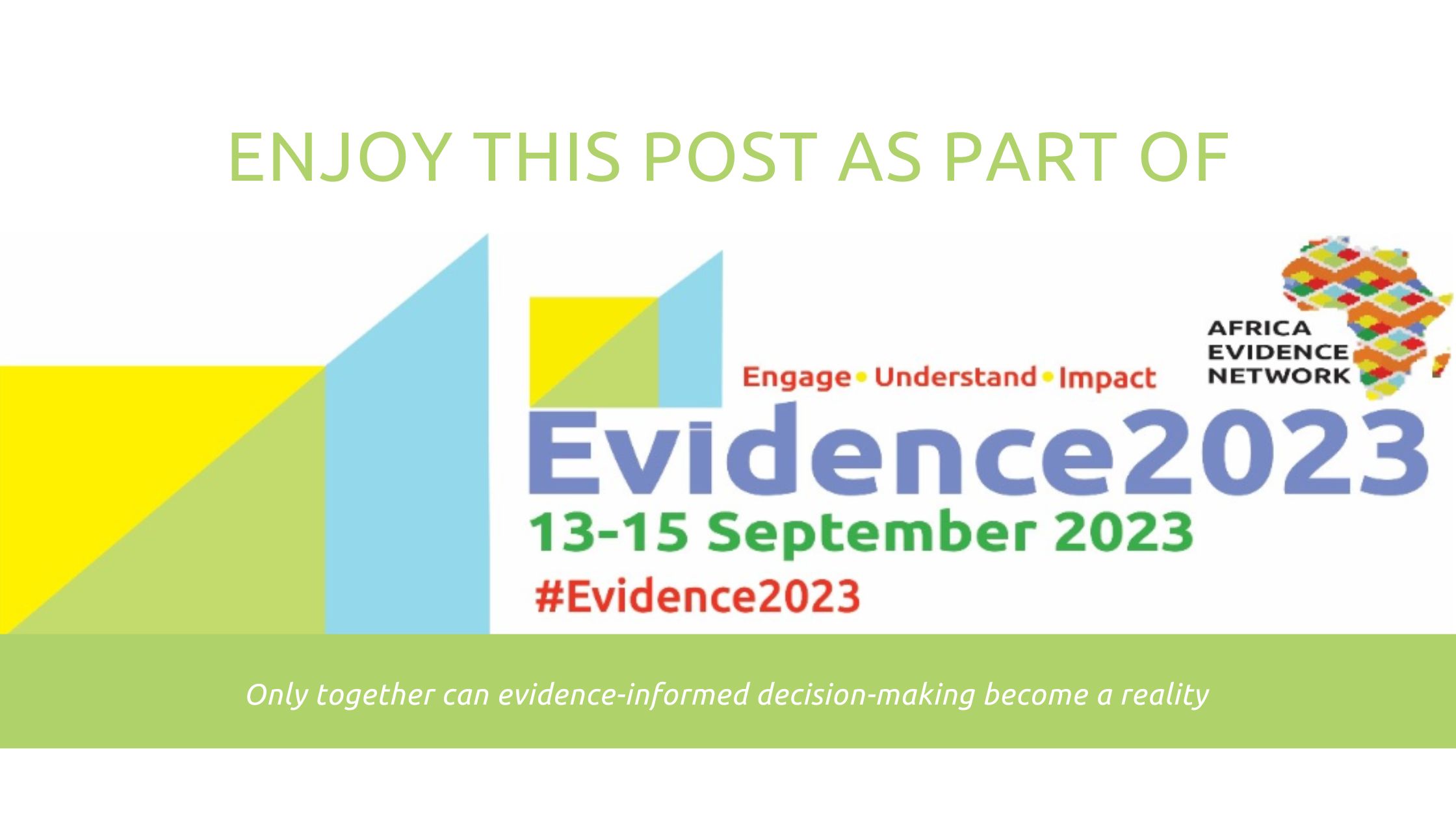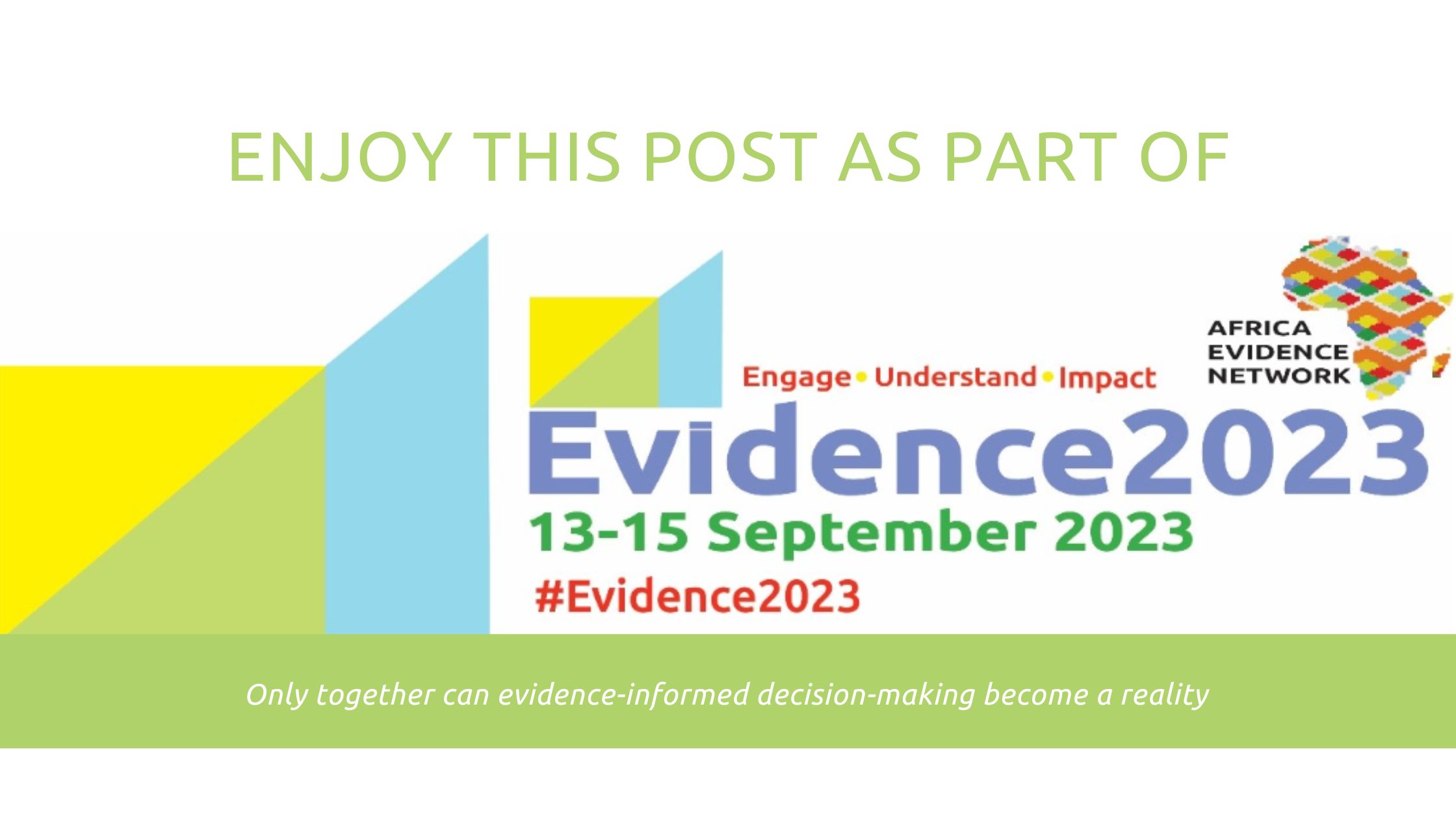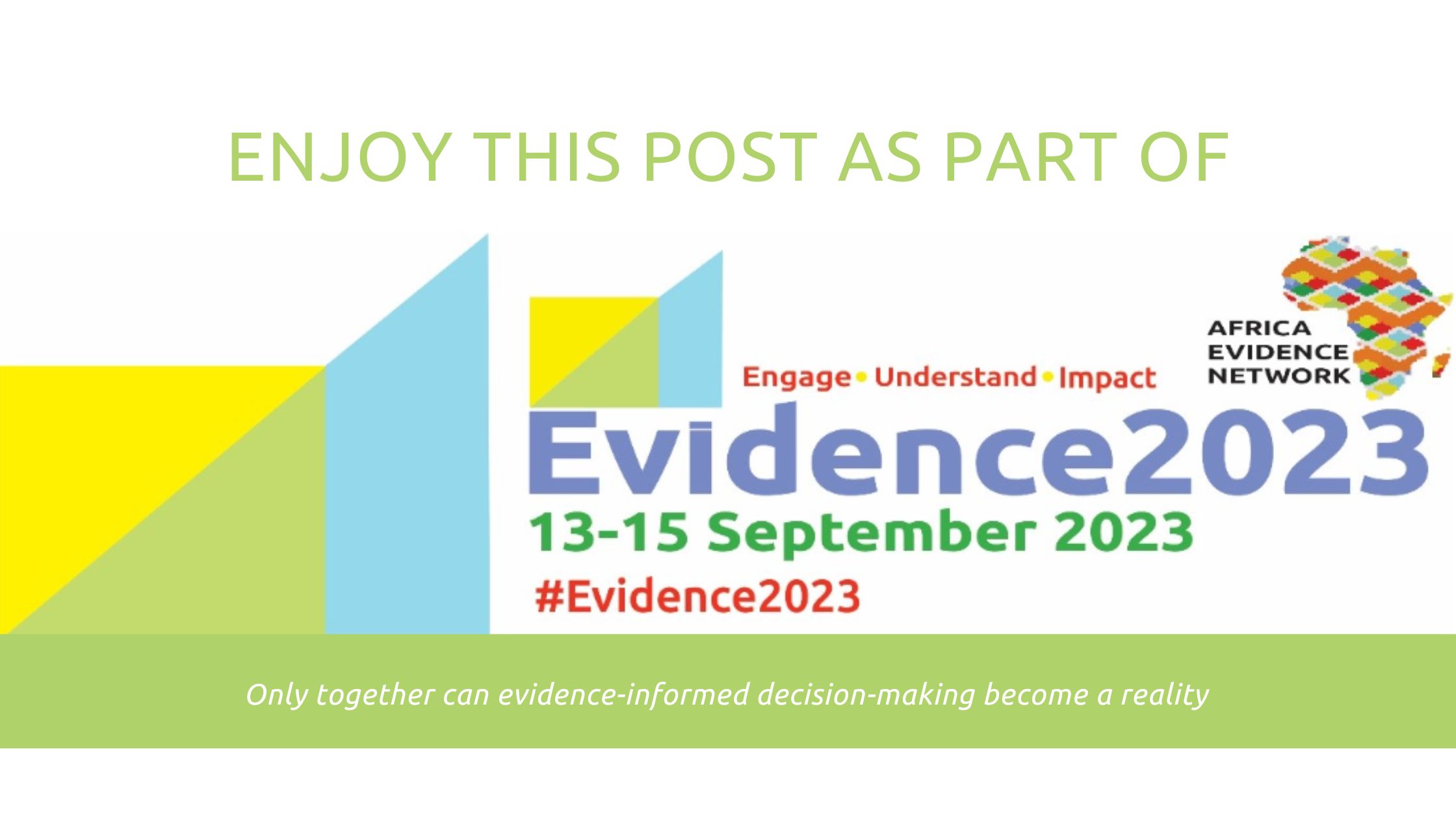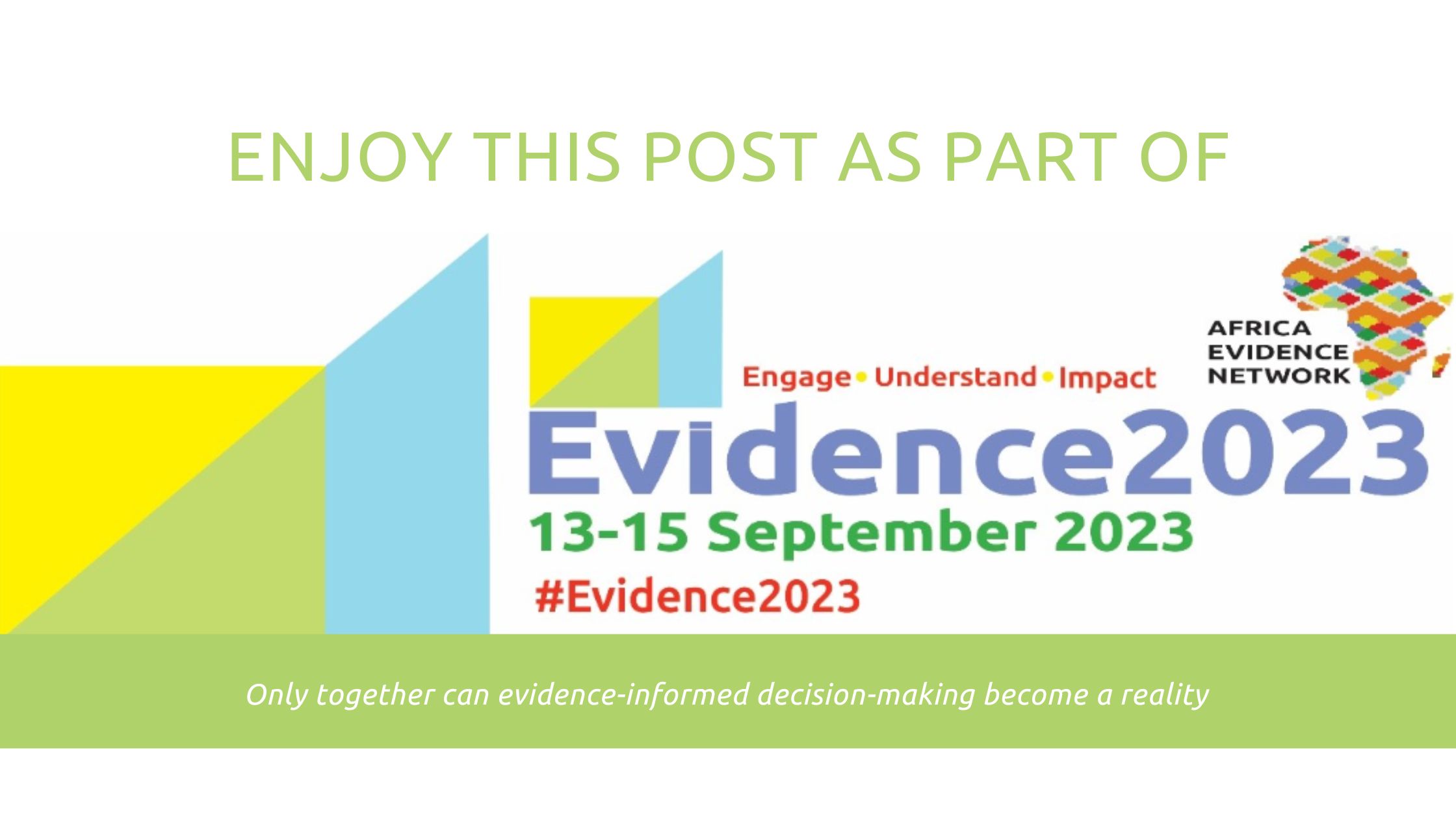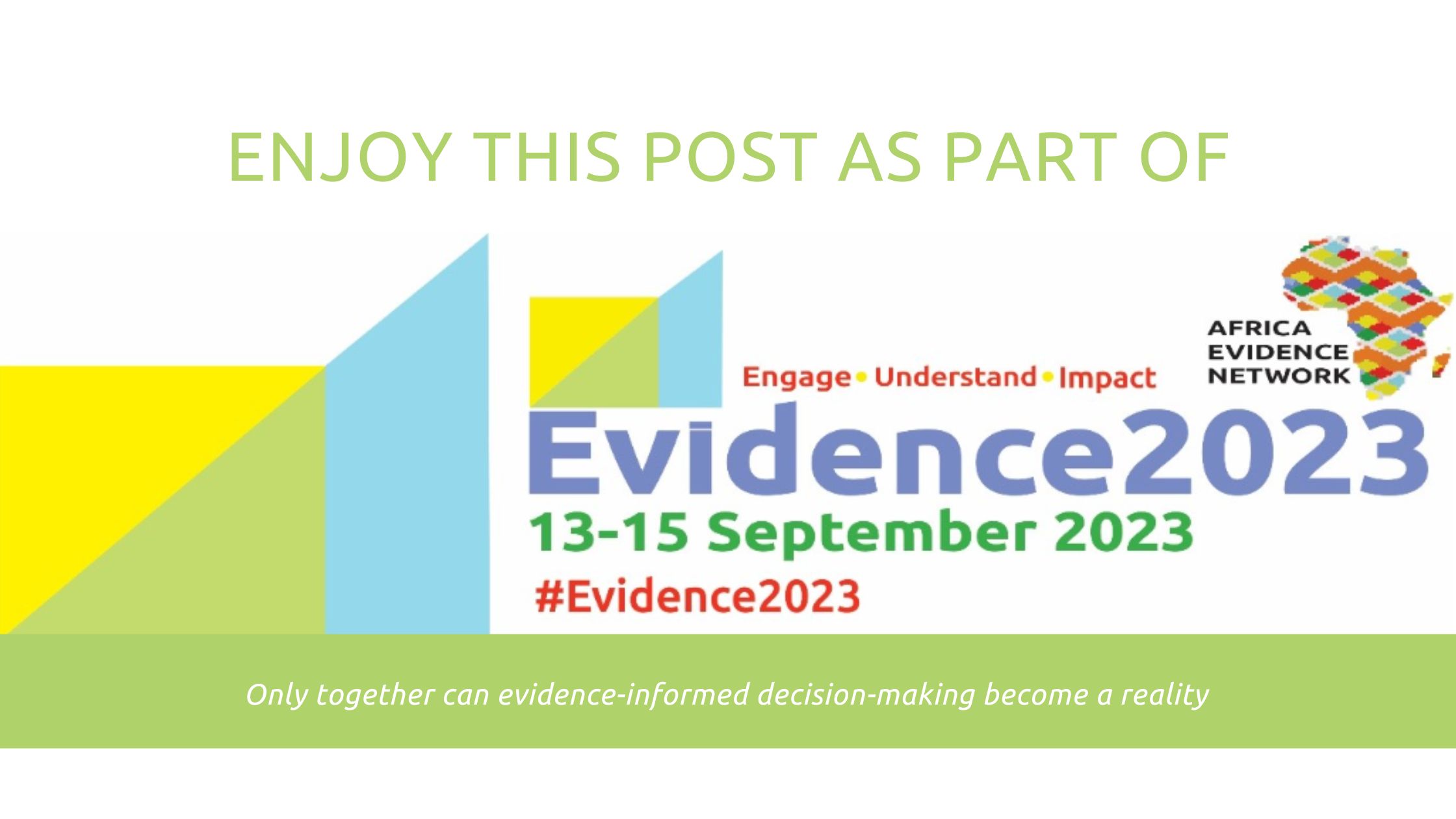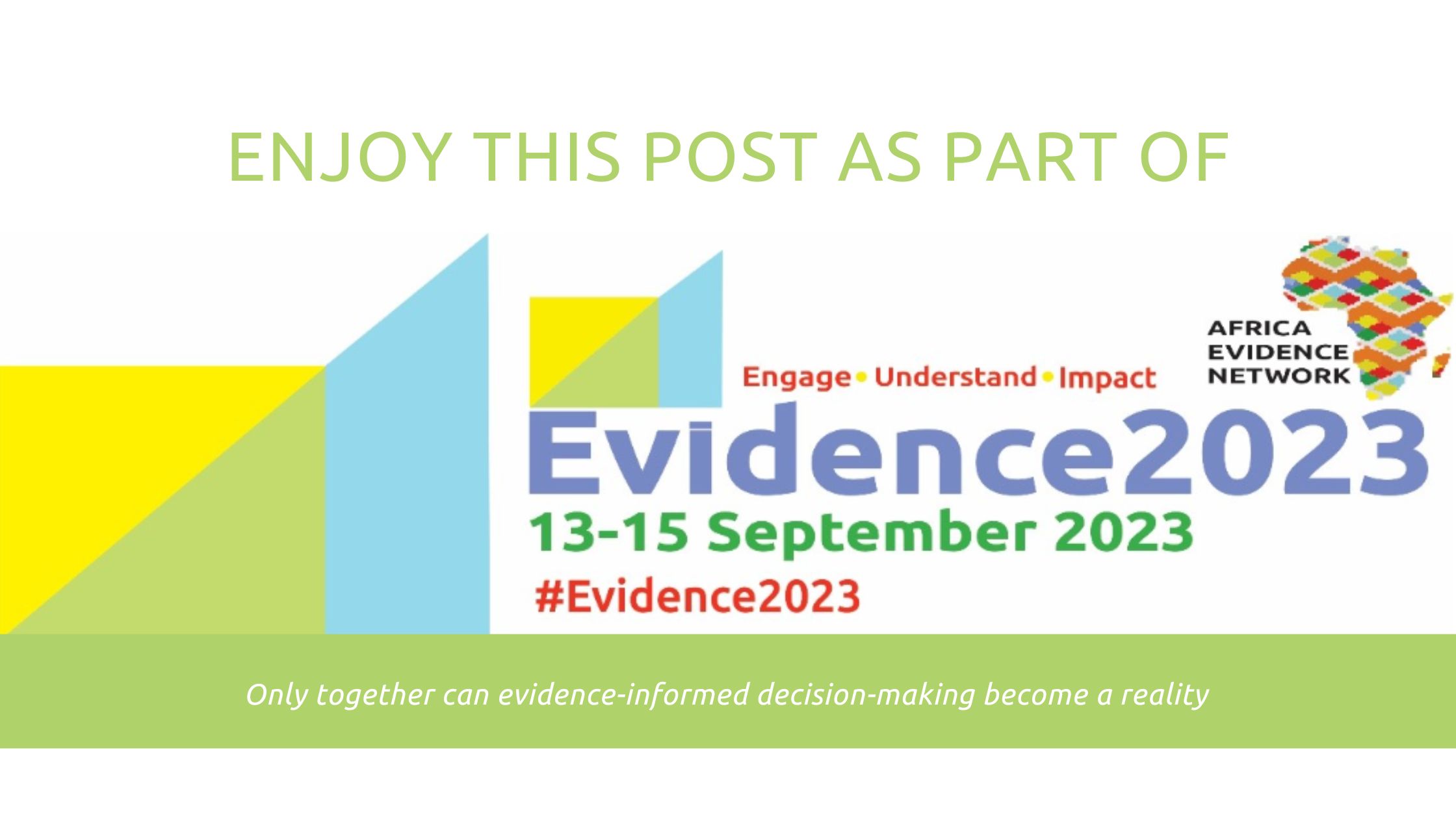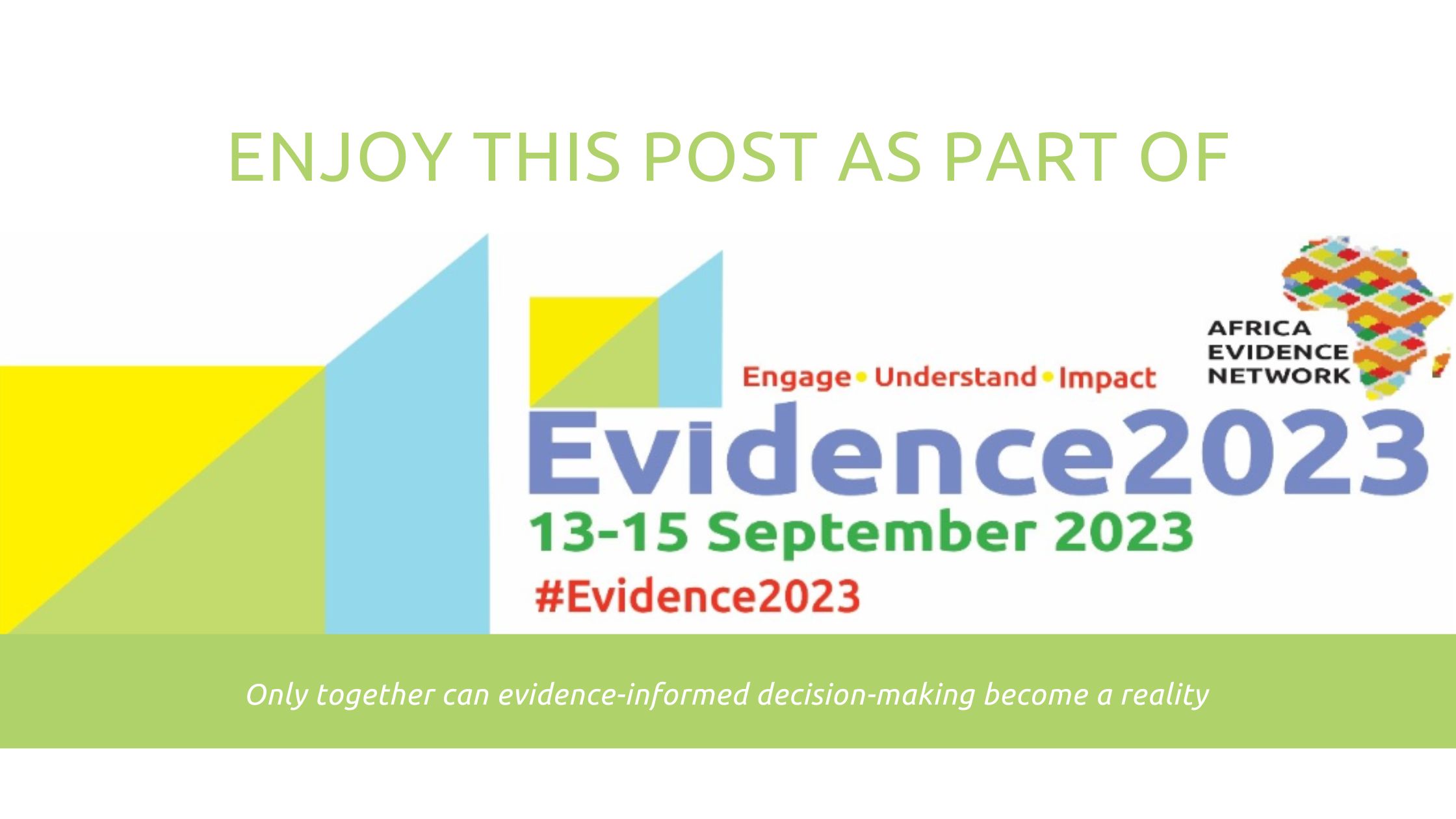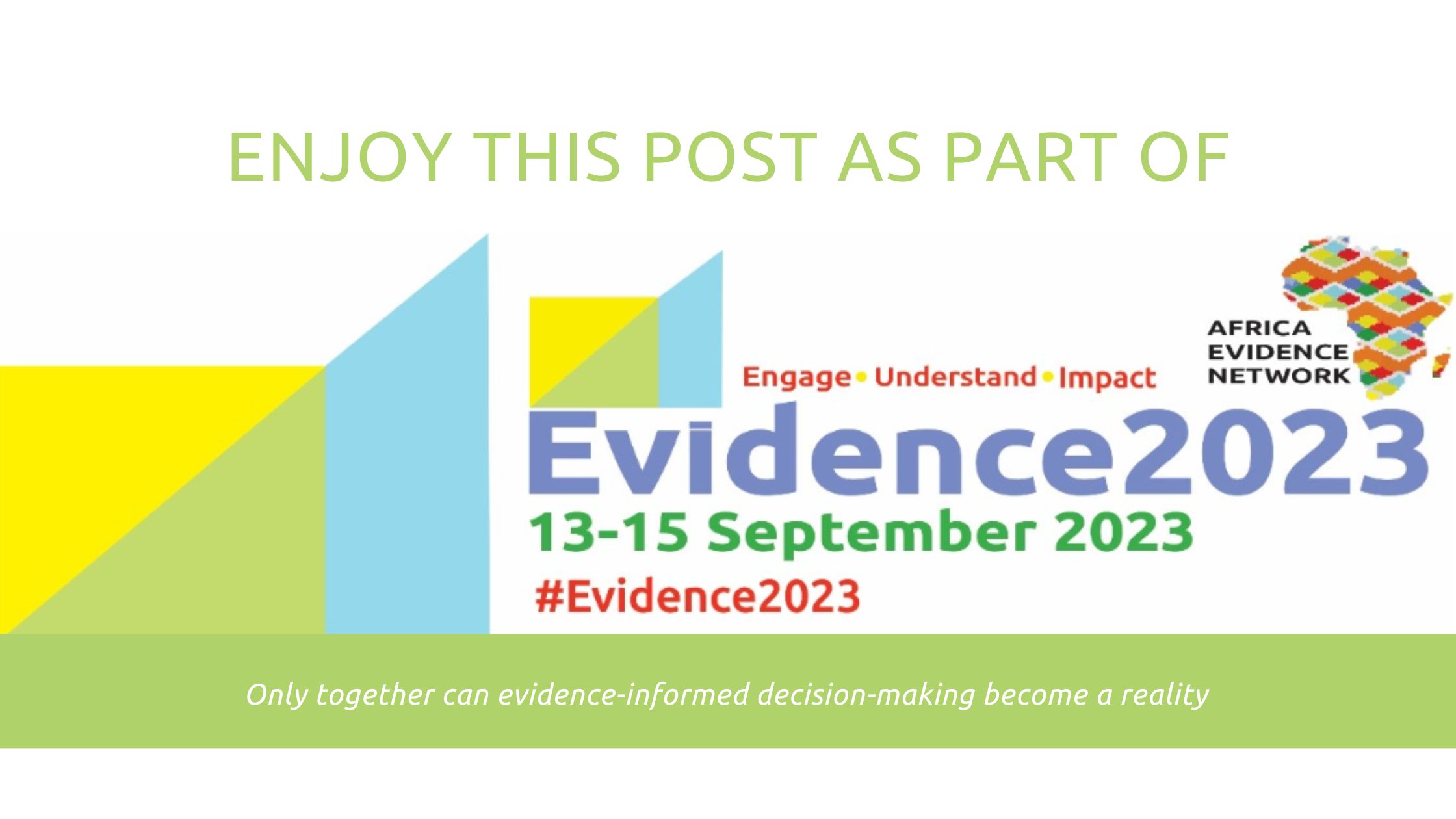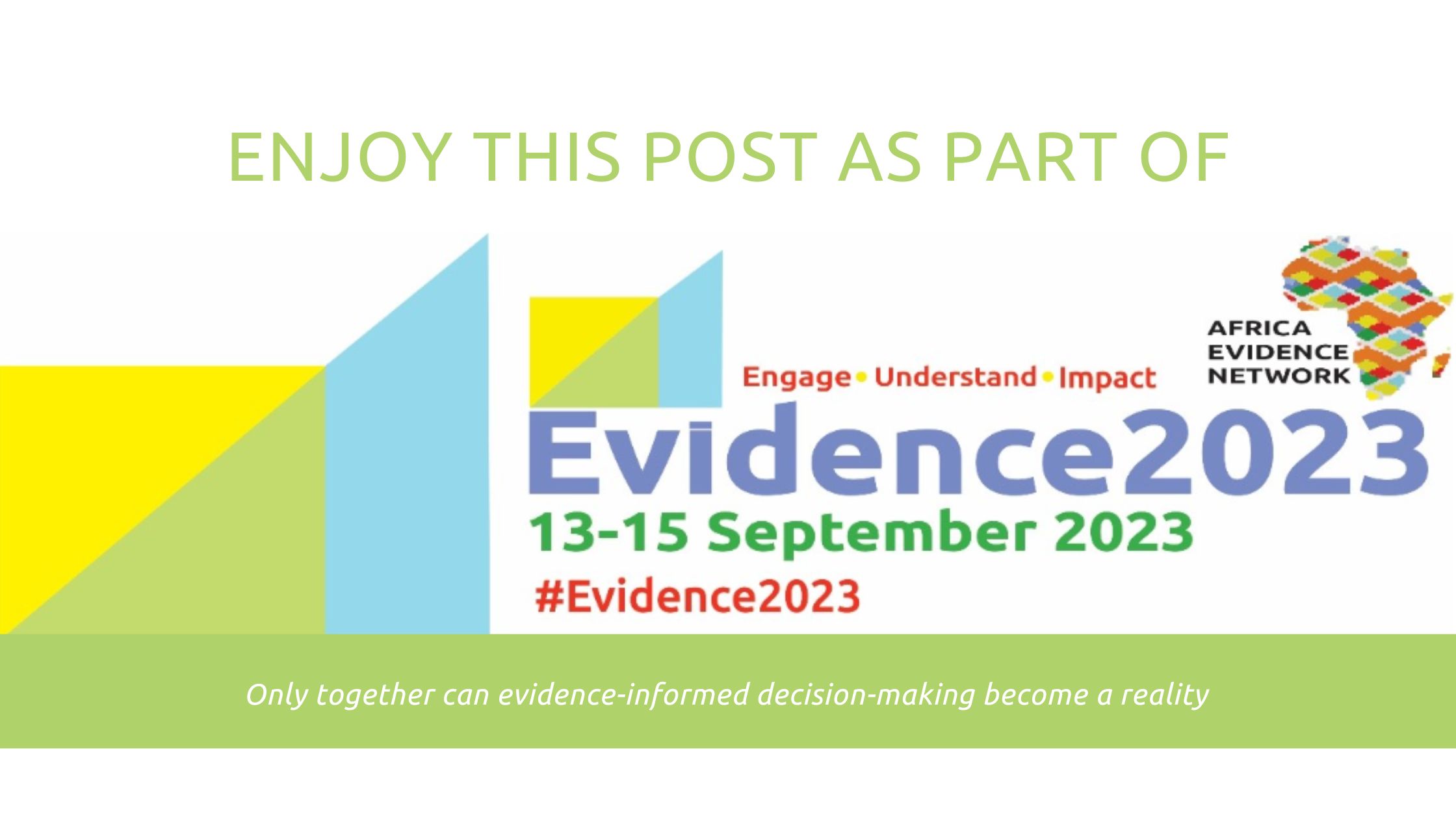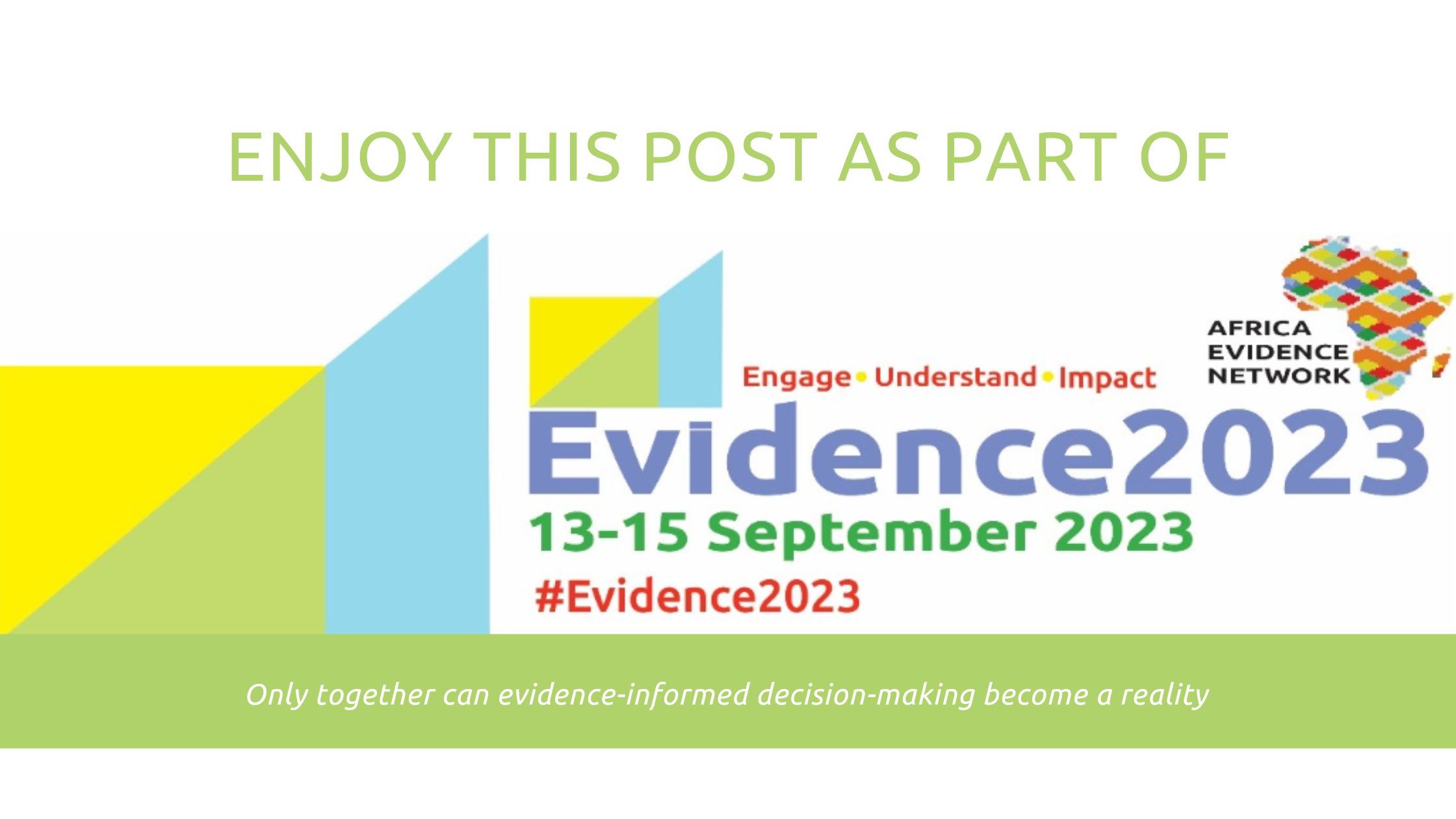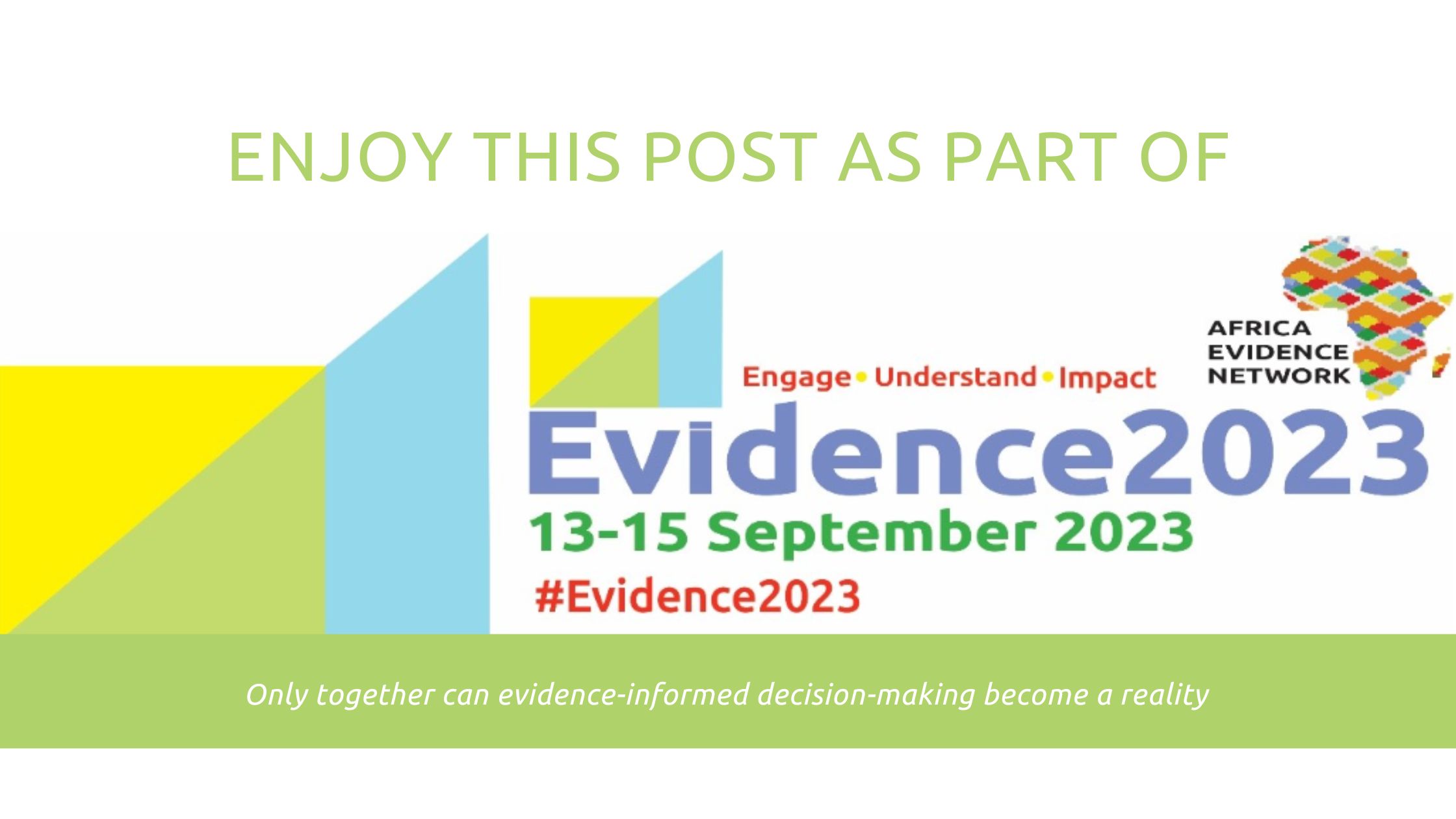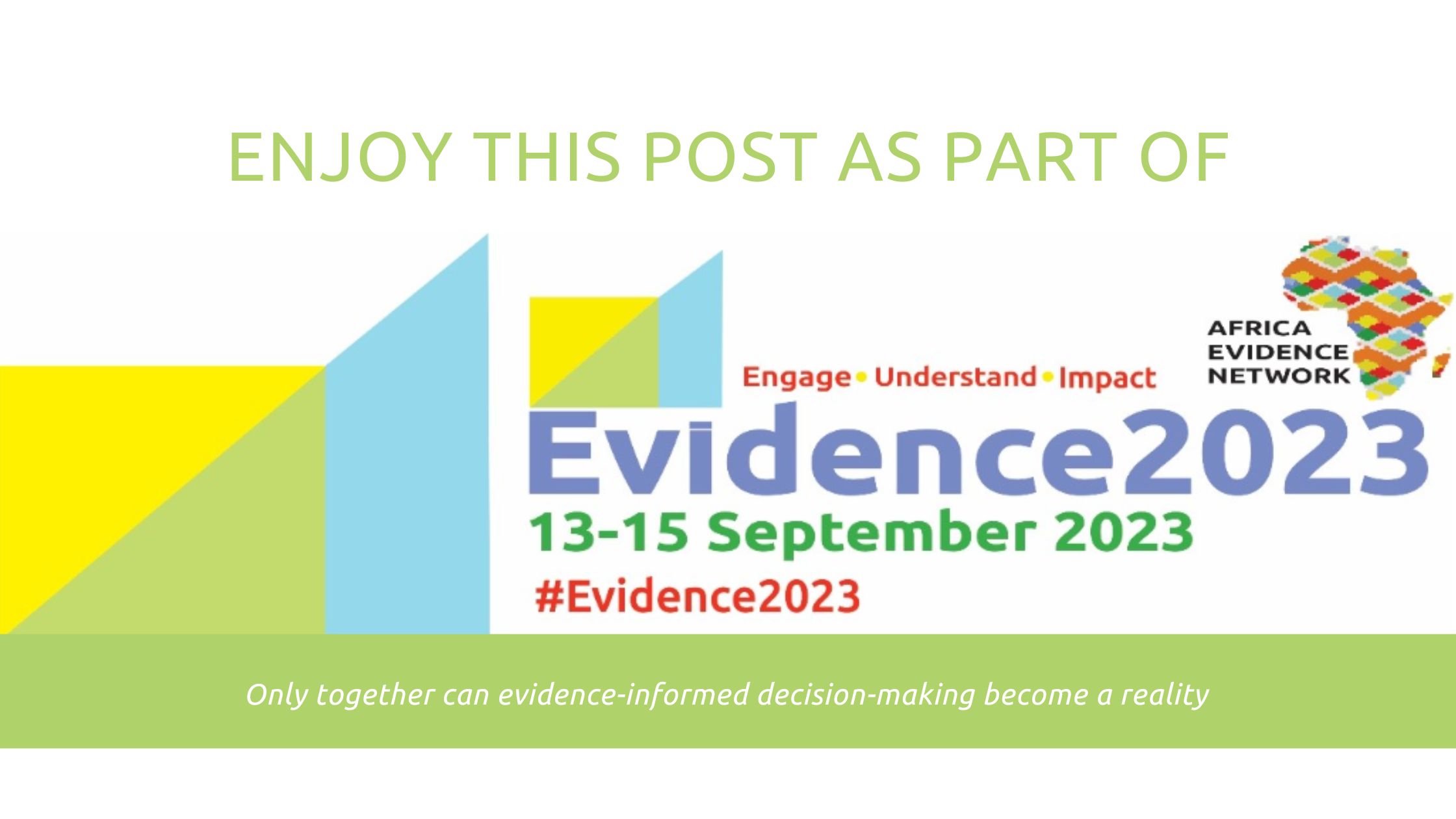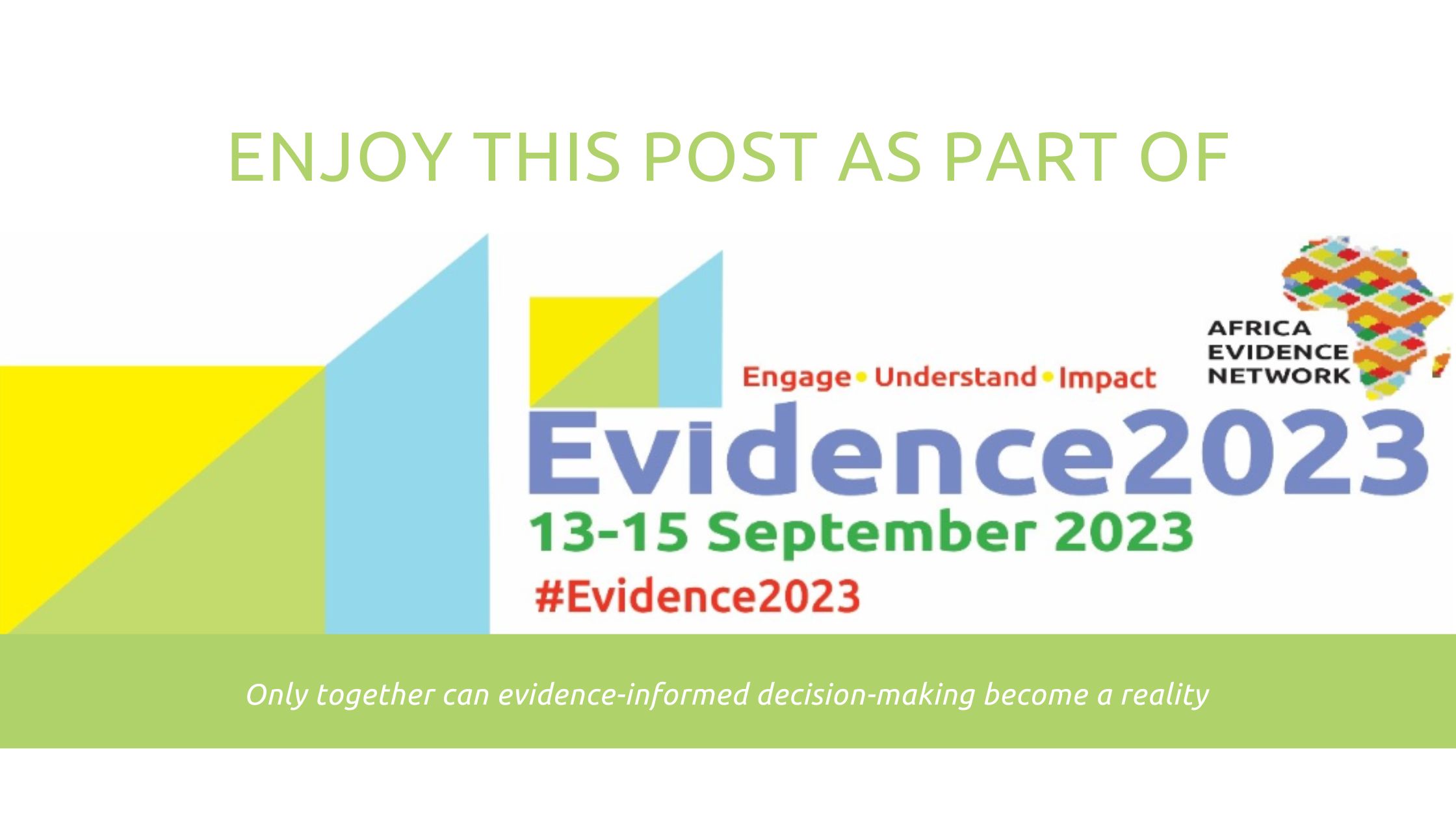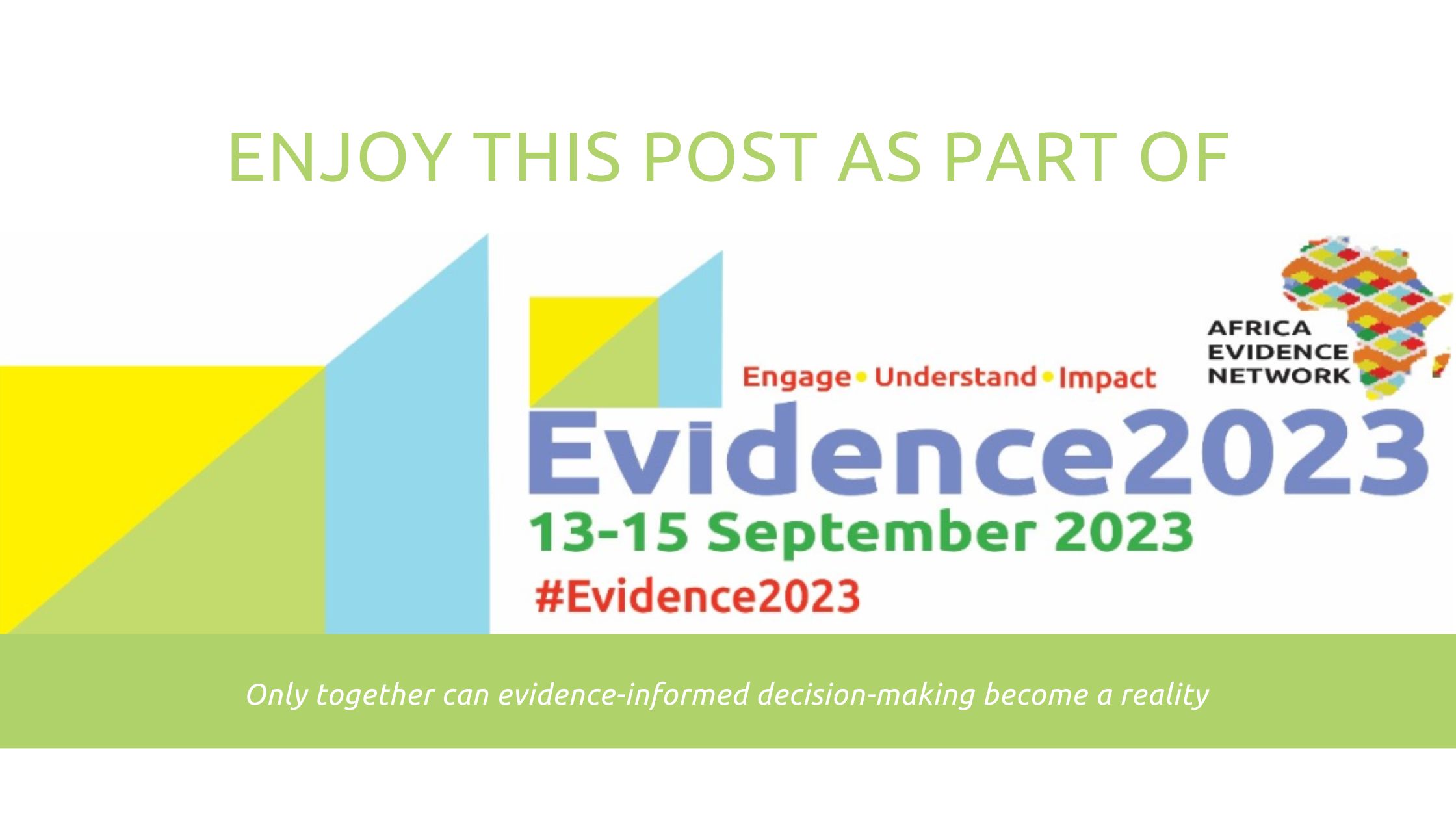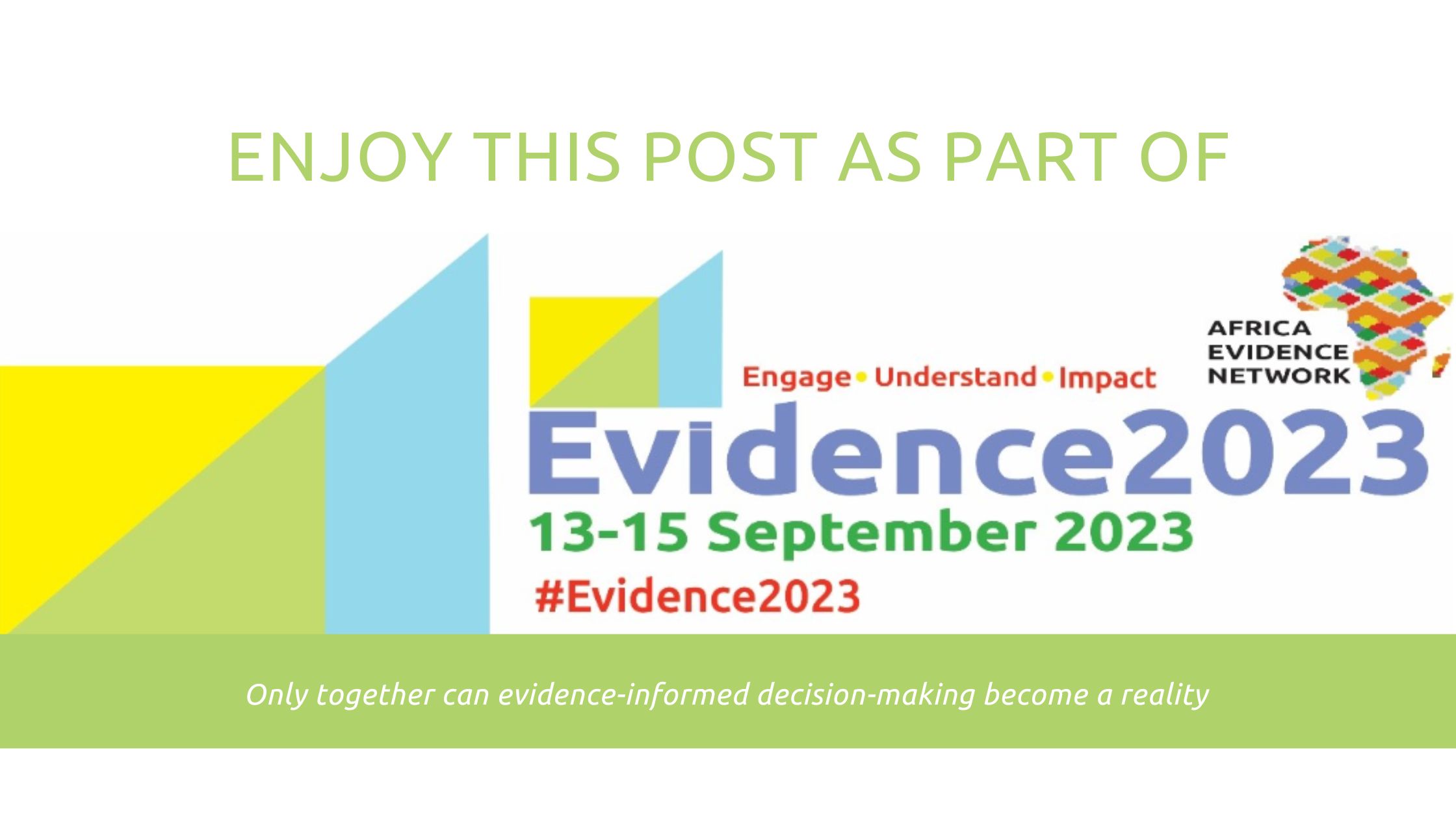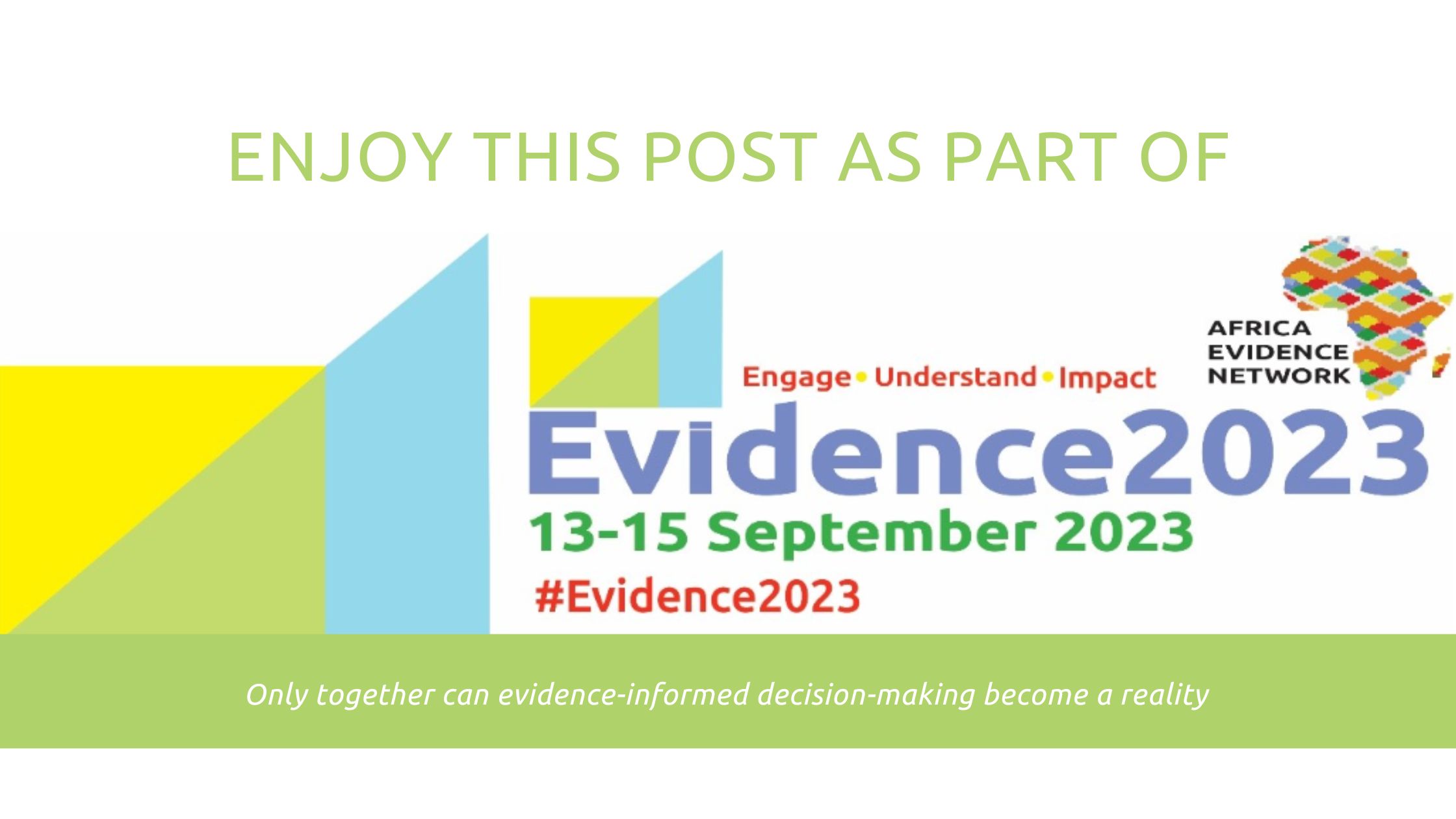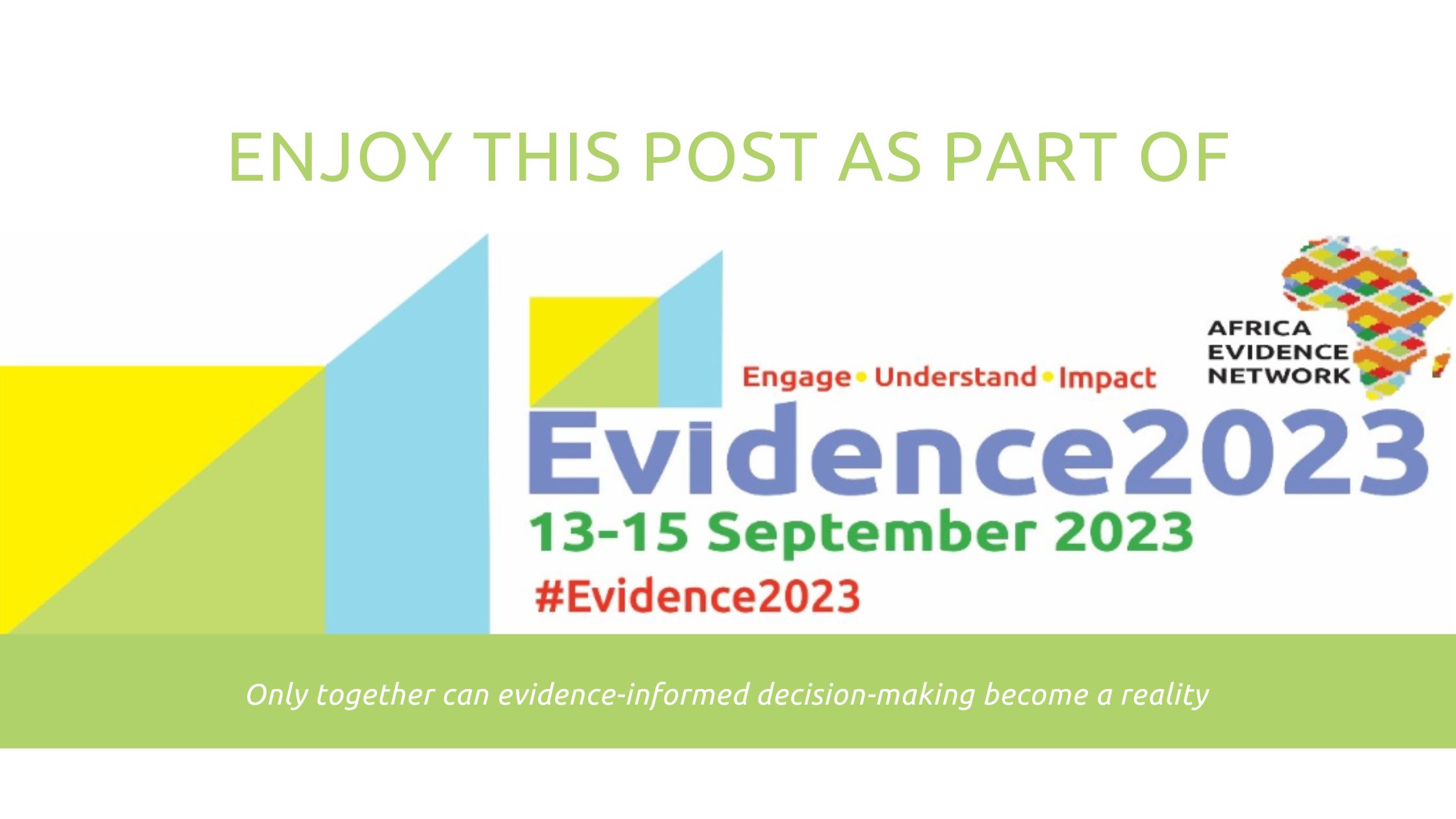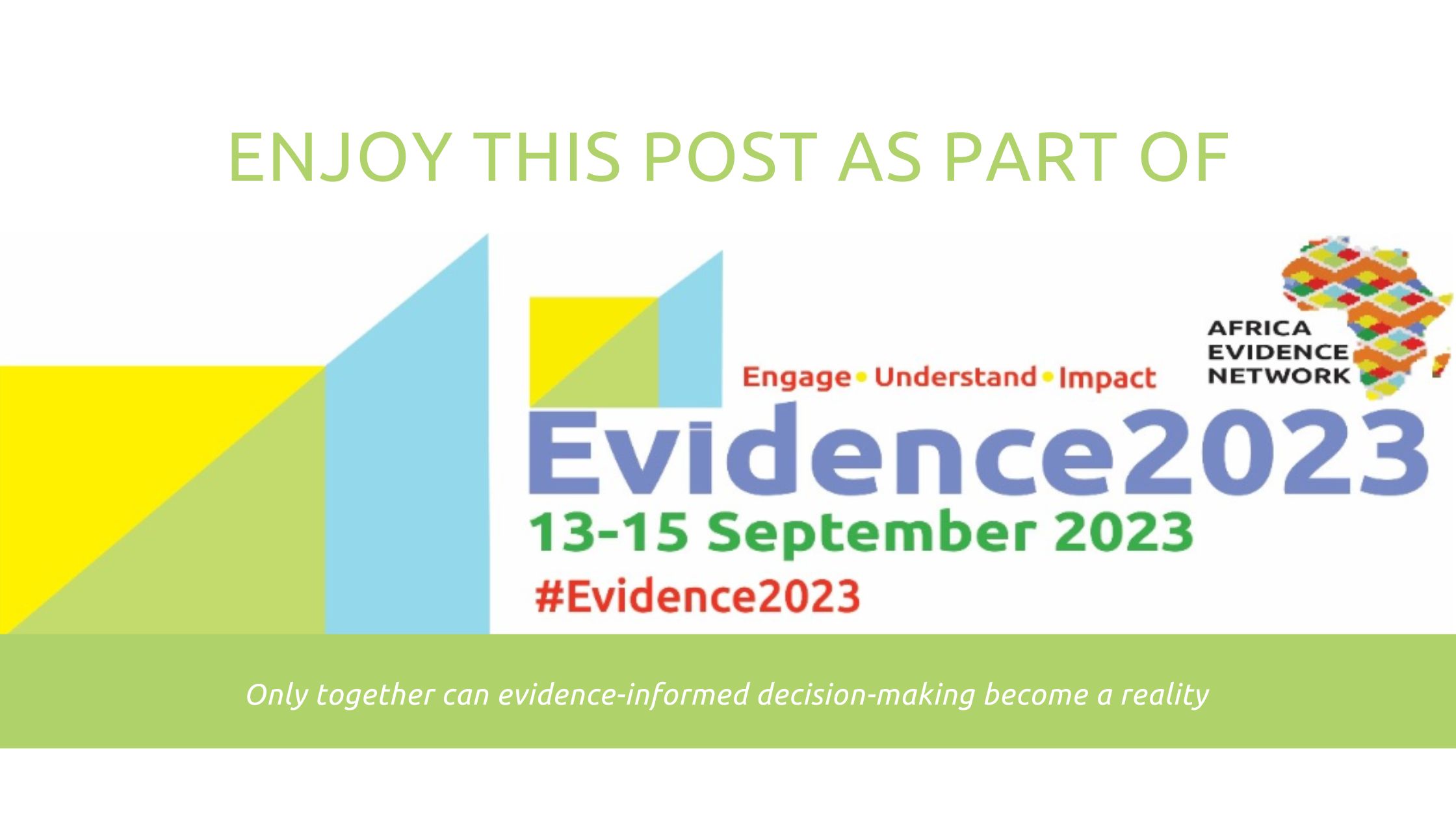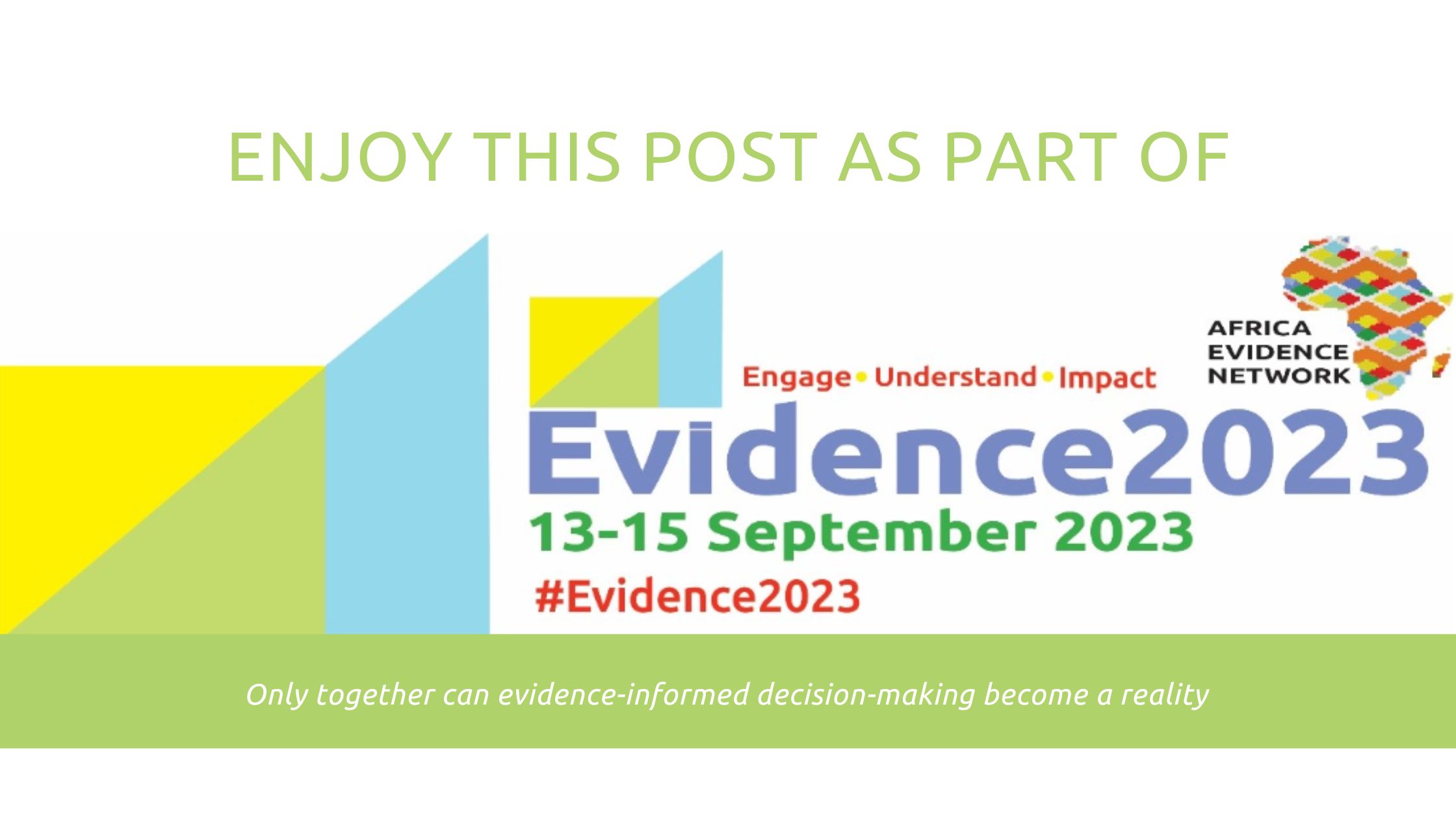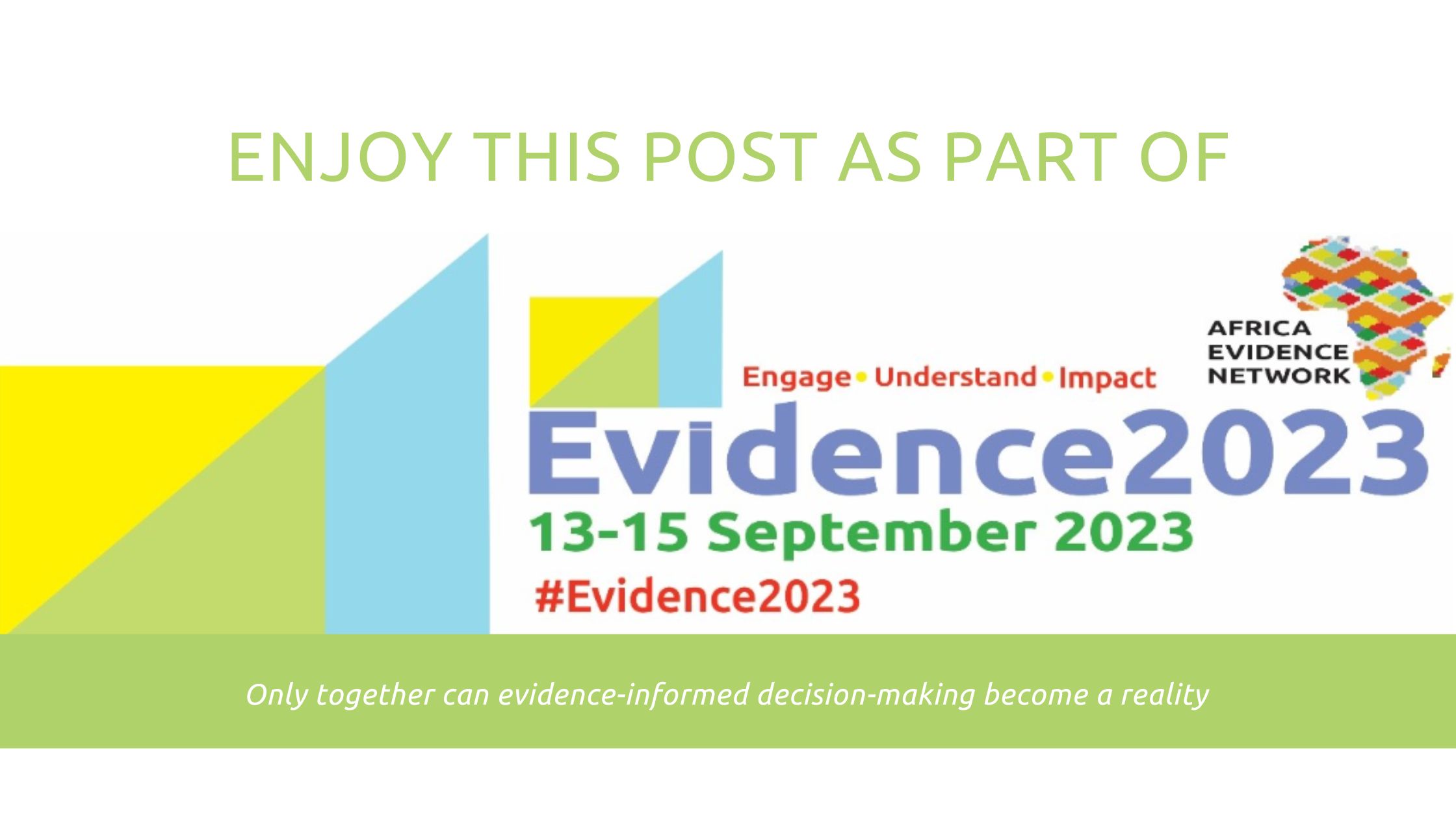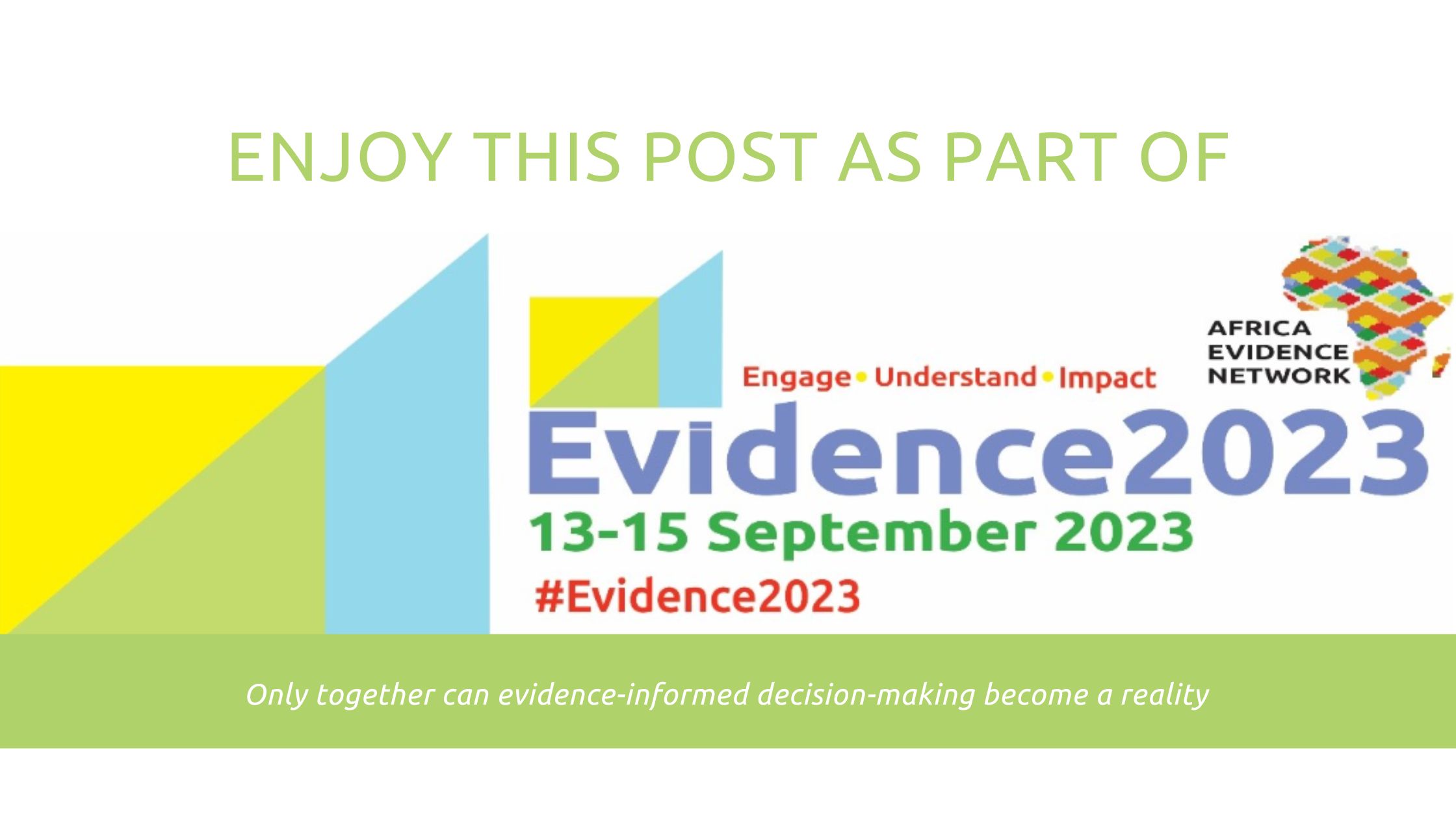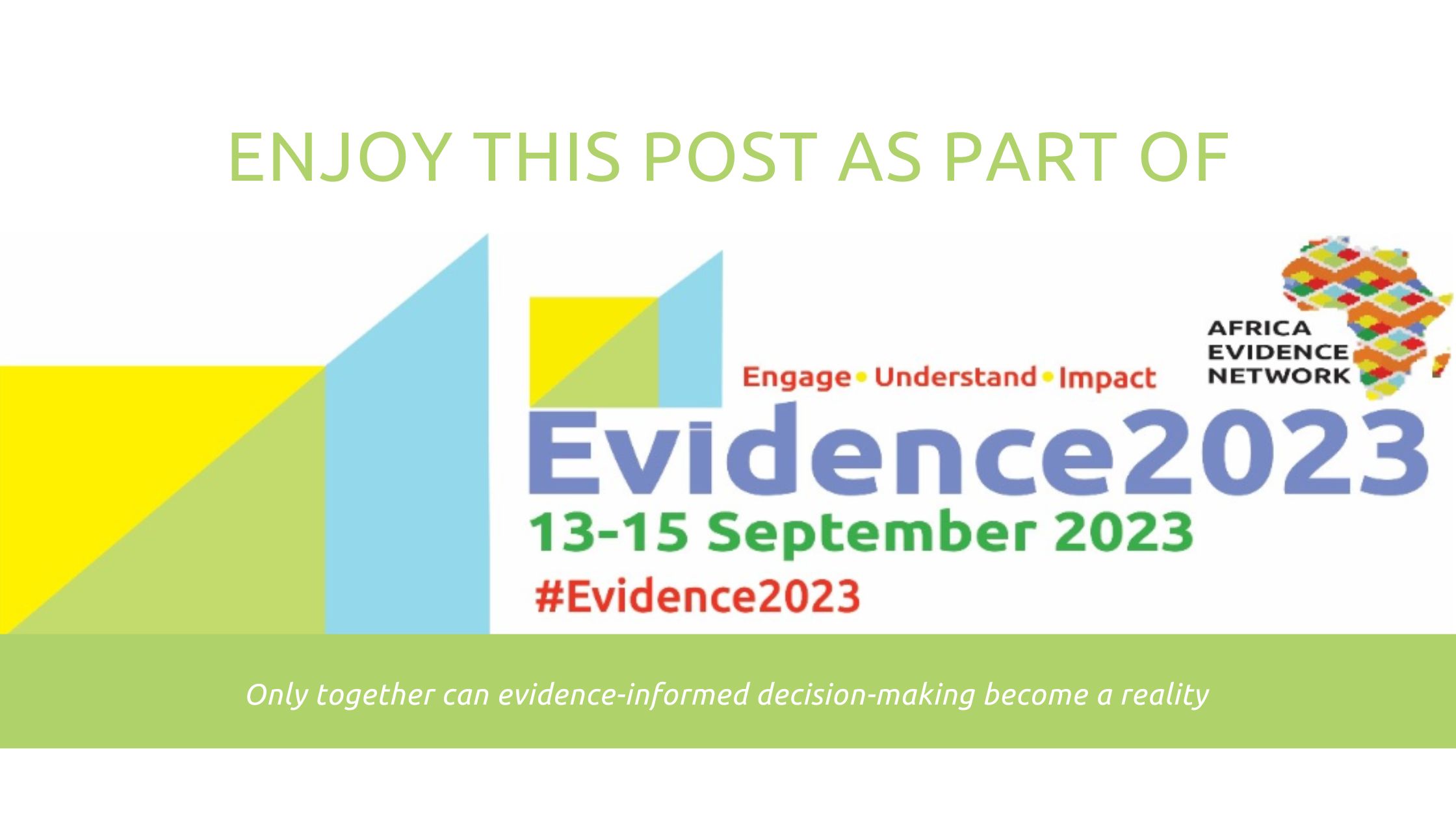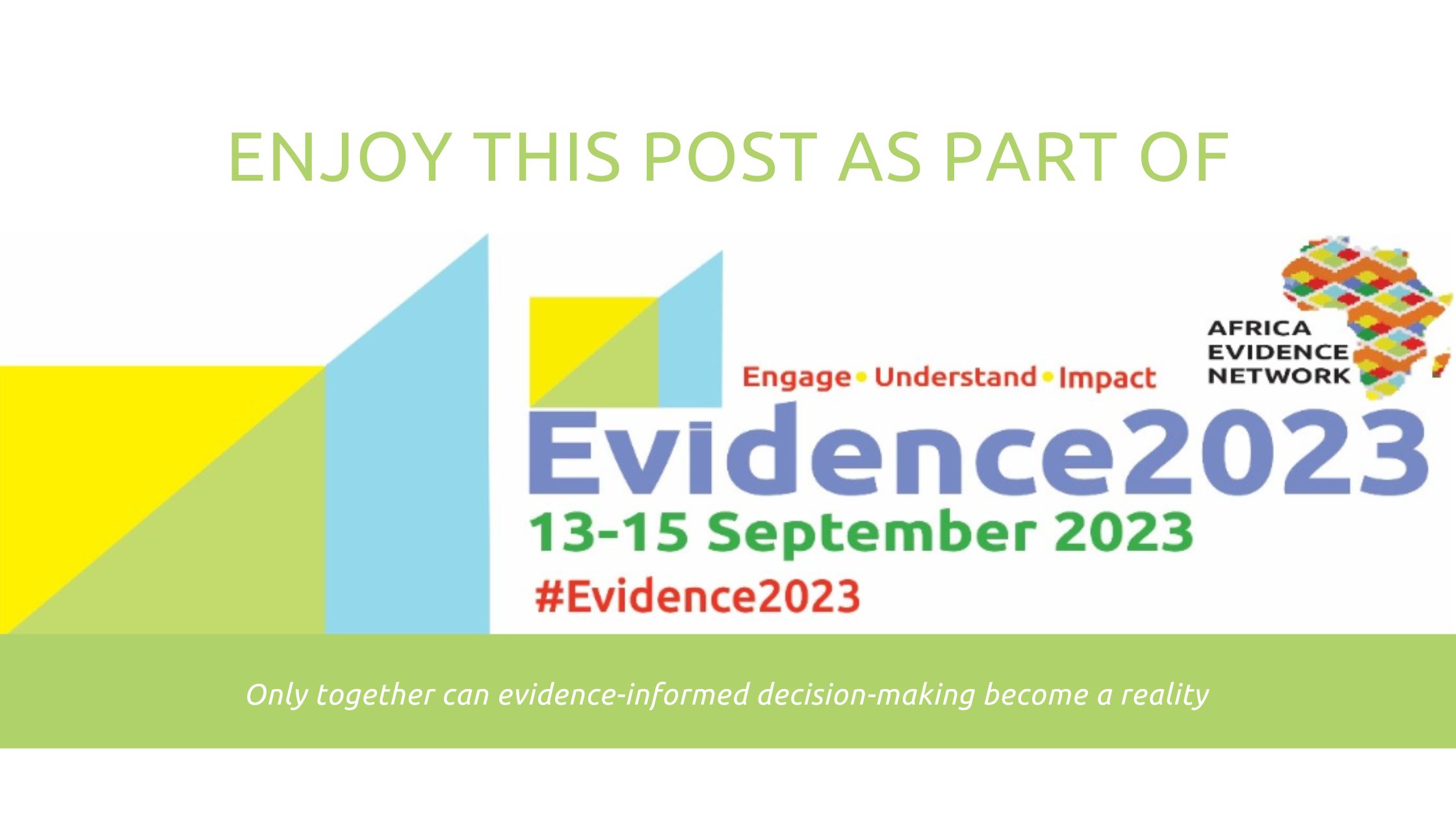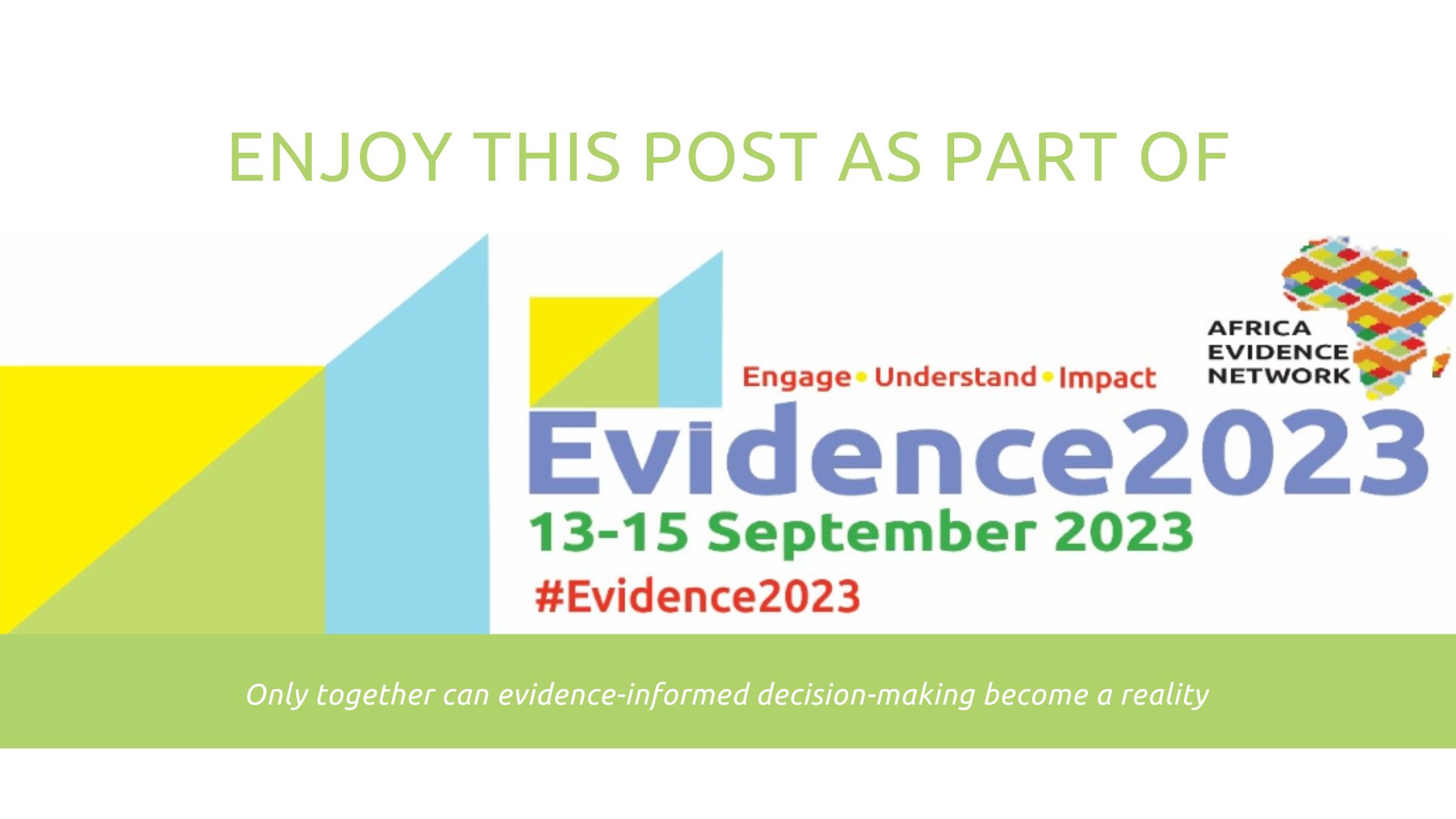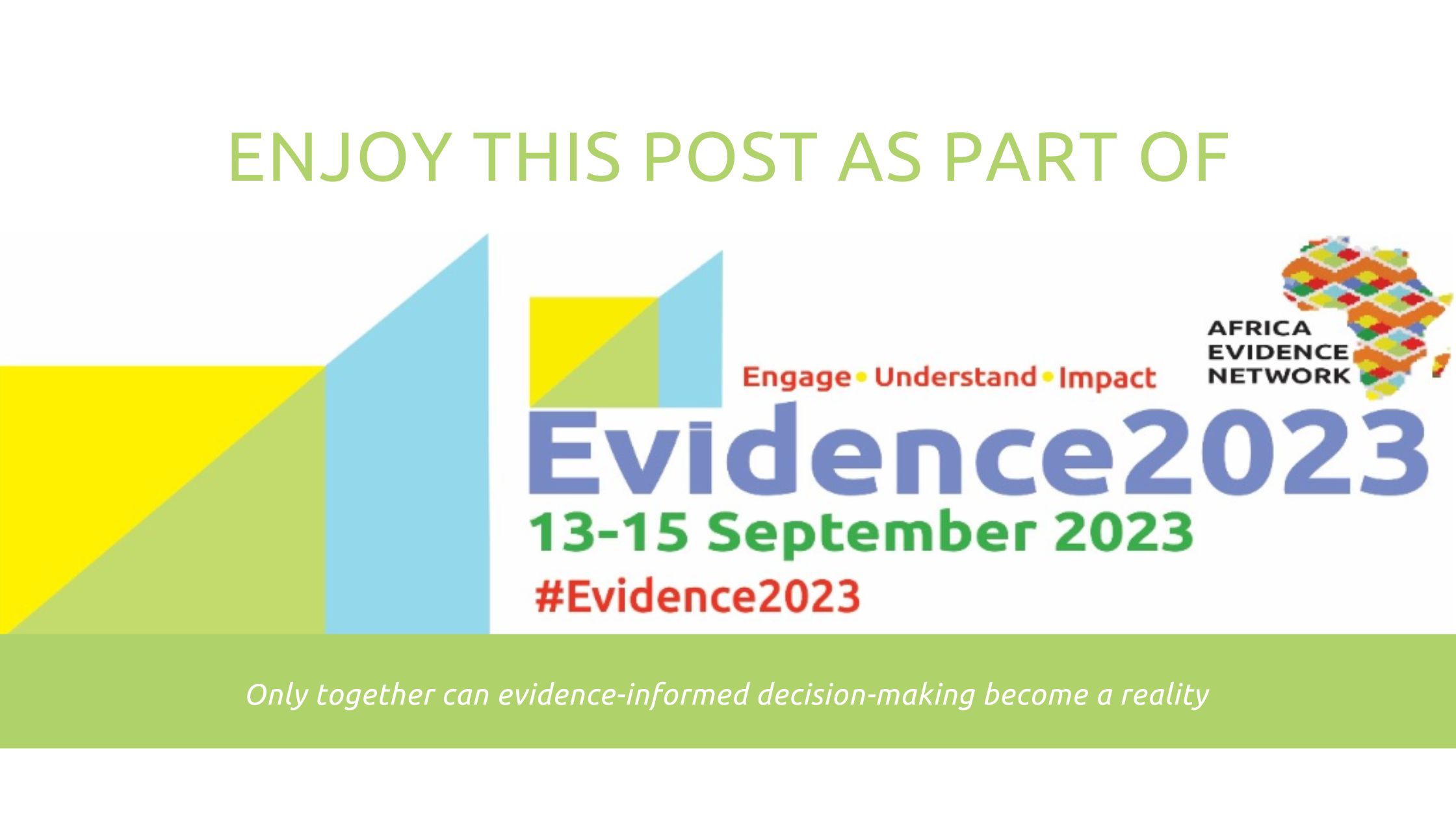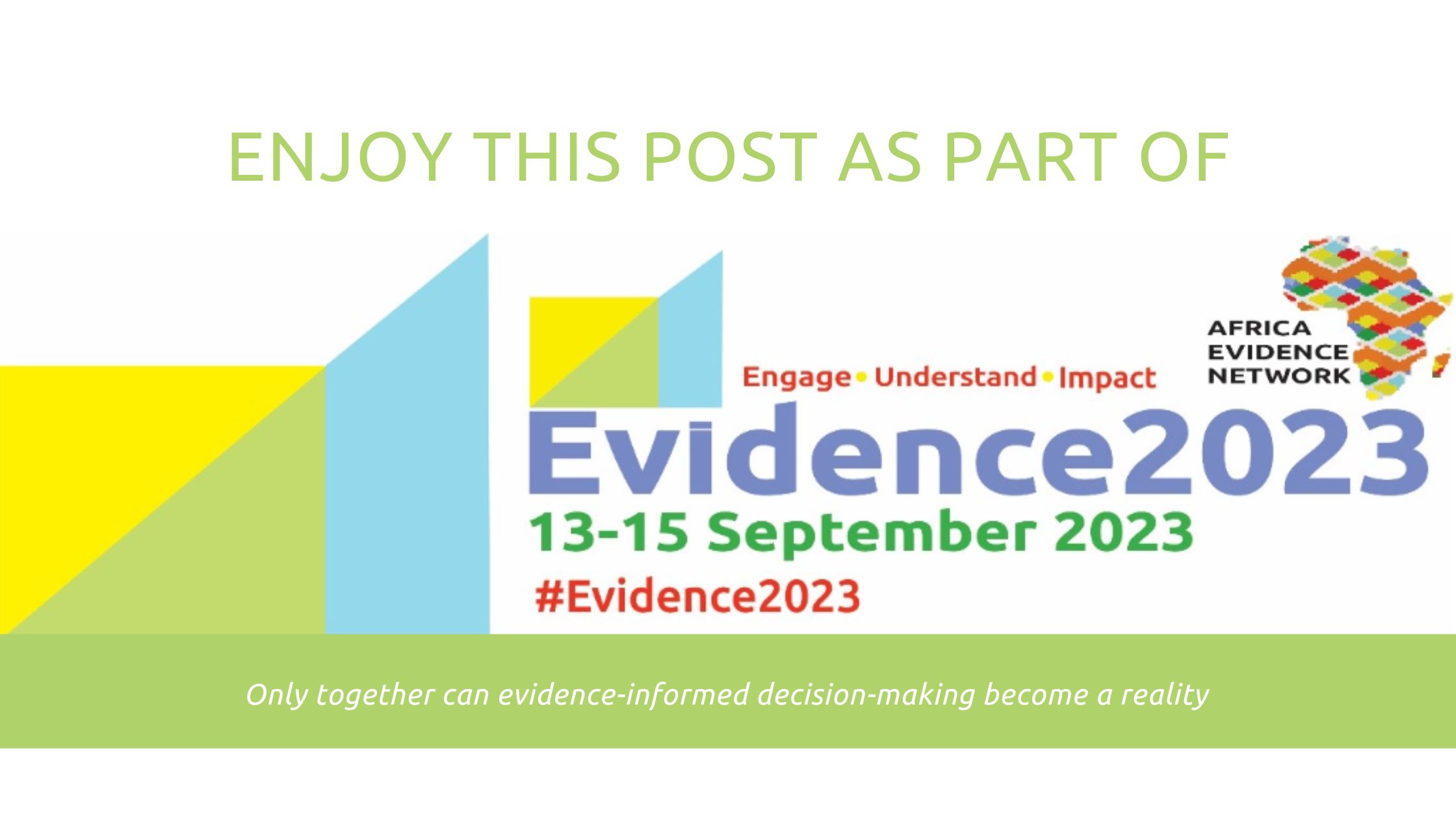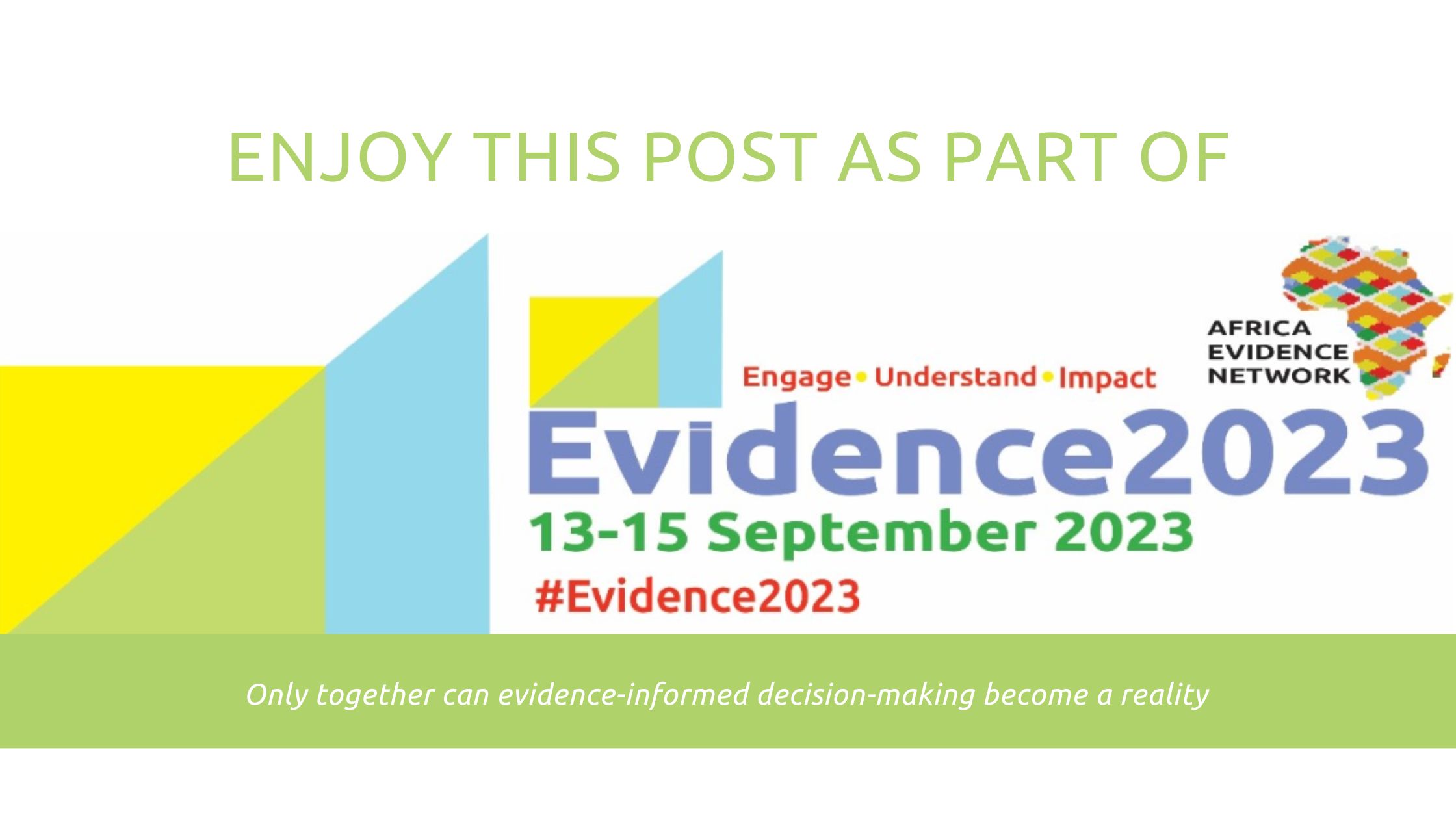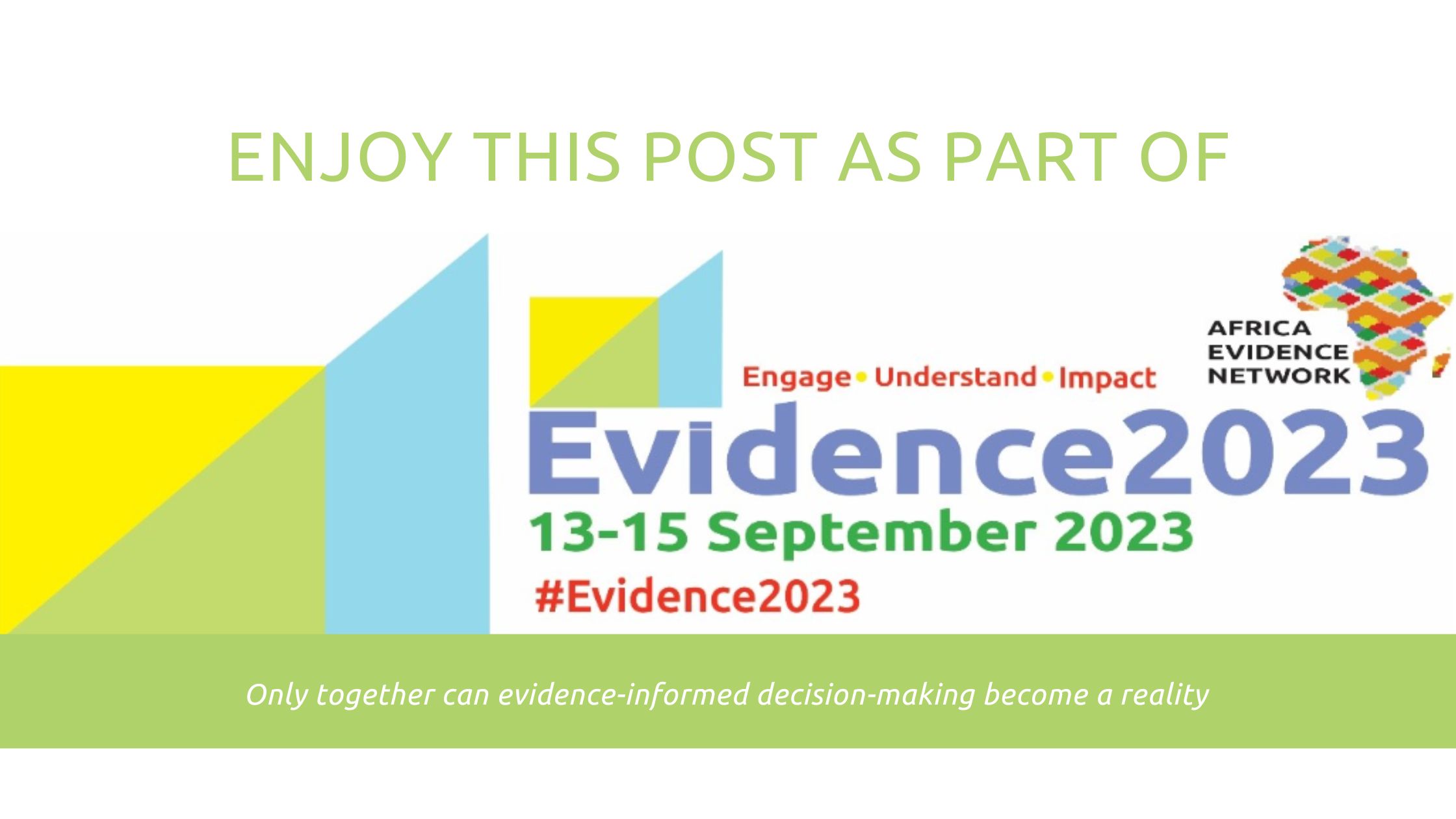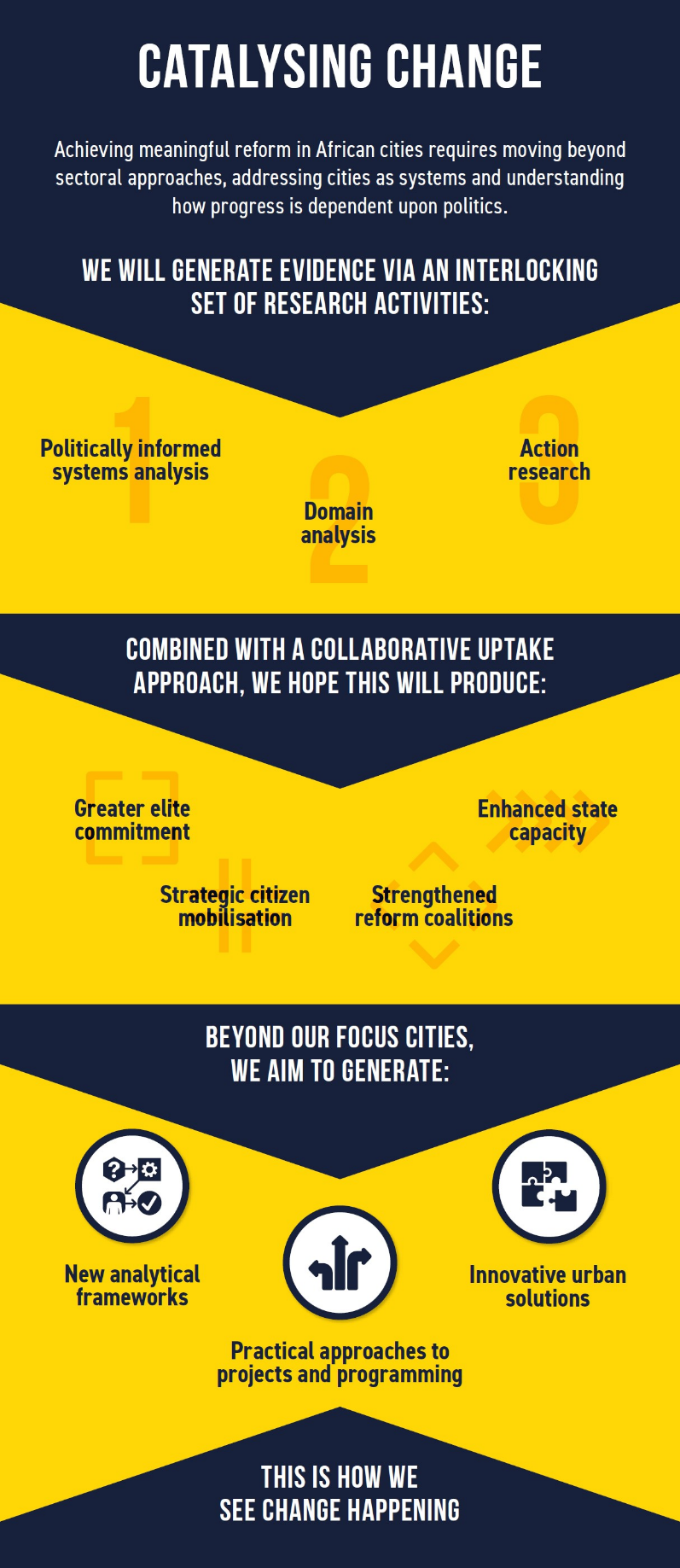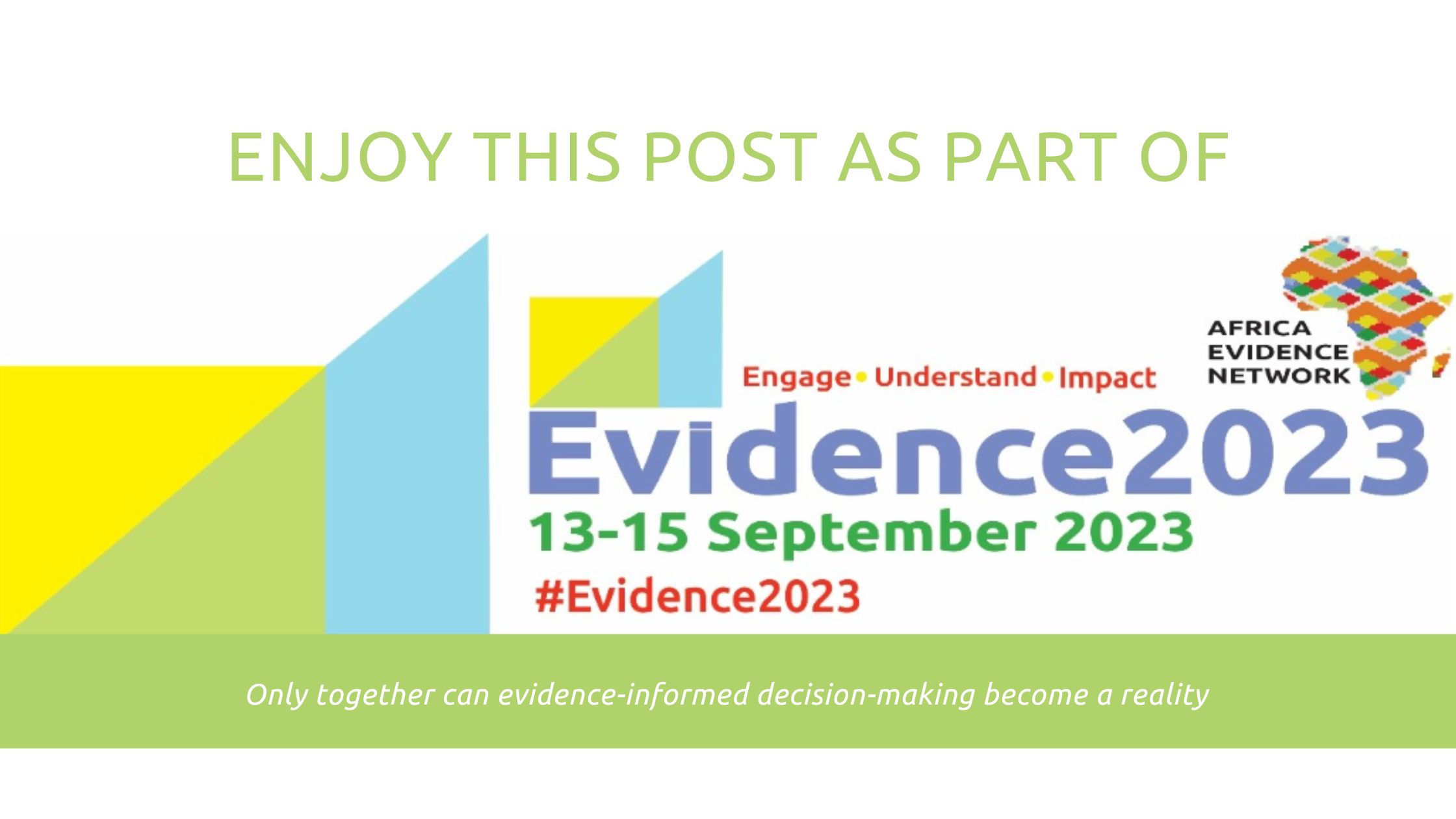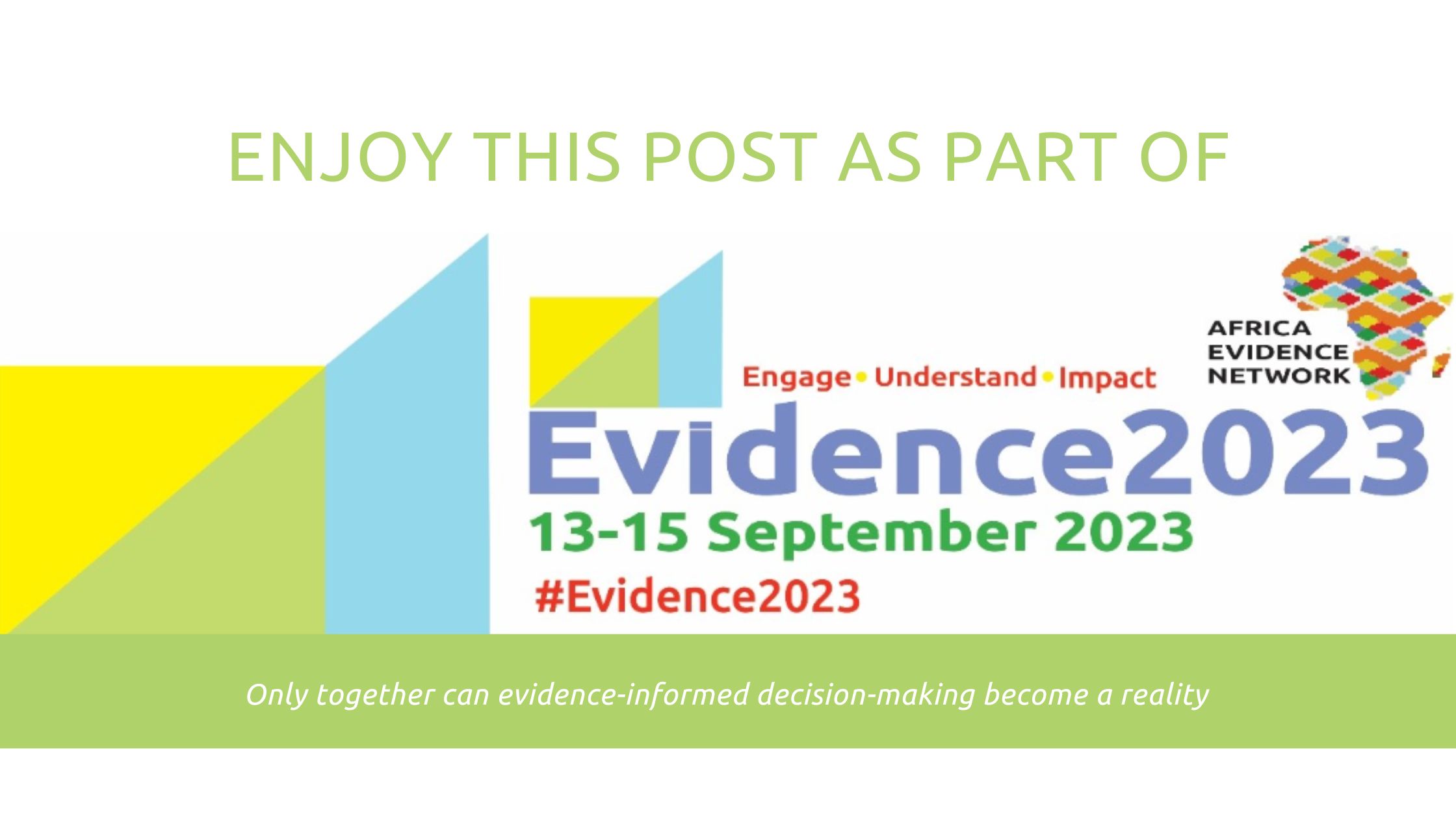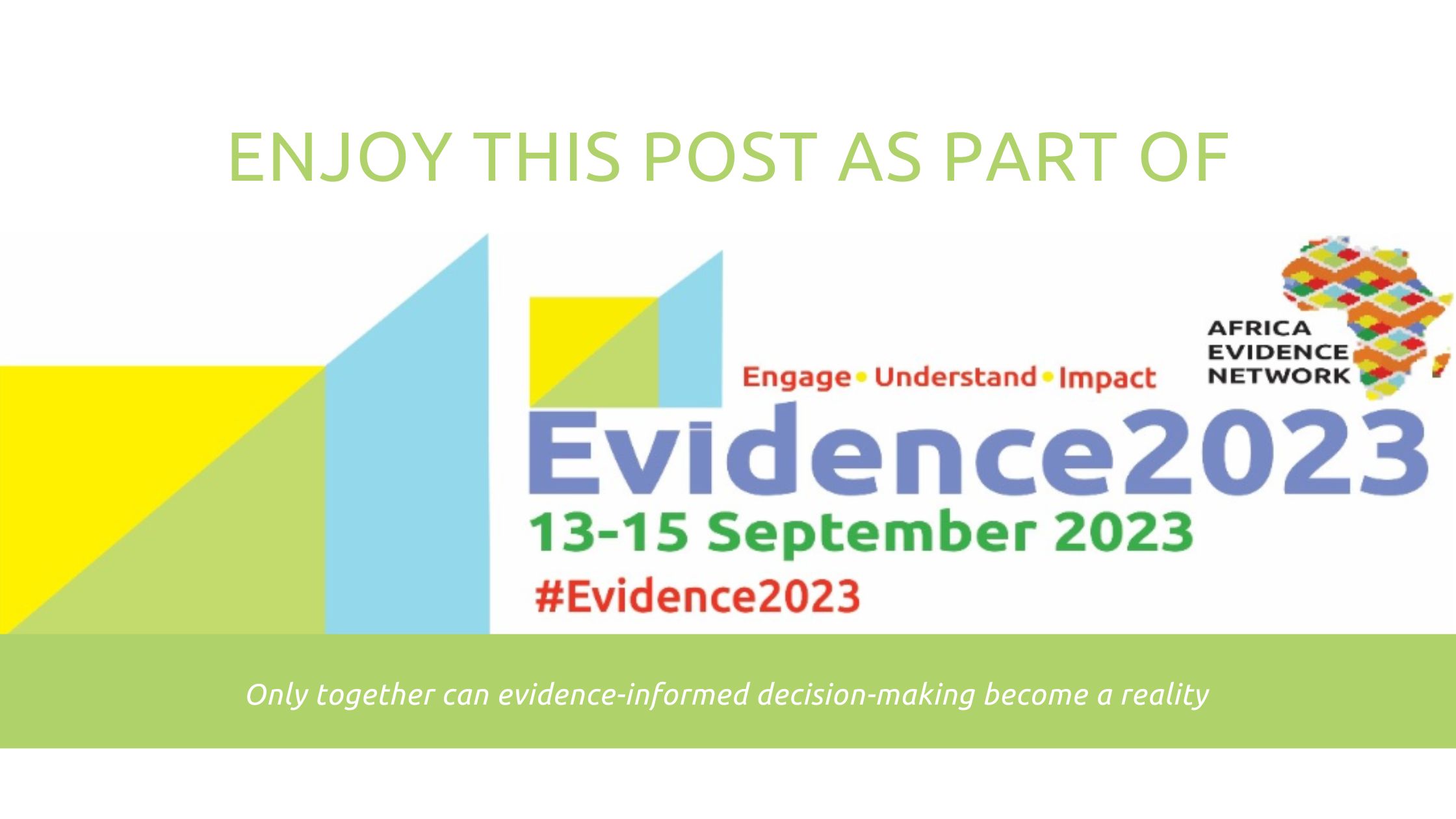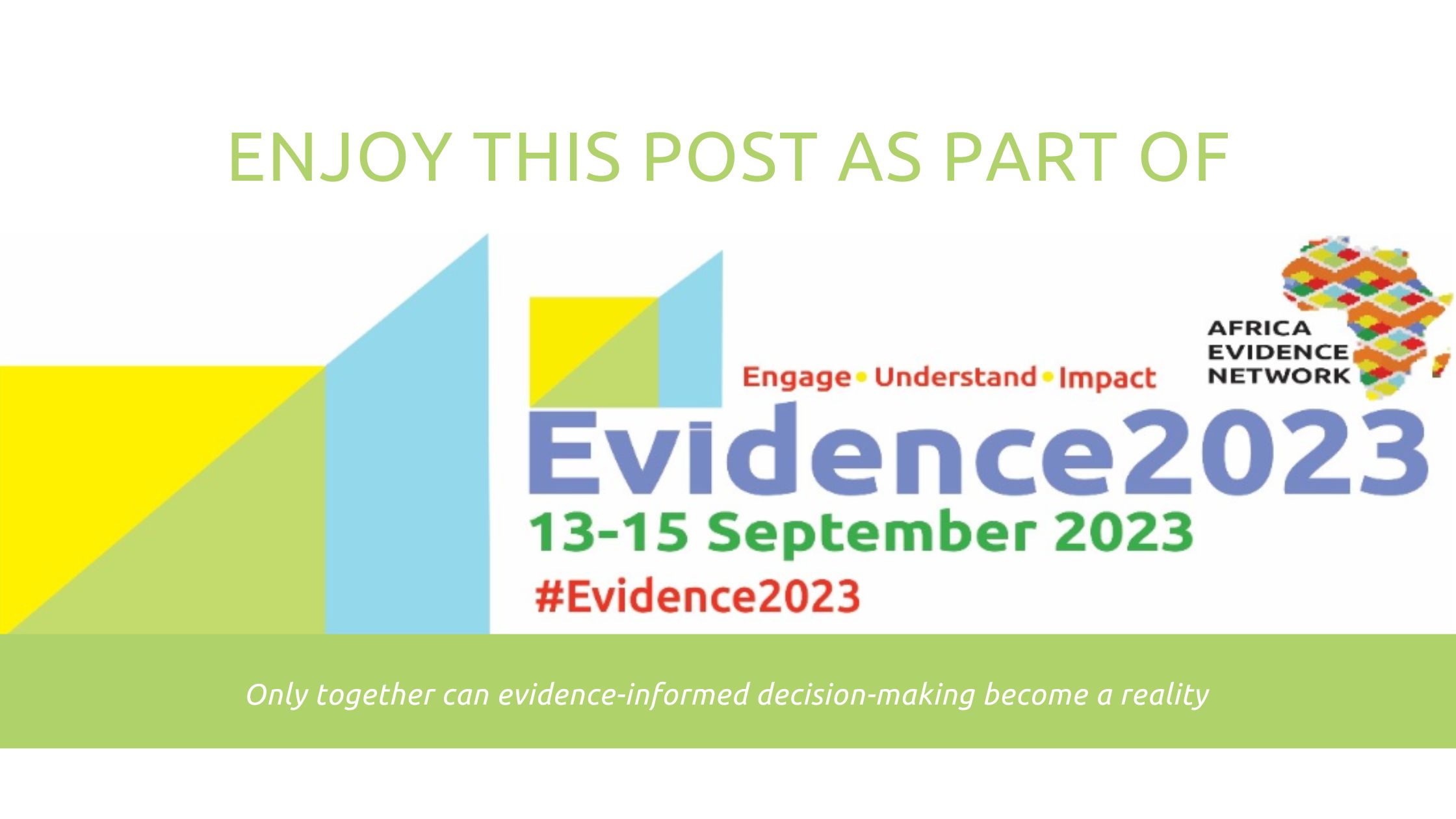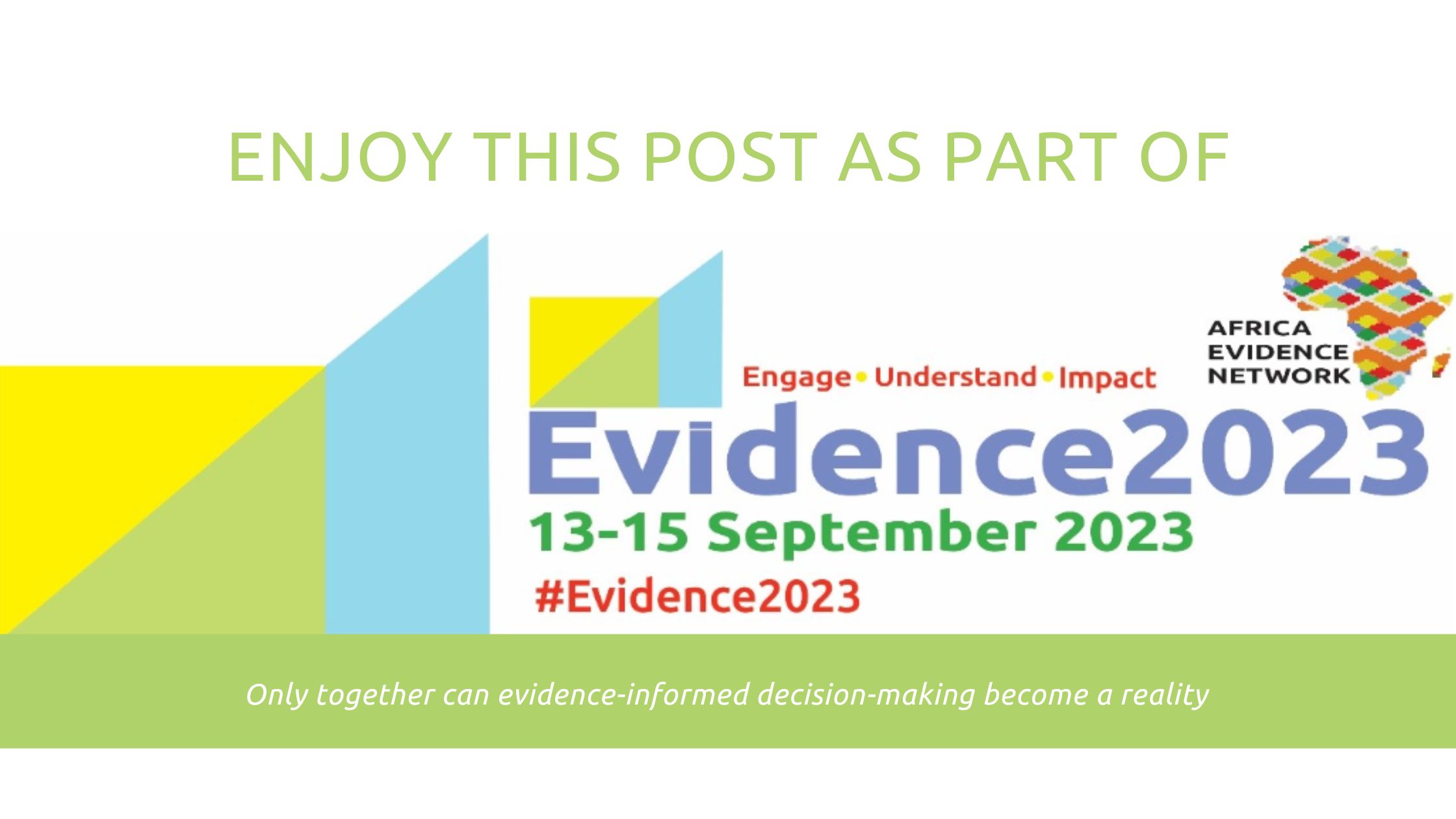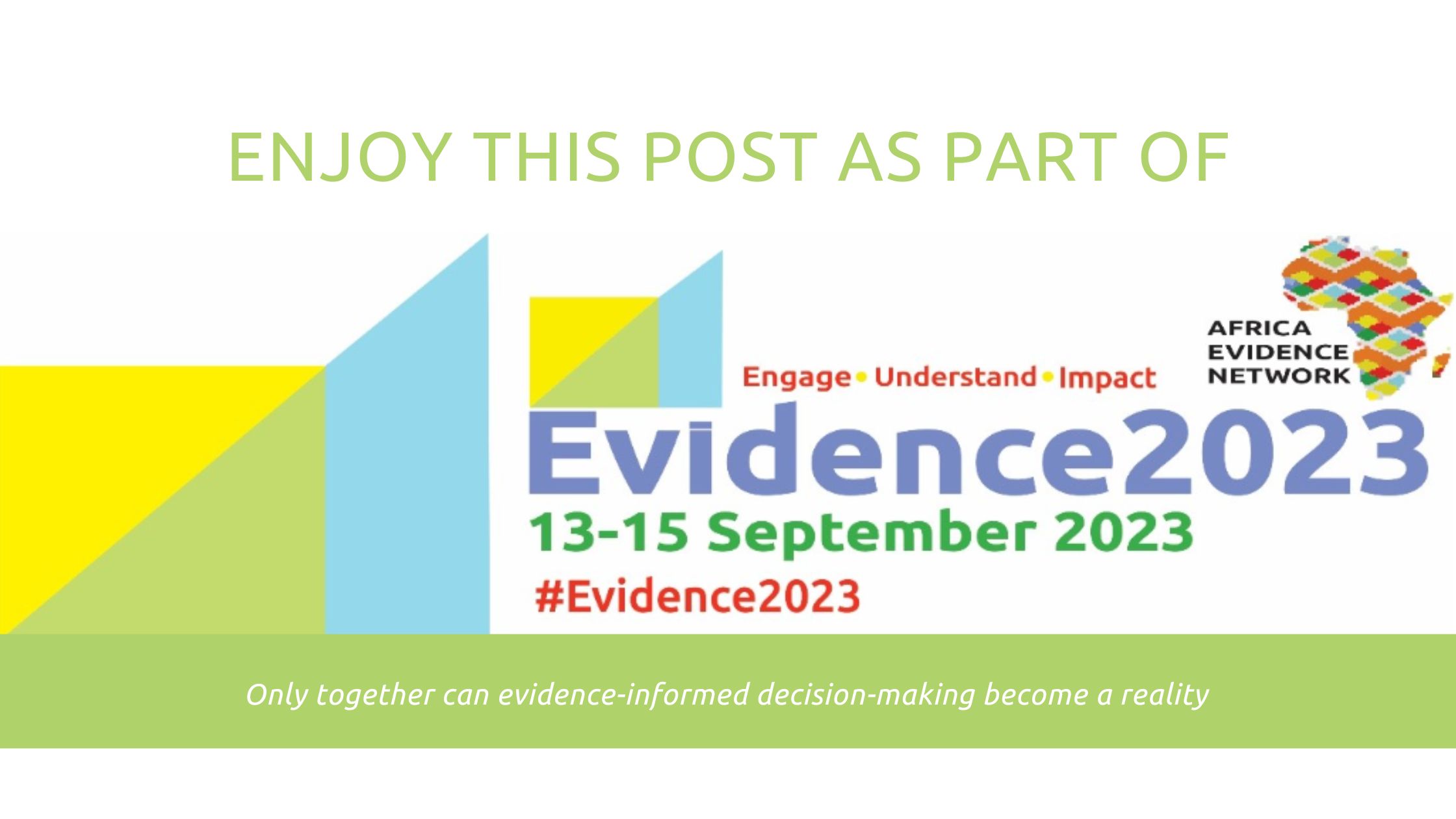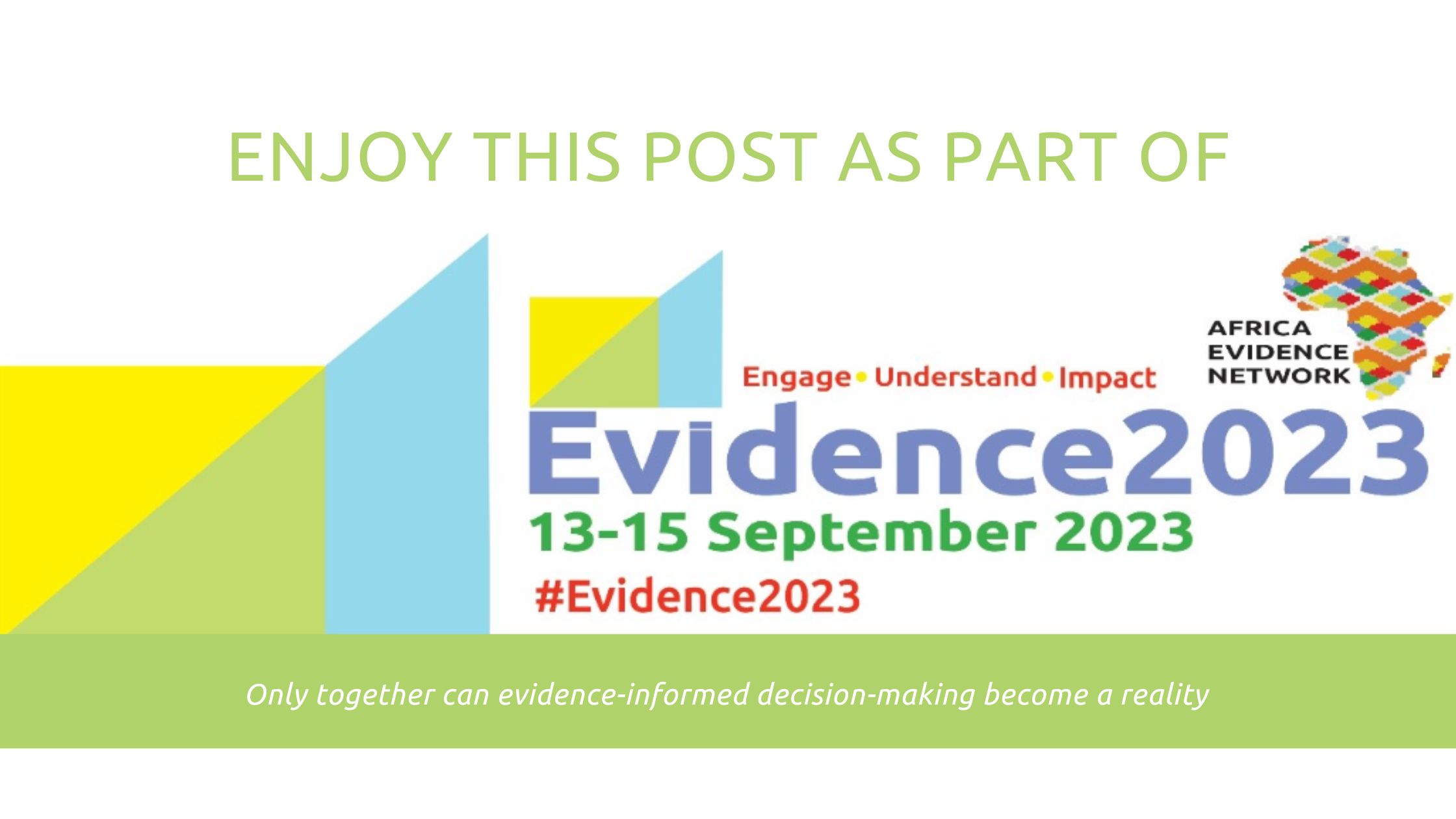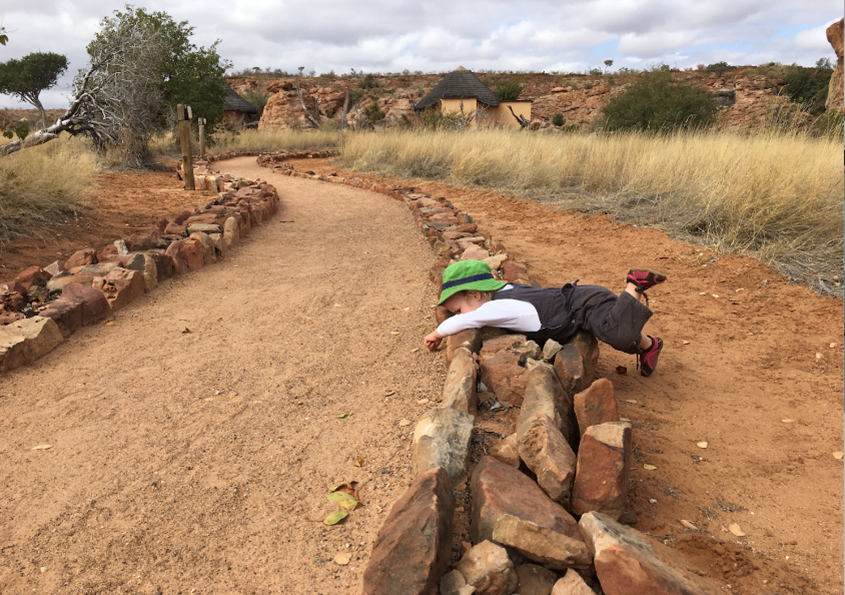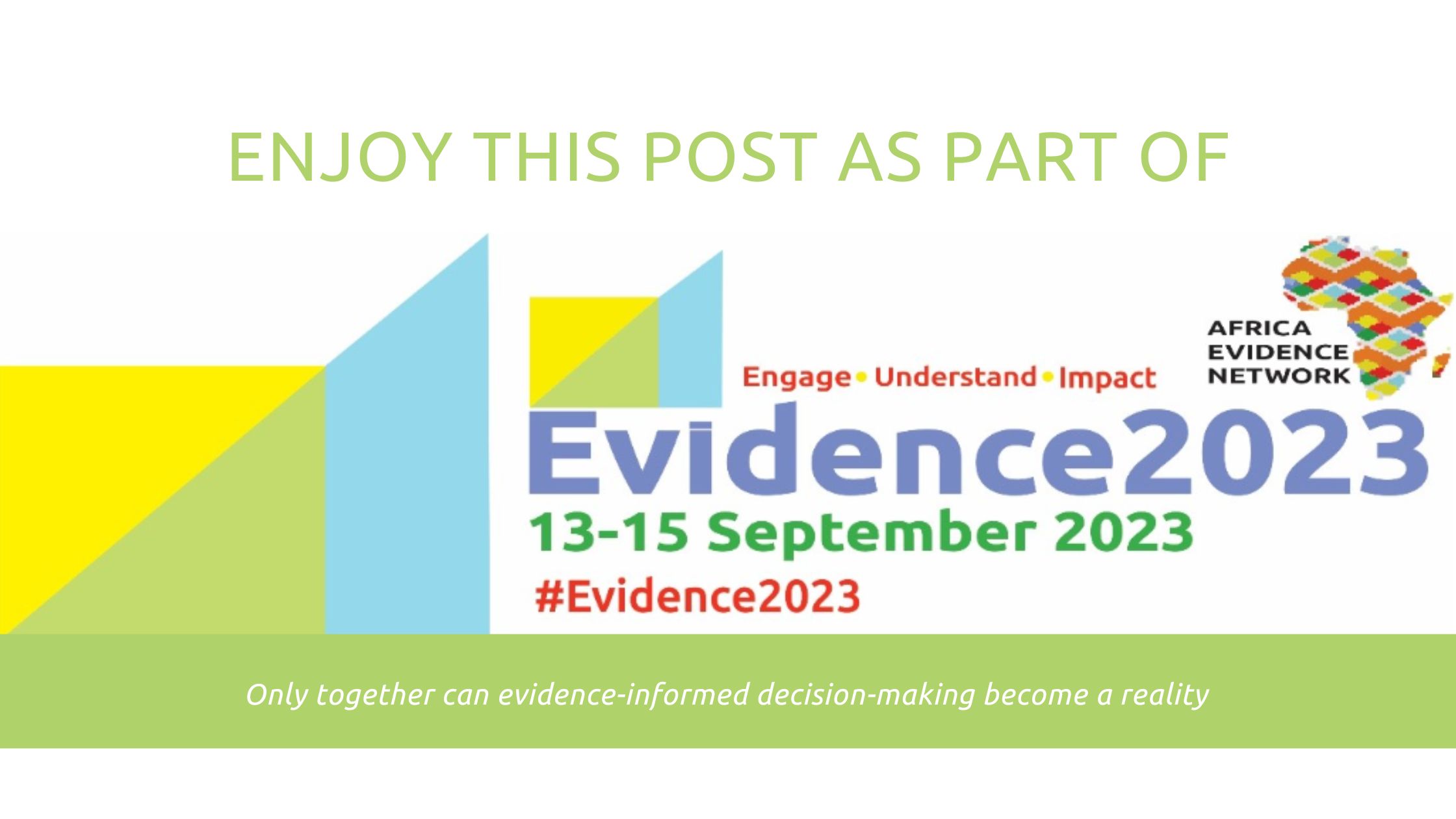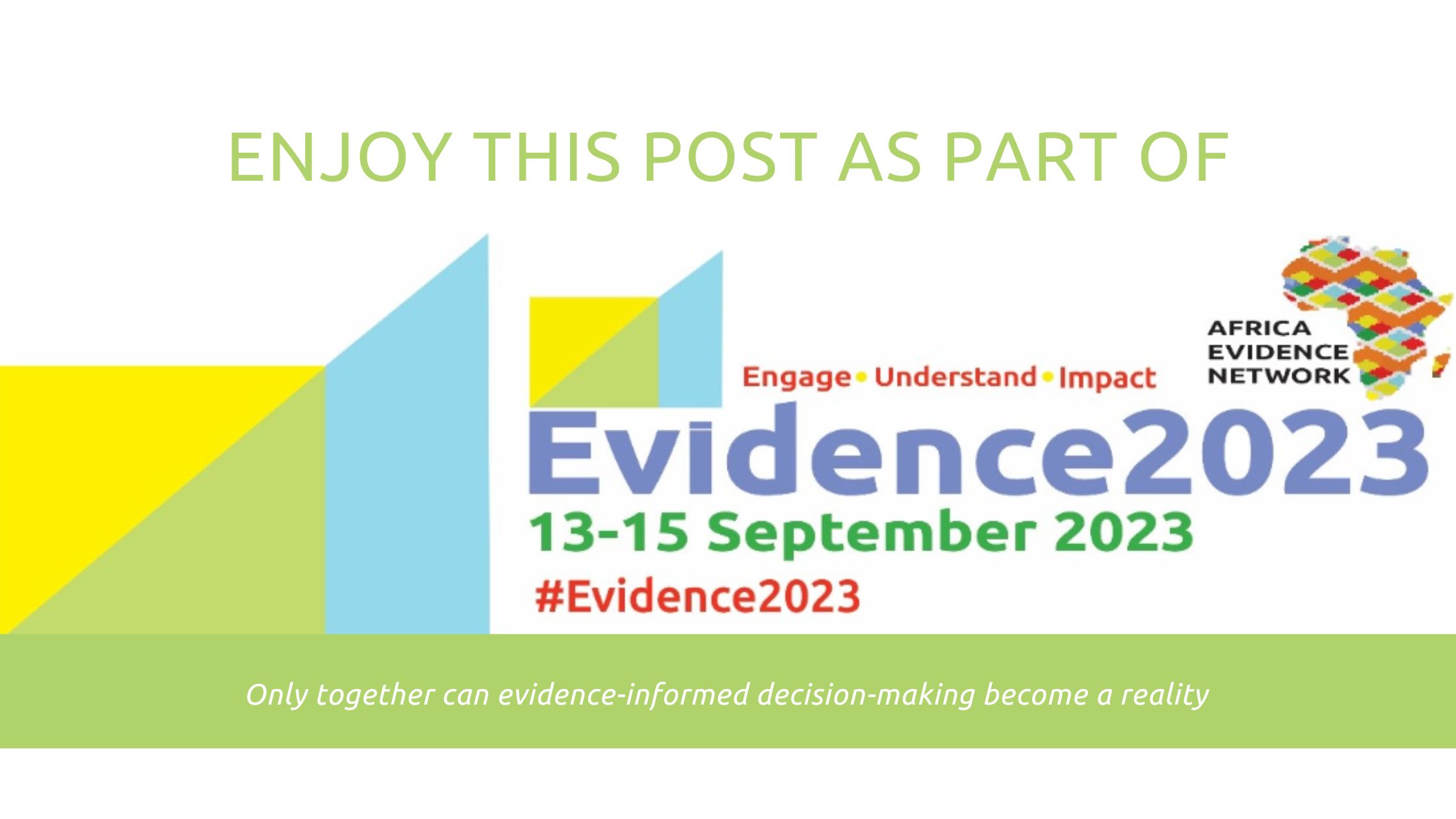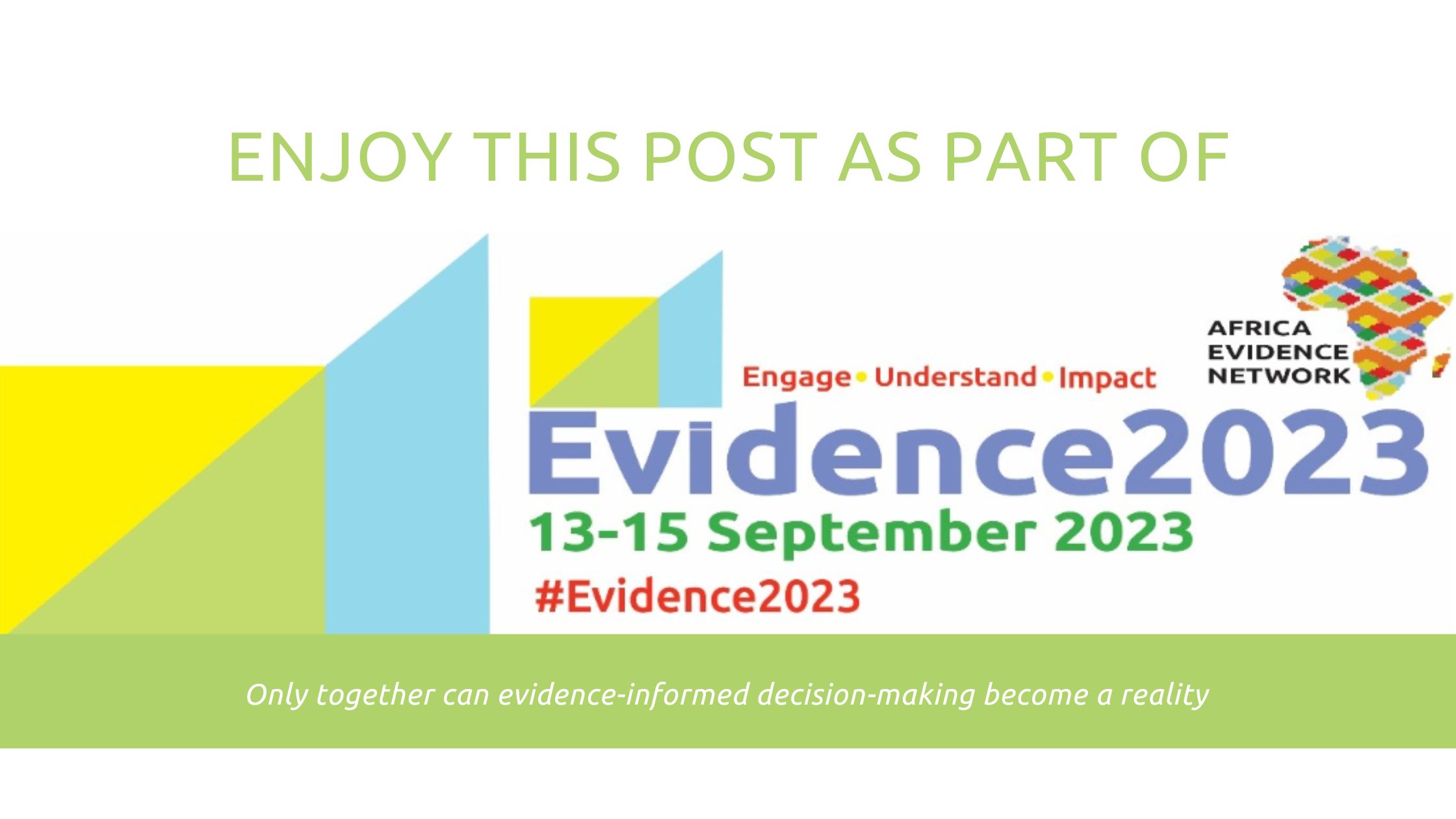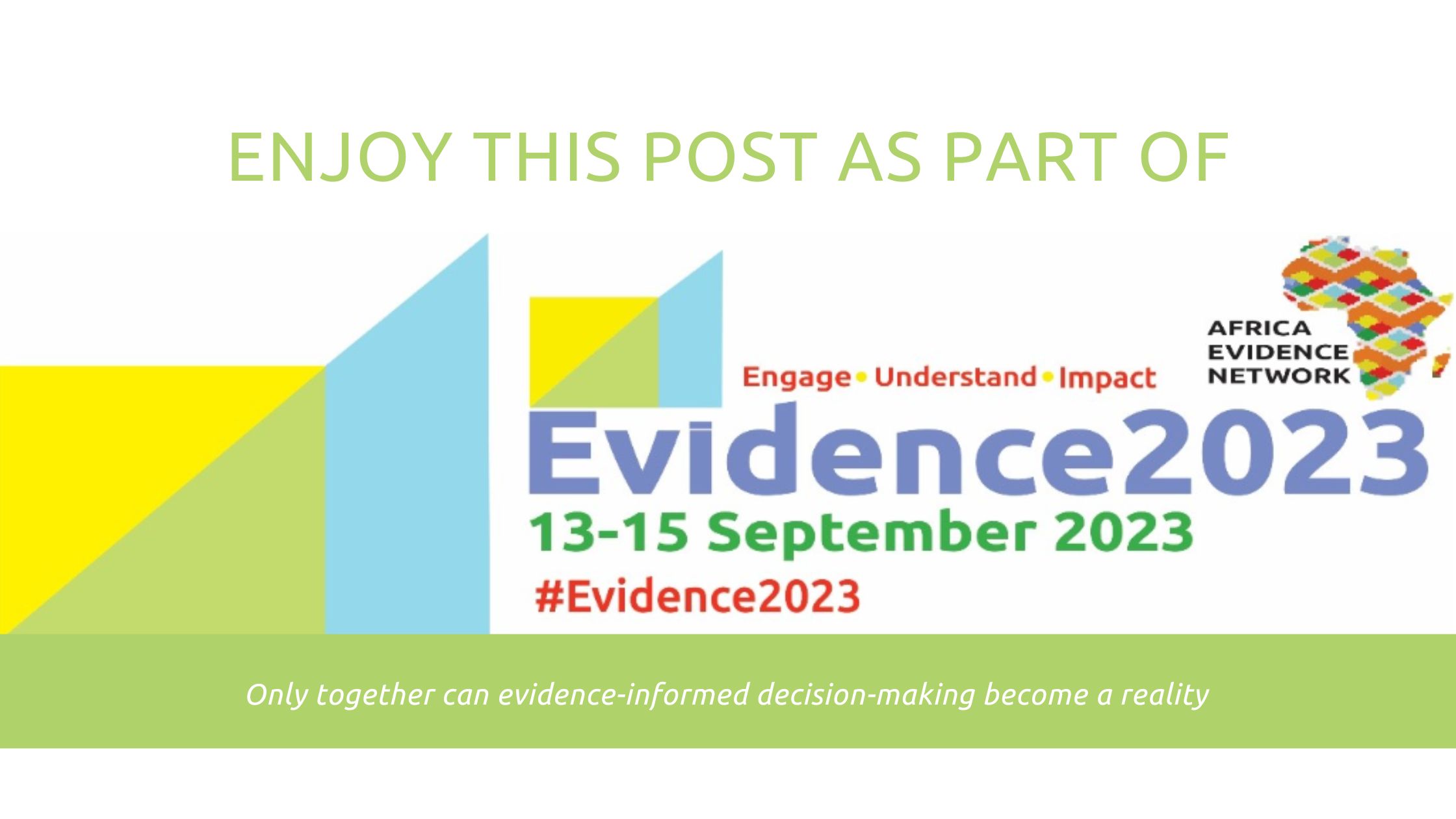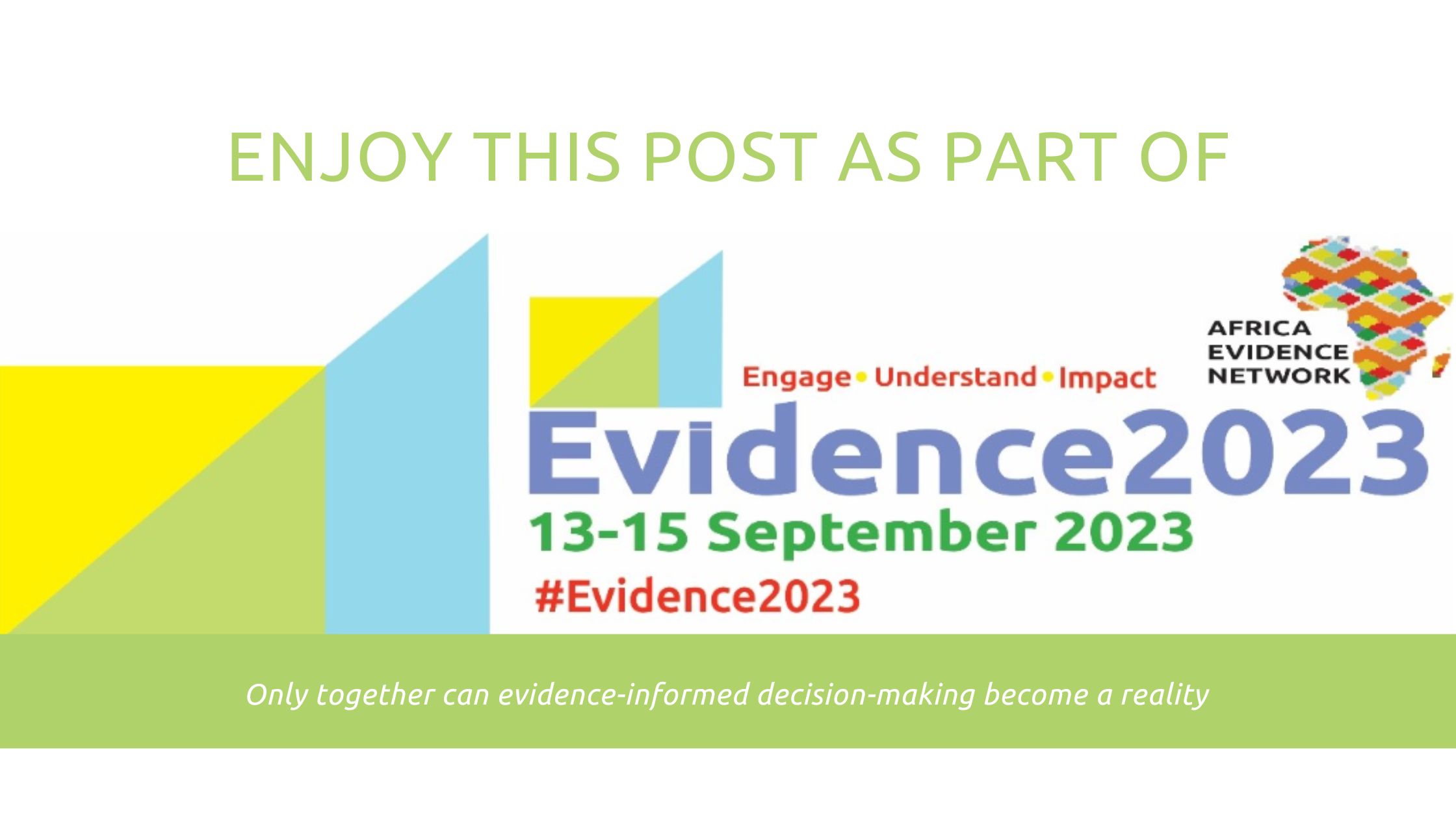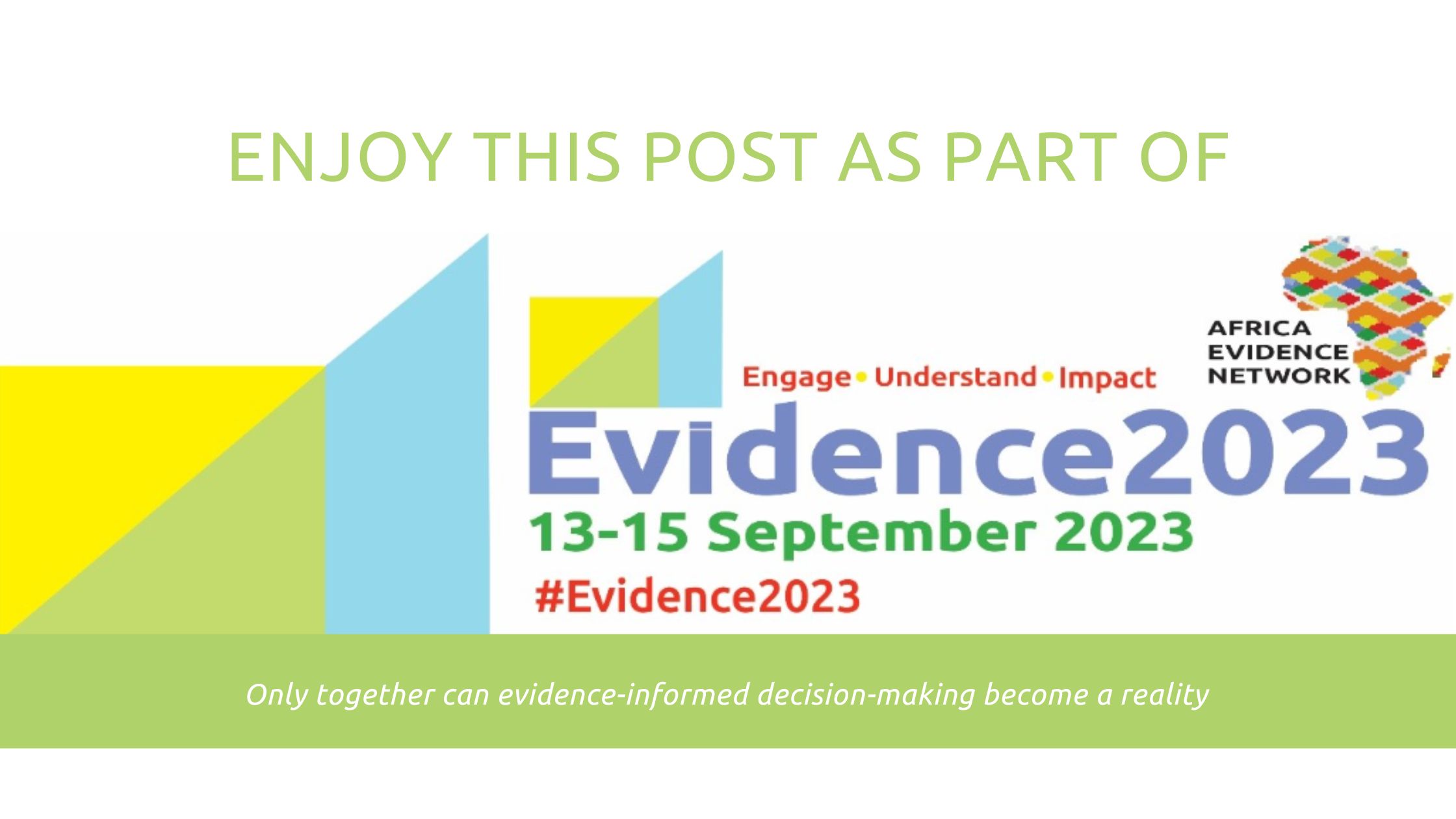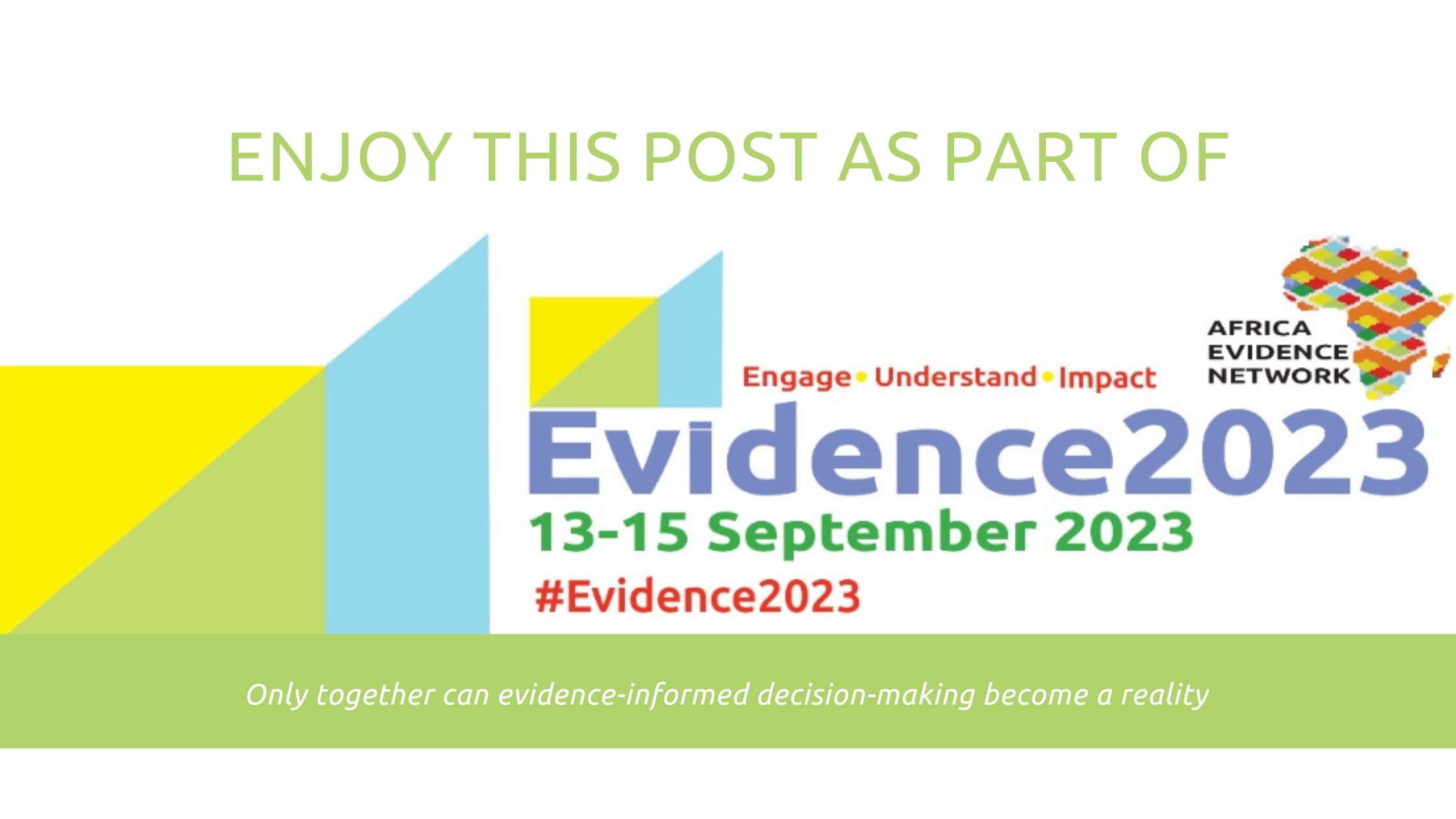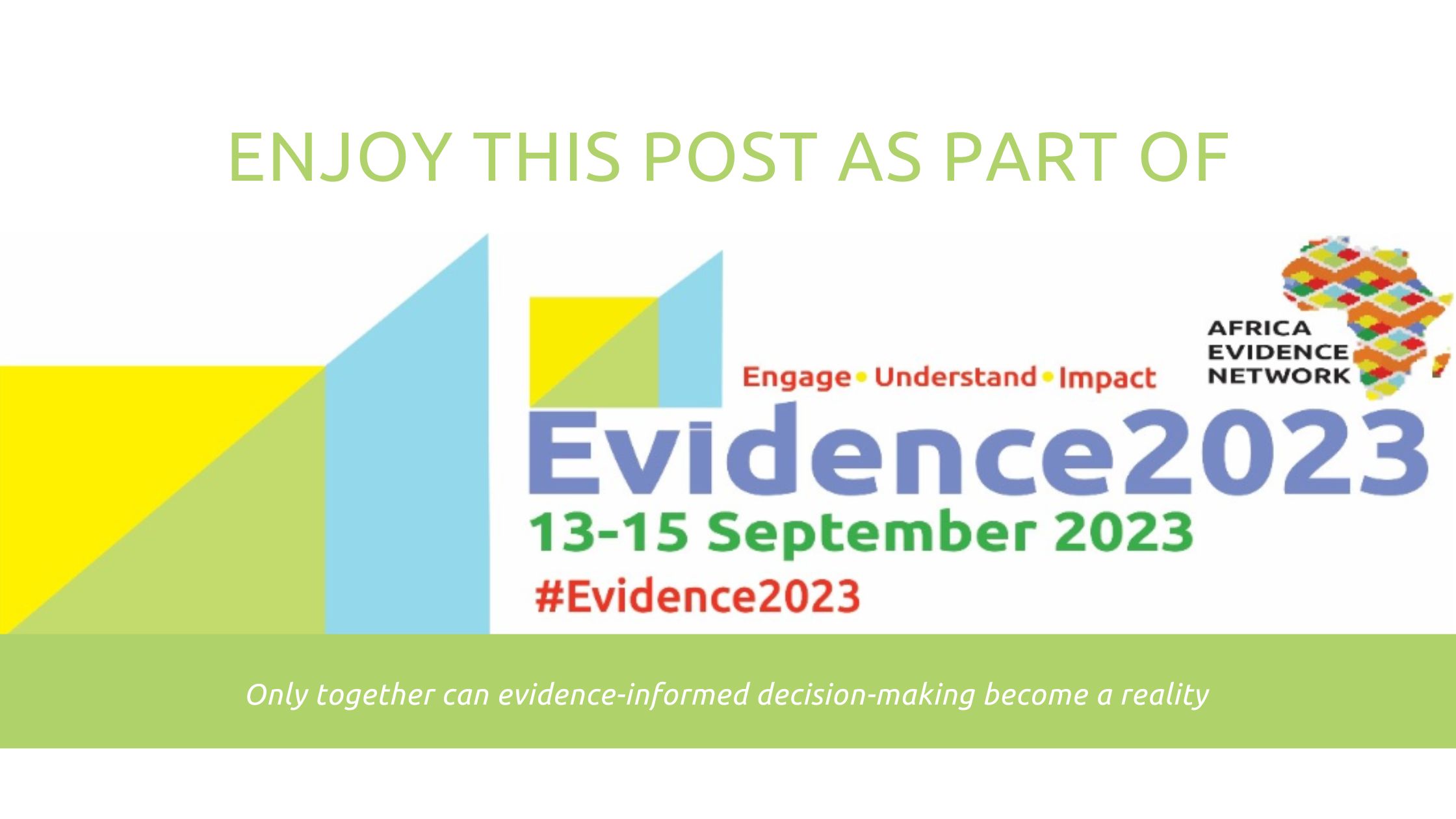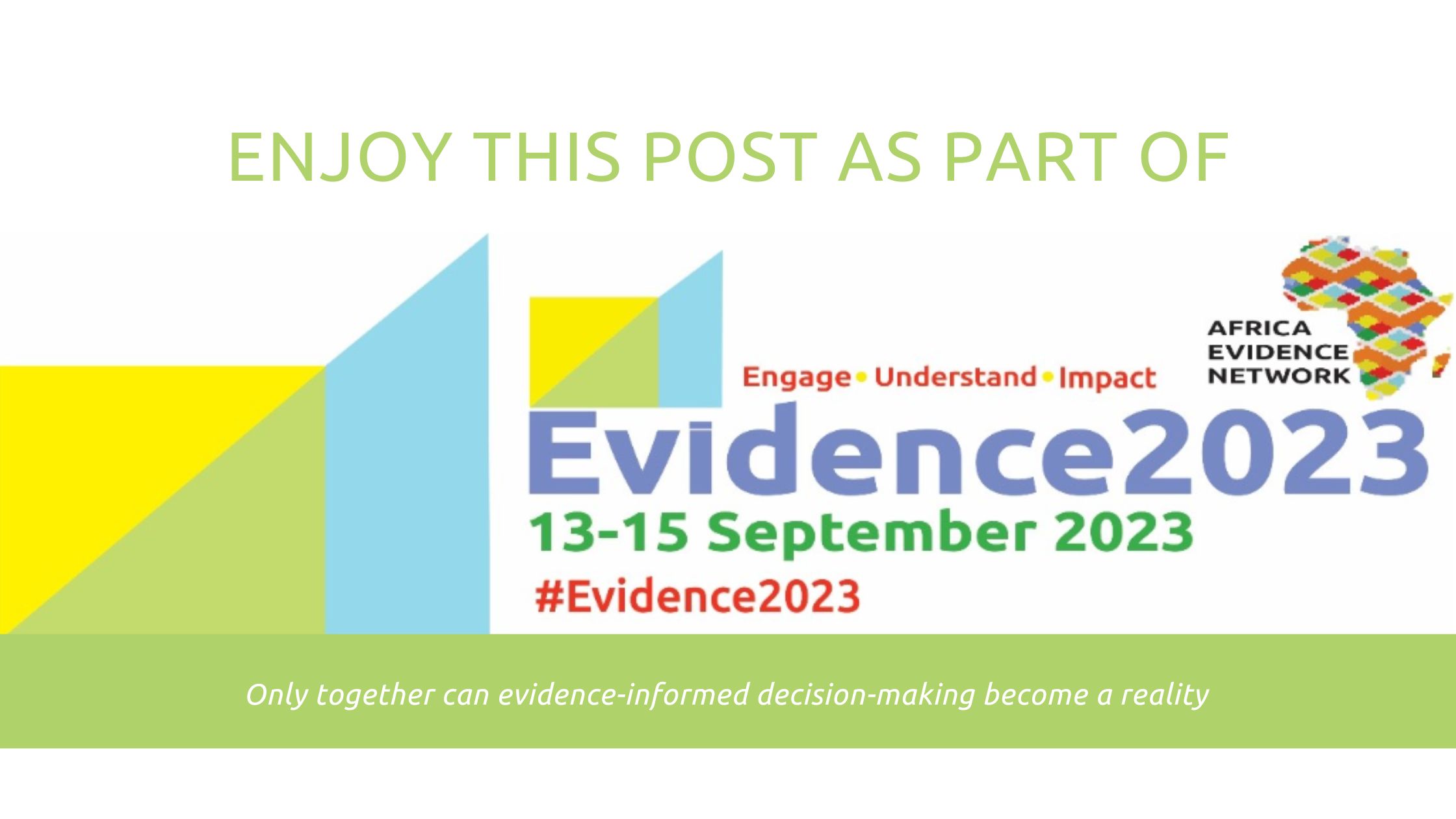
Why EIDM and KT matter
Over the past two decades, the push to bridge the gap between research generation and its use to inform policy and practice or evidence-informed decision-making (EIDM) has intensified. Supporters of EIDM argue that it can result in improved health and development outcomes, reduced inequities, efficient use of limited resources, and accountability - more so in resource-constrained contexts, including Africa. Yet, the translation of research into policy and practice remains sub-optimal, which has raised concerns about the value of investing in research. This concern has increased global attention and investments towards improving research uptake in policy and practice decision-making processes, including developing and strengthening capacities to do so, referred as knowledge translation (KT) in this blog.
Strengthening the evidence base on researchers' KT capacity and practice
Researchers are one of many critical groups in the KT process and mainly serve as a primary (but not the only) knowledge producer. However, the extent to which researchers participate in KT processes, their capacity to do so and the influencing factors are understudied. My PhD dissertation sought to take a deep dive into this issue to contribute to the knowledge base on researchers' KT capacity and practice and inform their capacity strengthening. The Developing Excellence in Leadership, Training, and Science in Africa (DELTAS Africa) programme served as my case study. DELTAS Africa is a long-term research capacity strengthening programme launched in 2015 to support collaborative consortia led by Africa-based scientists to amplify Africa-led development of world-class research and scientific leaders on the continent while strengthening African institutions.
DELTAS Africa was a suitable case study because of various reasons: one of its objectives is to enable translation of research into policy and practice; it consists of eleven consortia in 54 institutions and 24 countries spread across the three sub-Sahara African regions (Eastern, West and Southern Africa); focuses on a range of communicable and non-communicable diseases in Africa including Malaria, Mental Health, HIV/AIDS and zoonotic diseases; and provides a diverse pool of researchers in terms of career stage and discipline and research institutions. For my study, I selected three out of the 11 consortia and, within them, nine academic and research institutions (three per consortium) based in eight countries and 27 researchers and support staff (playing various roles in their consortia). Refer to my dissertation report for a more detailed sample description.
KT capacity and practice within research consortia and influencing factors
I explored the KT capacity and practice within the research consortia using a systems perspective, which analyses the influence of individual (motivation, knowledge, skills, attitudes and practices), meso (institutions and networks) and macro (research policy and funding environment) level factors and their interaction.
Micro-level KT capacity and practice and influencing factors
At the micro level, I found varied and self-reported inadequate KT capacity and practice. Researchers who reported doing more than just publishing their research in a scientific journal tended to be: involved in applied research (e.g., surveillance and implementation research); further along in their career (e.g., holding a leadership position); exposed to some KT capacity strengthening (e.g., training, mentorship or sensitisation); and working in a setting that required them to interact with policymakers and the public (e.g., public health or advocacy institution). However, irrespective of discipline and career stage, researchers exposed to KT through training, mentorship, sensitisation, and their practice experience tended to implement research communication activities beyond publishing in scientific journals. Therefore, integrating KT into researchers' academic training and development is one critical pathway to improve researchers' KT capacity and practice.
Meso level KT support and influencing factors
At the meso level, the three DELTAS Africa consortia (institutions in their own right) and the nine academic and research institutions that were part of and hosted the consortia had varied and insufficient KT support for their researchers in terms of: institutional policy statements and strategies emphasising KT; KT departments or staff; KT courses in academic degree training; funding for KT; and KT as an individual and institutional performance measure. I found that the KT capacity and practice of the consortium leader influenced the level of KT support at the consortium and wider institution levels. One consortium had a leader with a two-decade-long exposure to KT capacity strengthening and practice through leading, developing and implementing large-scale KT projects at national, regional and global levels. Their influence at the consortium level was visible in the range of activities defined, the budget allocated to their KT activities and the KT expertise and number of staff hired to coordinate the activities. On the other hand, the other two consortia lacked leadership with comparable KT capacity and practice experience, which resulted in them not defining or budgeting for KT activities and not hiring KT support staff with requisite skills and experience. This finding illustrated the interaction between the micro and meso level factors in influencing researchers' KT capacity and practice and, thus, reinforces the importance of integrating KT into researchers' academic training and development, in this case as a critical pathway to strengthen institutional KT support.
Macro level KT support and influencing factors
At the macro level, the eight countries where the three consortia and nine institutions were based also had varied and insufficient KT support in terms of the existence of national policy frameworks that mandate and facilitate KT and Research and Development (R&D) and government and donors funding for KT and R&D. I found that government and funder interests and priorities related to the range of KT activities, their budget ceiling, the guidance they provide to grantees and the grant review process influenced the range of activities that institutions and researchers defined and budgeted for. The DELTAS Africa funders had a stronger interest in community and public engagement activities than policy engagement and, thus, privileged investing in activities that targeted the media, communities and the public over activities focused on policymakers, practitioners and the private sector, e.g., pharmaceutical companies. While the DELTAS Africa grant enabled consortia that did not traditionally define and budget for such activities to do so, it also limited the activities that the consortium with a comprehensive KT vision could undertake. At the same time, lack of clear guidance on what was expected by grantees for the KT component combined with the grant review process overlooking it resulted in two out of the three consortia initially neglecting it in their proposal only to be asked to incorporate it later, mid-way into the implementation of their projects. Funders can better support research consortia by defining KT priorities and bu
dget ceilings that are more flexible to accommodate a wide range of KT activities, providing clear guidance on what they expect for this component and ensuring KT features more prominently in their grant review processes. To facilitate this, funders should invest in KT training for their grants staff or hire grants staff with a good understanding of KT.
Conclusion
In conclusion, I found varied and insufficient KT capacity and practice within the research consortia at all three levels (micro, meso and macro). In addition, I unearthed critical interactions across the levels that can inform the design of KT capacity strengthening investments targeting researchers and research consortia and institutions. This blog captures a few of the key findings. You can get more insights from my full dissertation at:
https://livrepository.liverpool.ac.uk/3166318/1/201231536_Nov2022.pdf.
Funding: This work was supported through the DELTAS Africa Initiative. The DELTAS Africa Initiative is an independent funding scheme of the African Academy of Sciences (AAS)’s Alliance for Accelerating Excellence in Science in Africa (AESA) and supported by the New Partnership for Africa’s Development Planning and Coordinating Agency (NEPAD Agency) with funding from the Wellcome Trust [insert your grant #] and the UK government. The views expressed in this publication are those of the author(s) and not necessarily those of AAS, NEPAD Agency, Wellcome Trust or the UK government.
Acknowledgements: The author(s) is solely responsible for the content of this article, including all errors or omissions; acknowledgements do not imply endorsement of the content. The author is grateful to Siziwe Ngcwabe, the content committee and the Africa Evidence Network team for their guidance in the preparation and finalisation of this article as well as their editorial support.
Disclaimer: The views expressed in published blog posts, as well as any errors or omissions, are the sole responsibility of the author/s and do not represent the views of the Africa Evidence Network, its secretariat, advisory or reference groups, or its funders; nor does it imply endorsement by the afore-mentioned parties.
